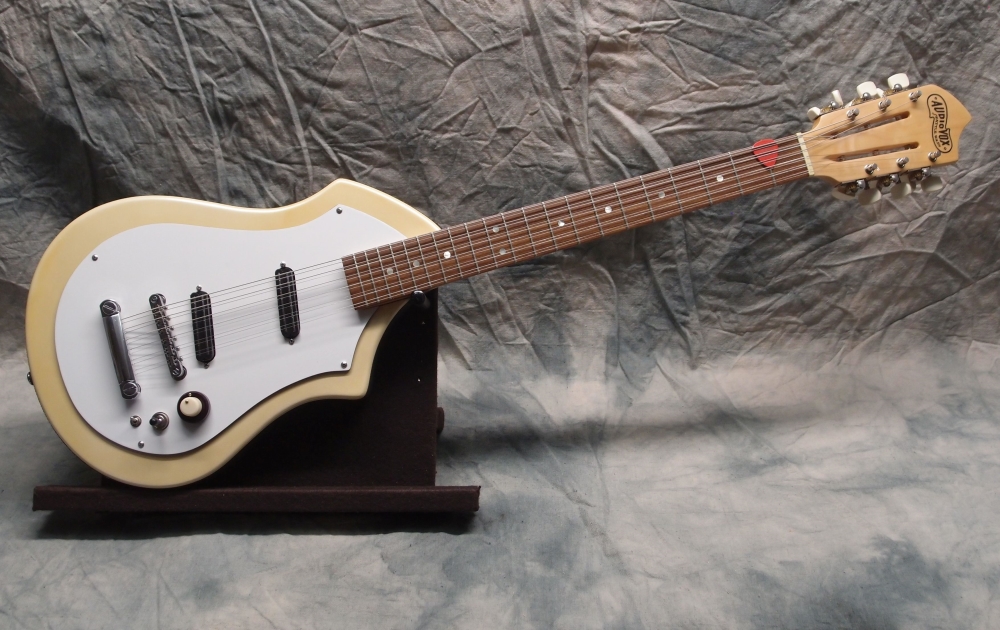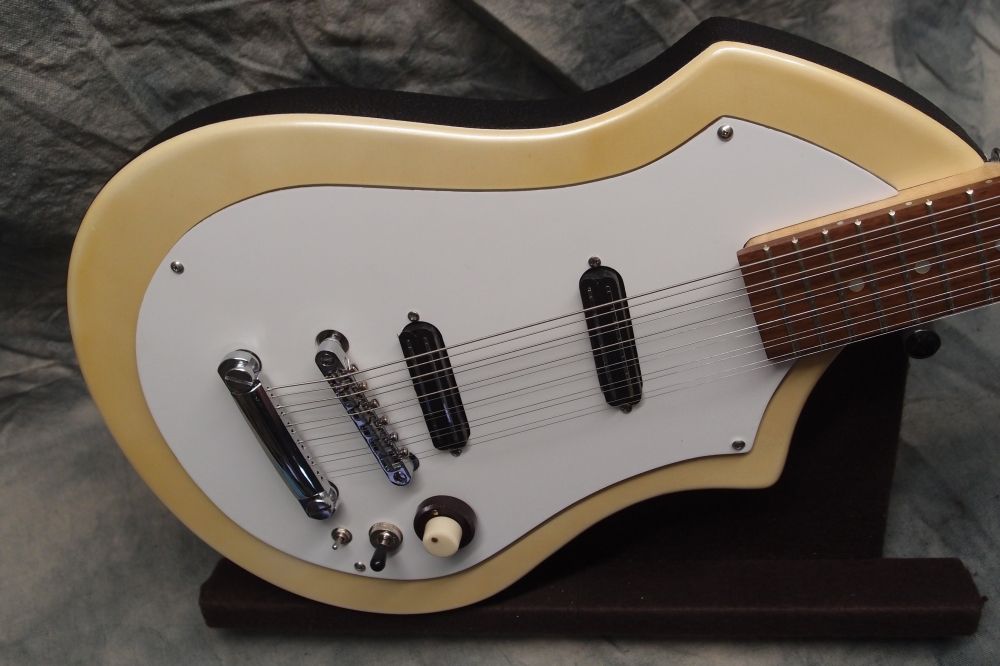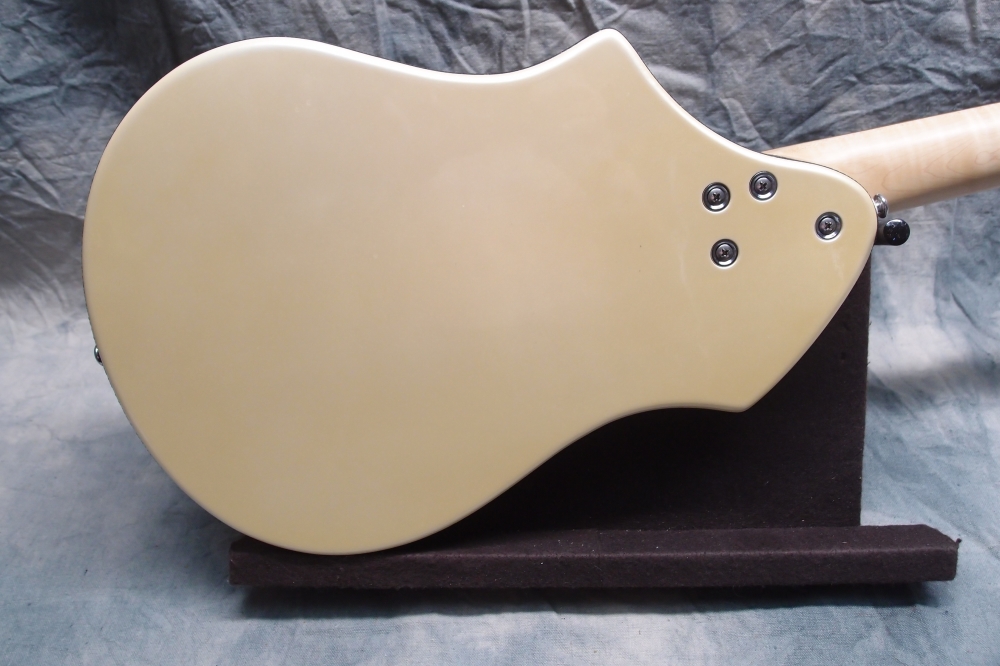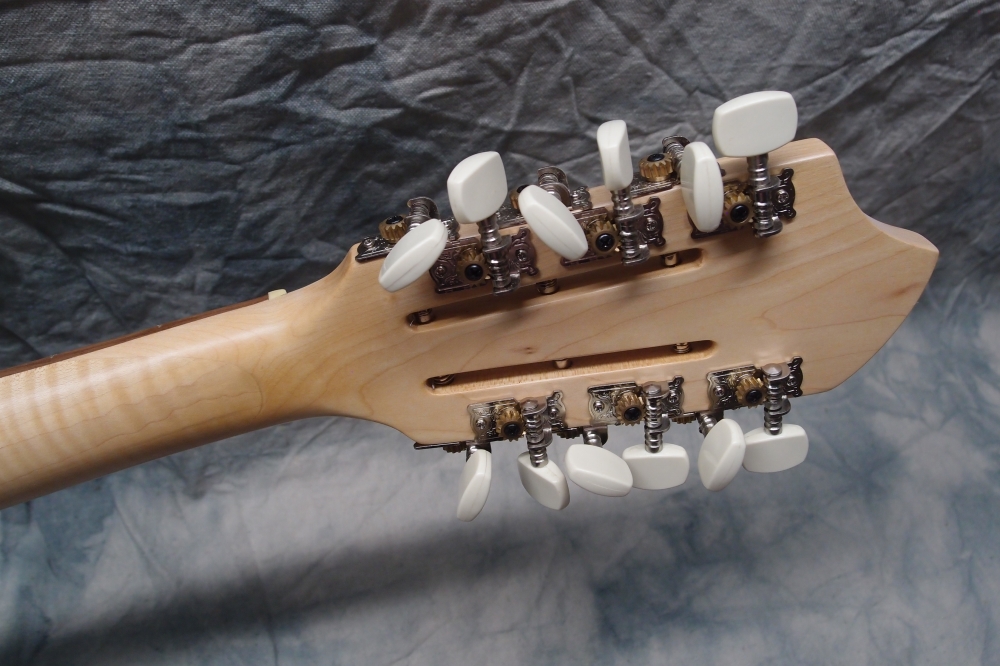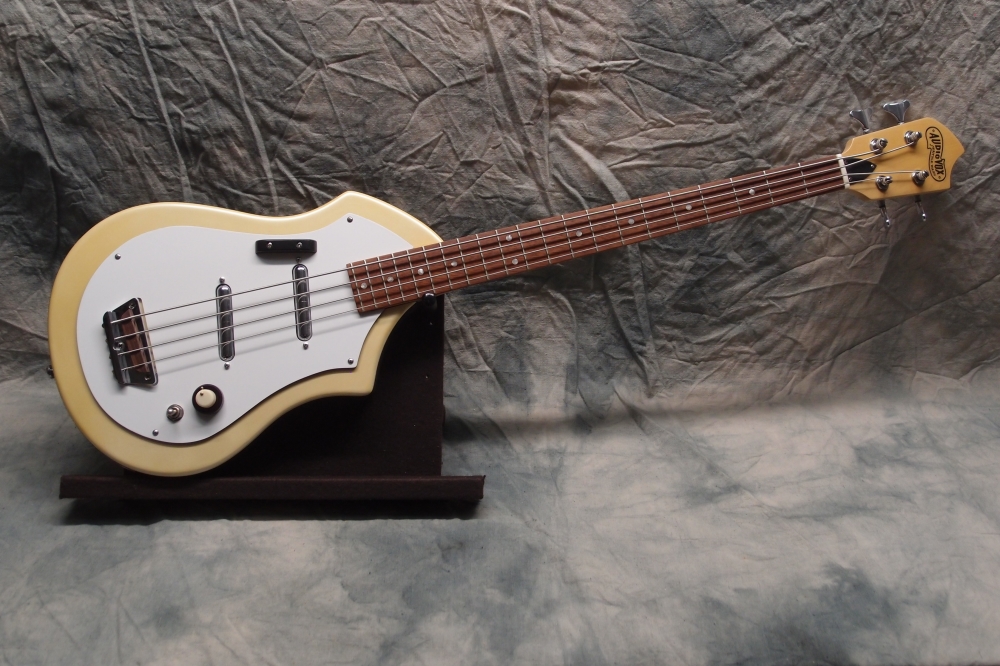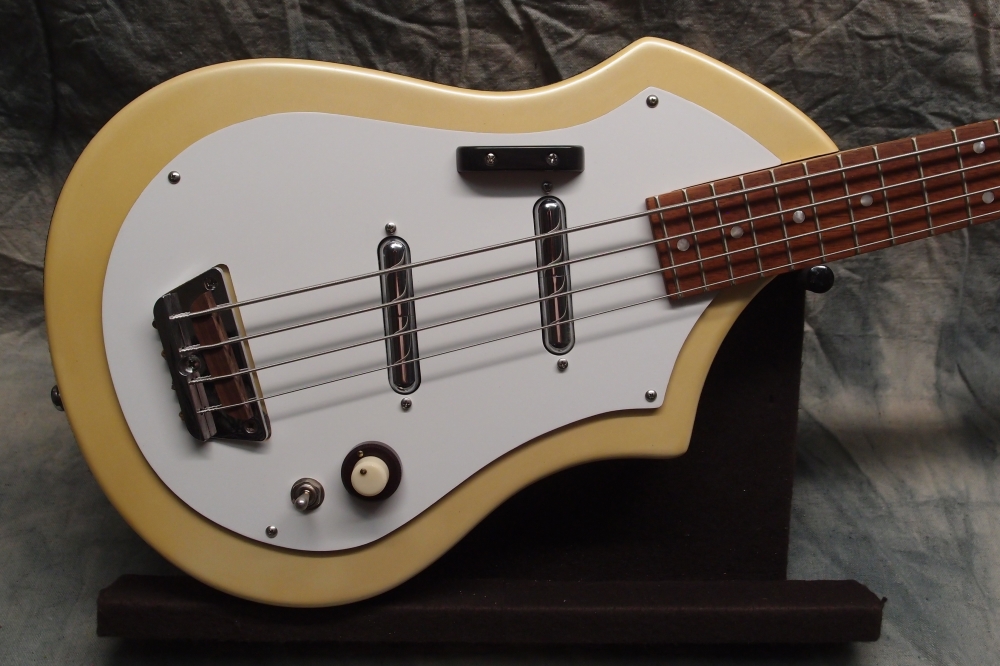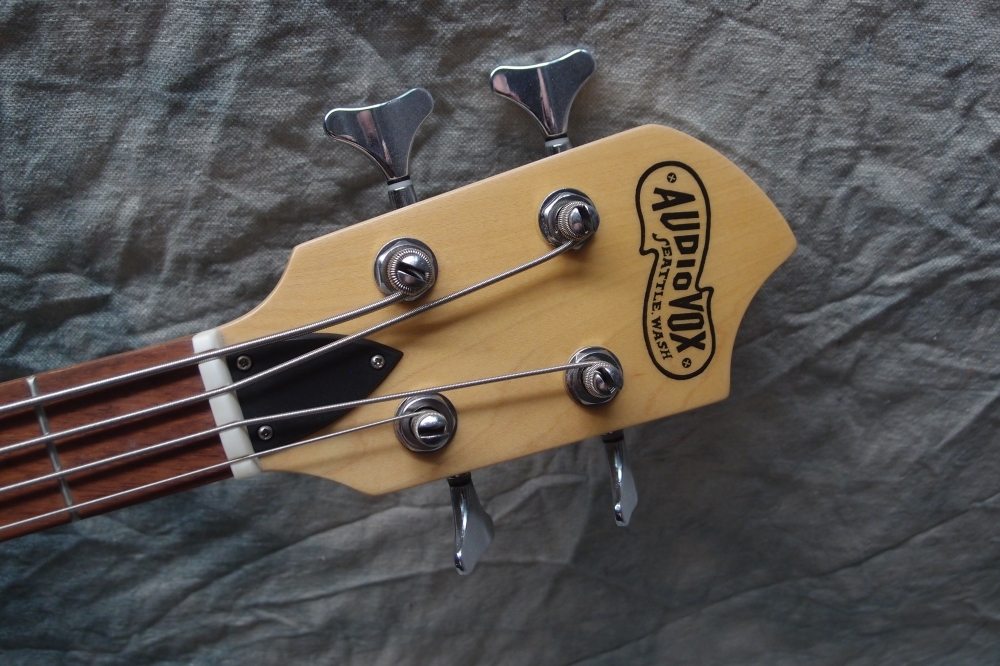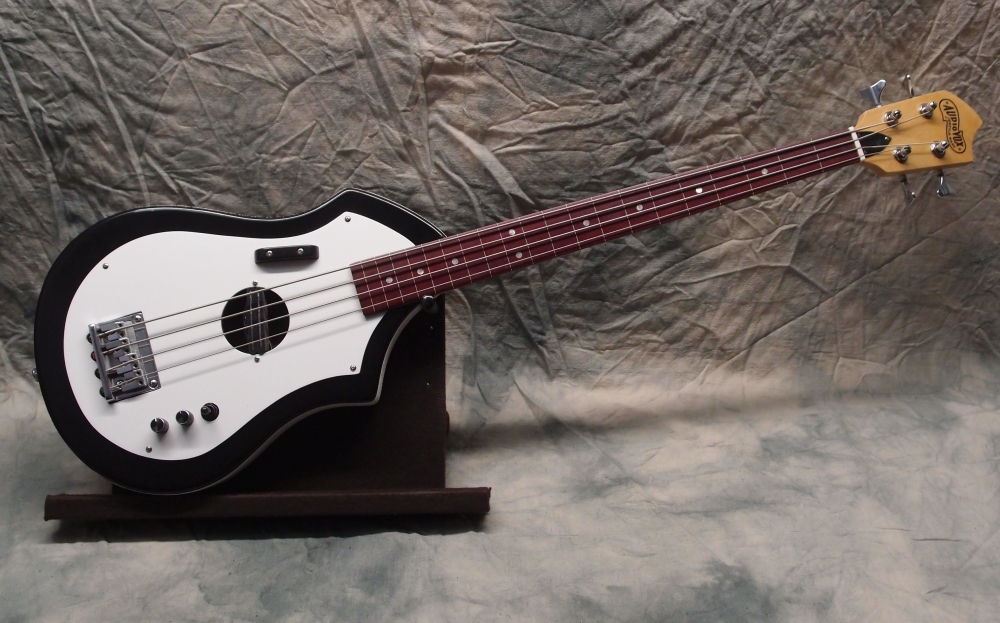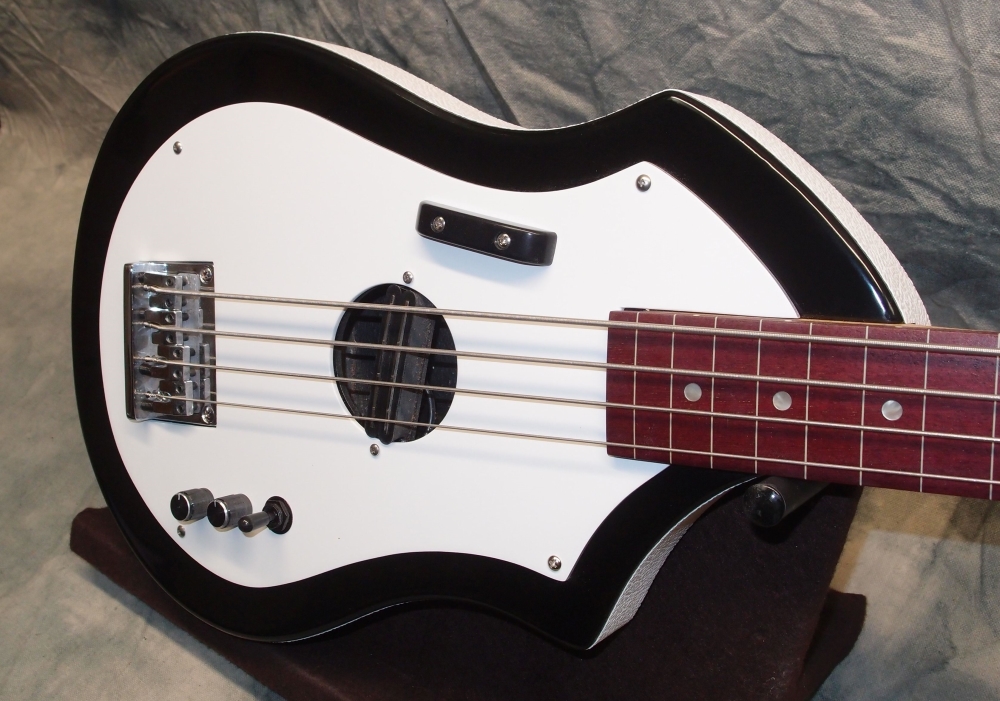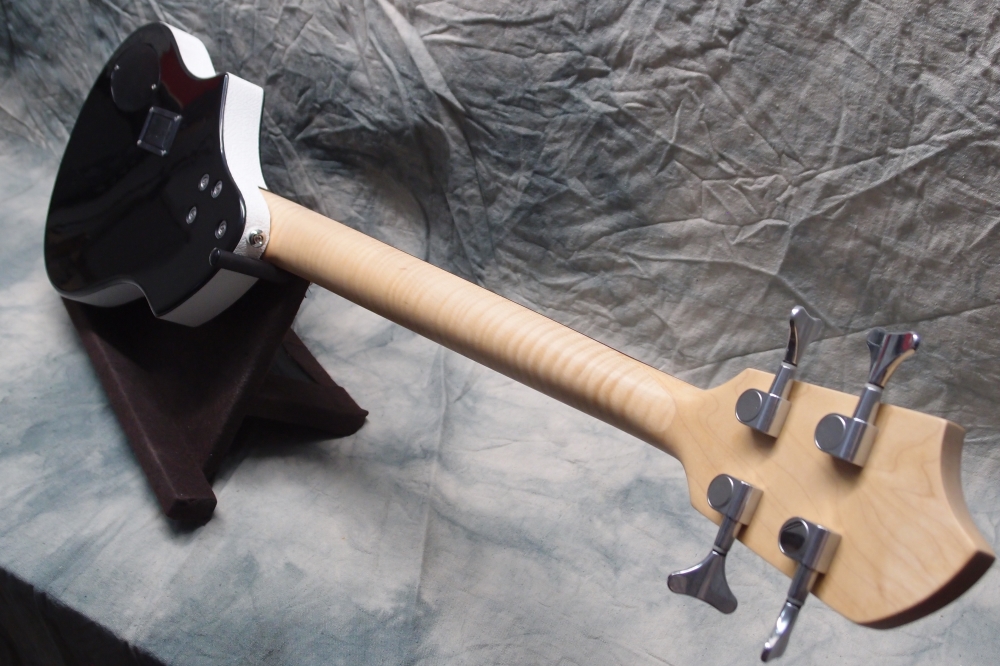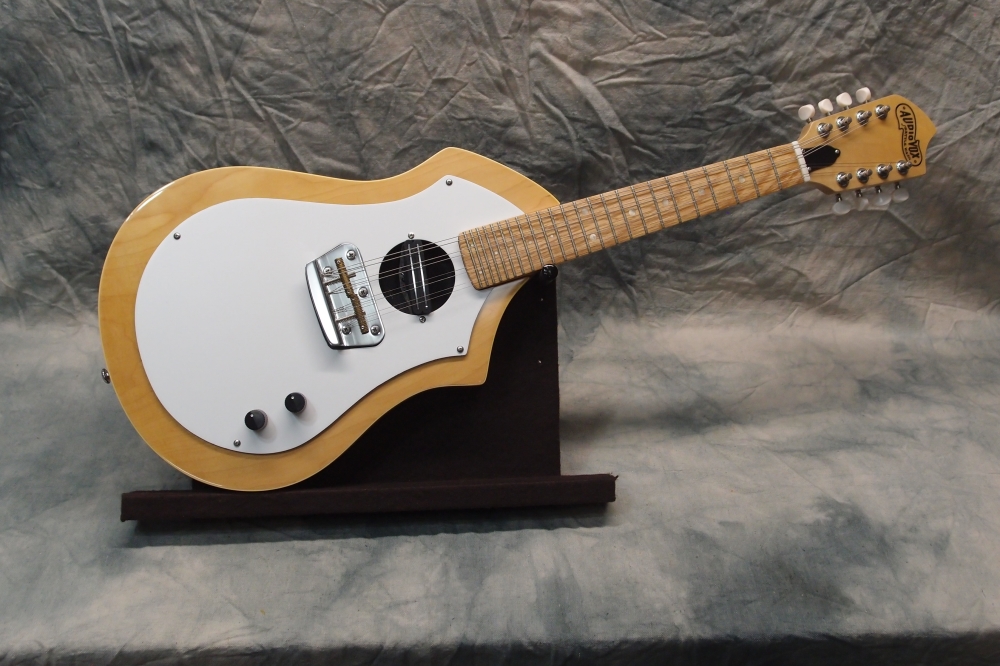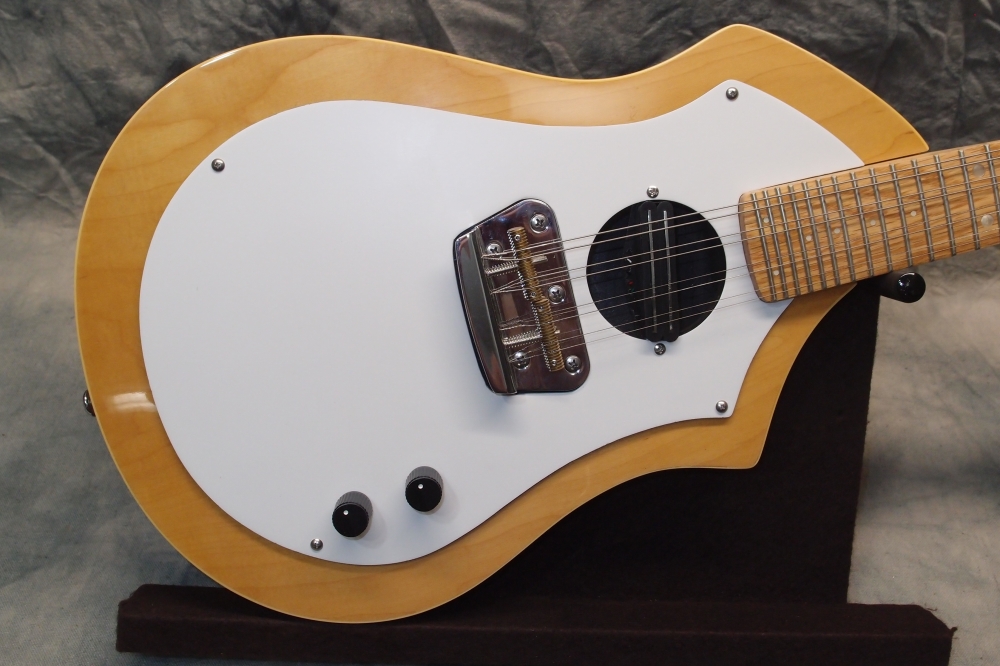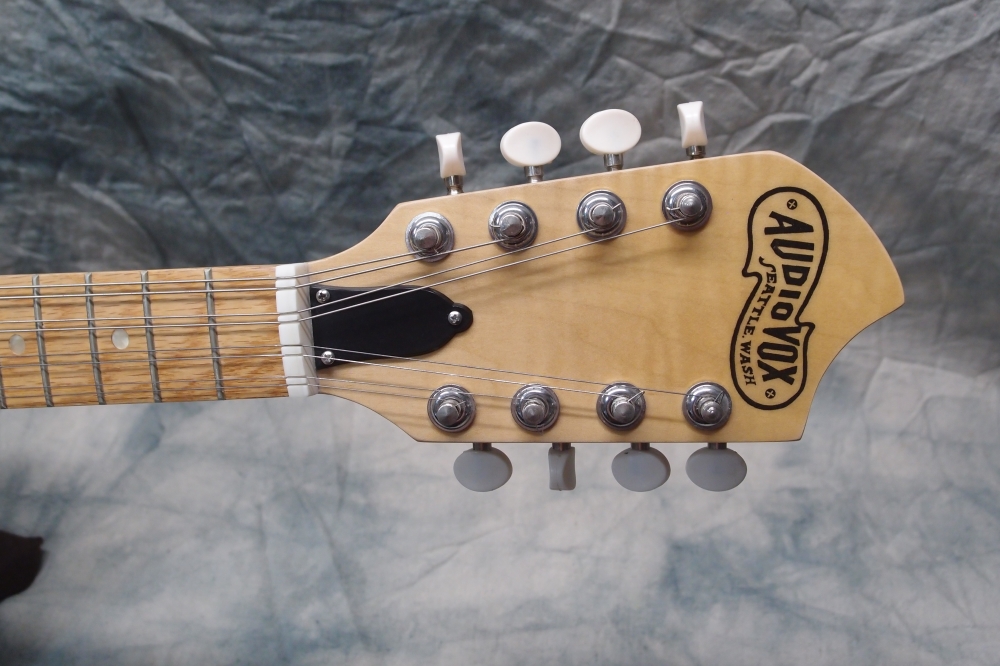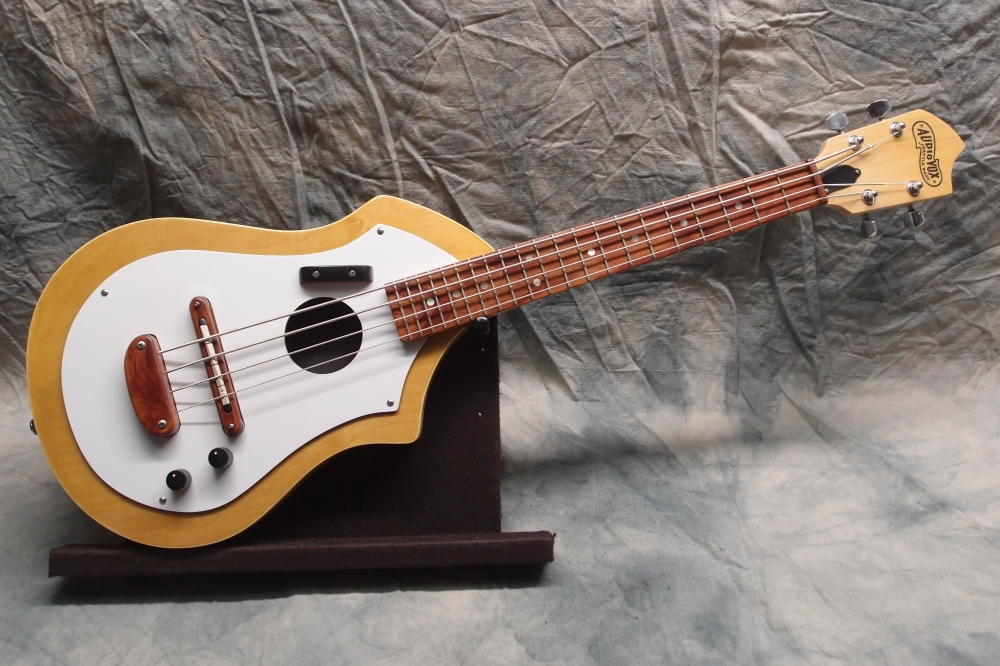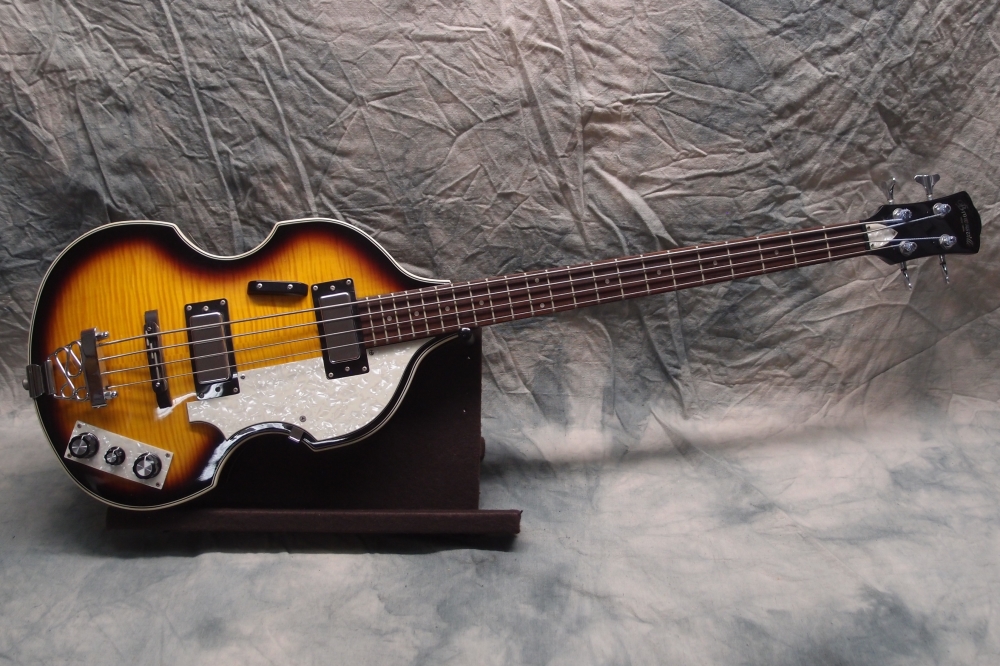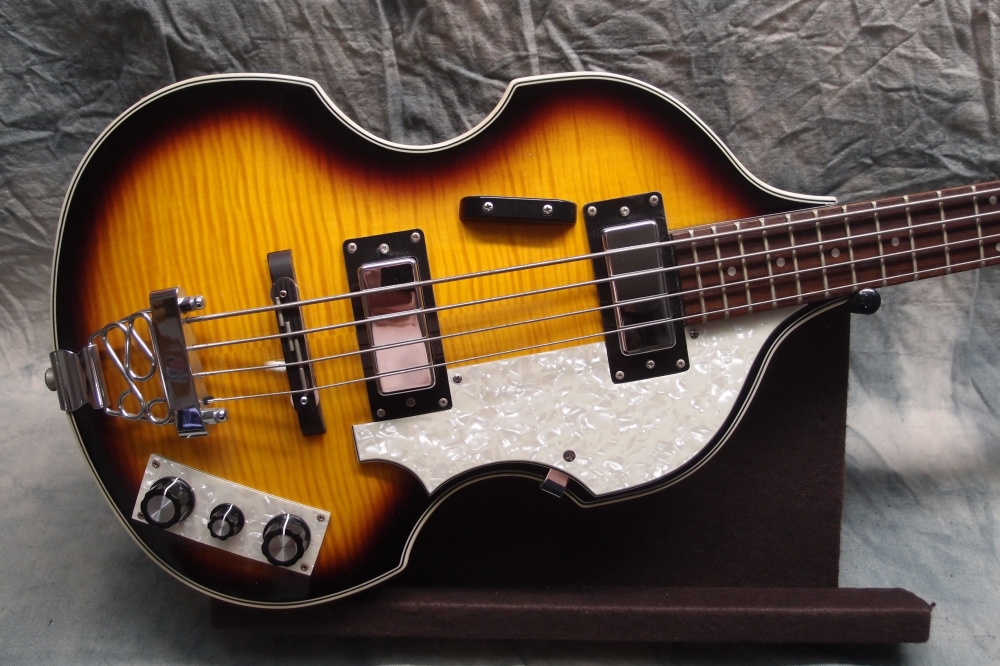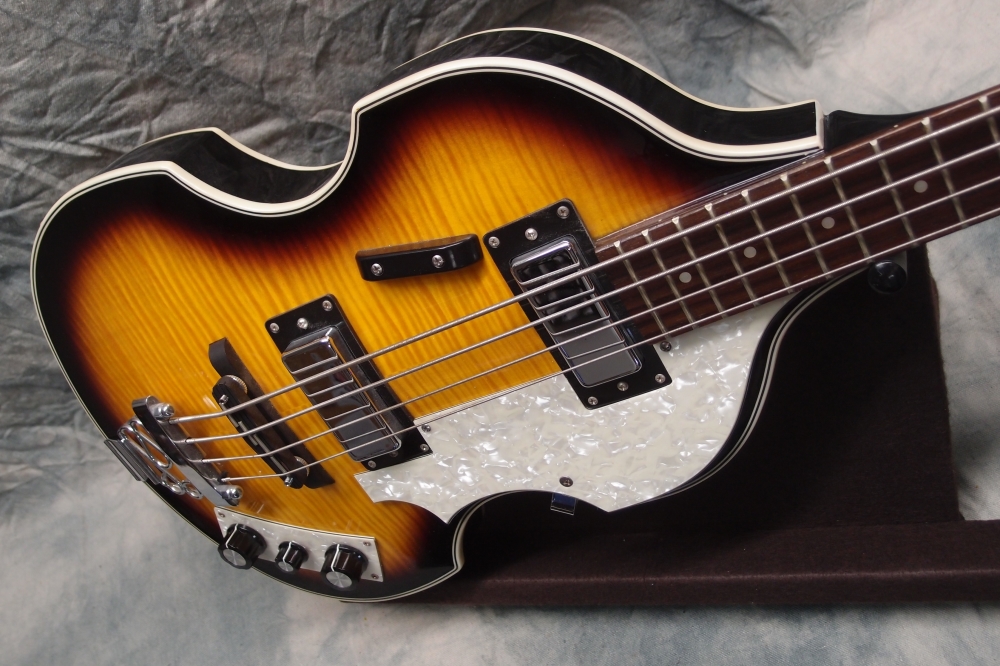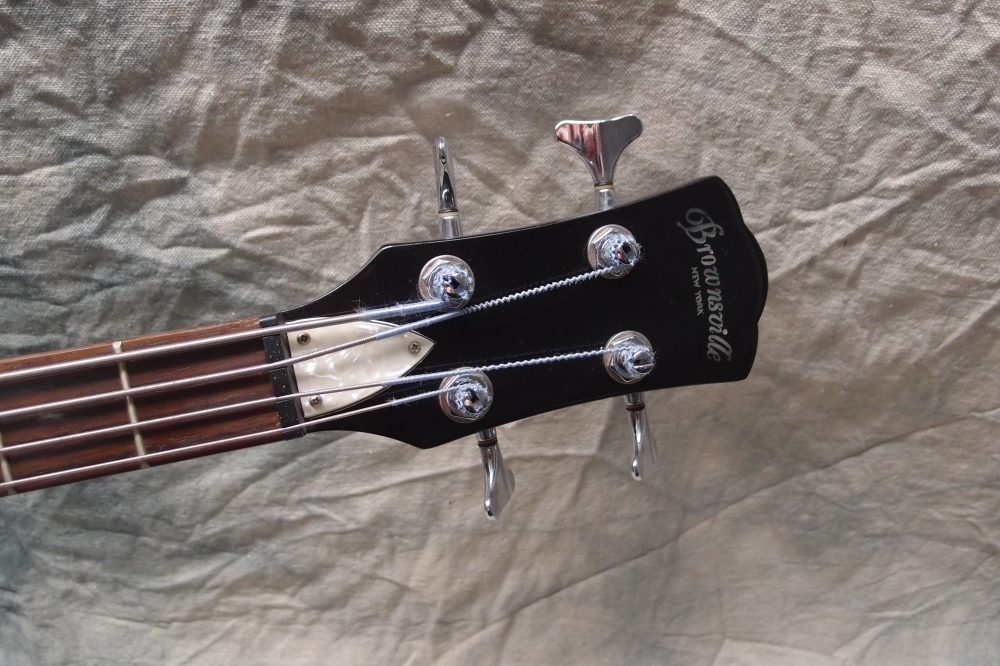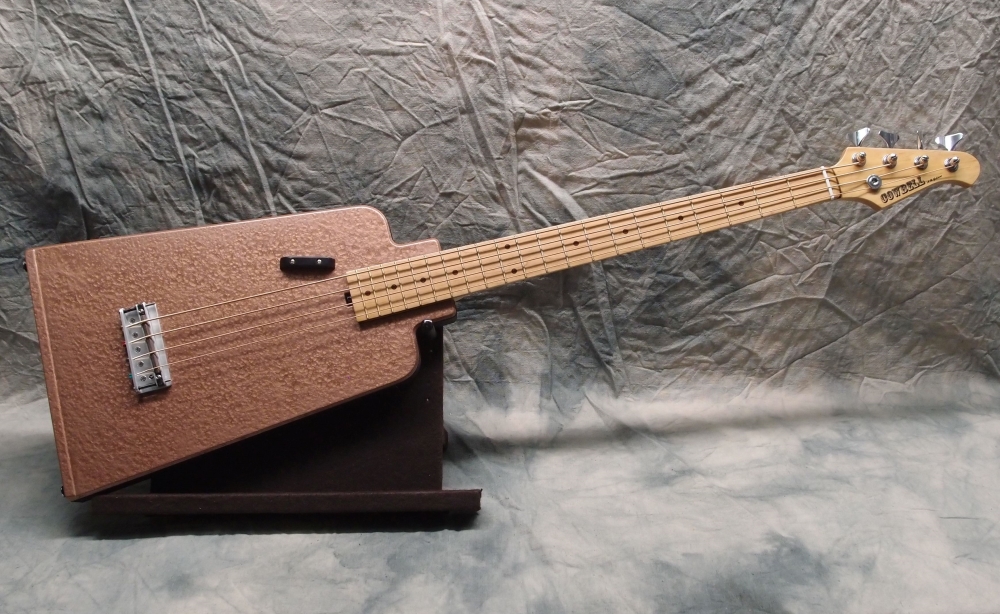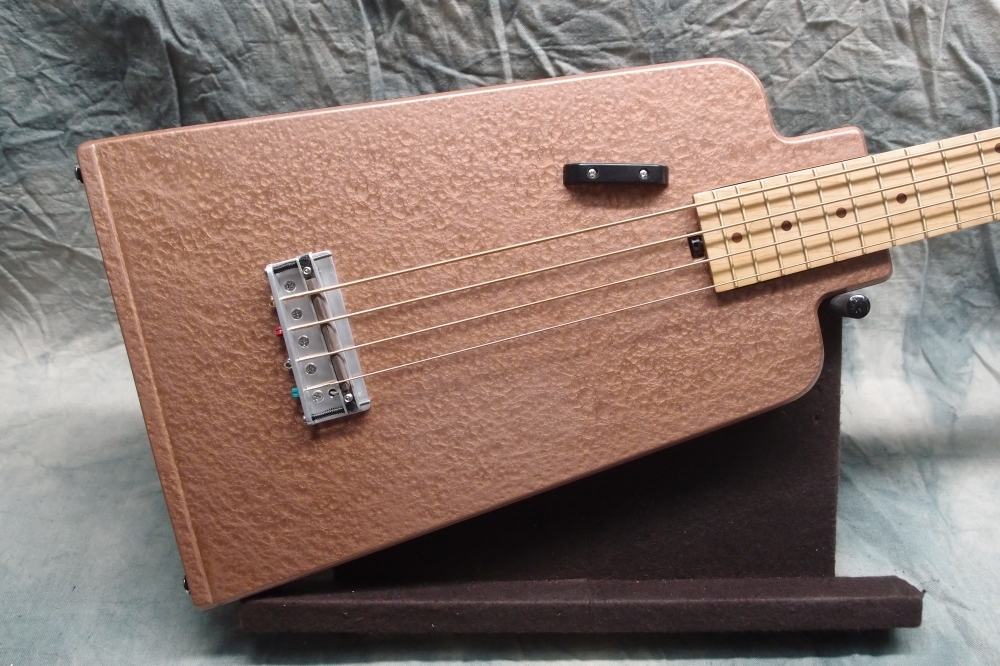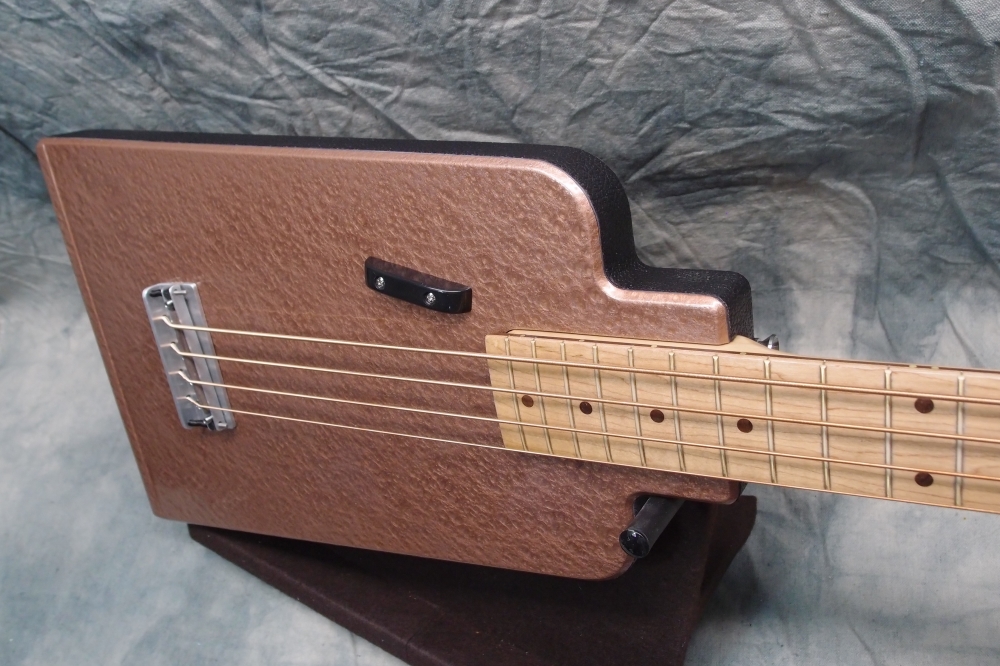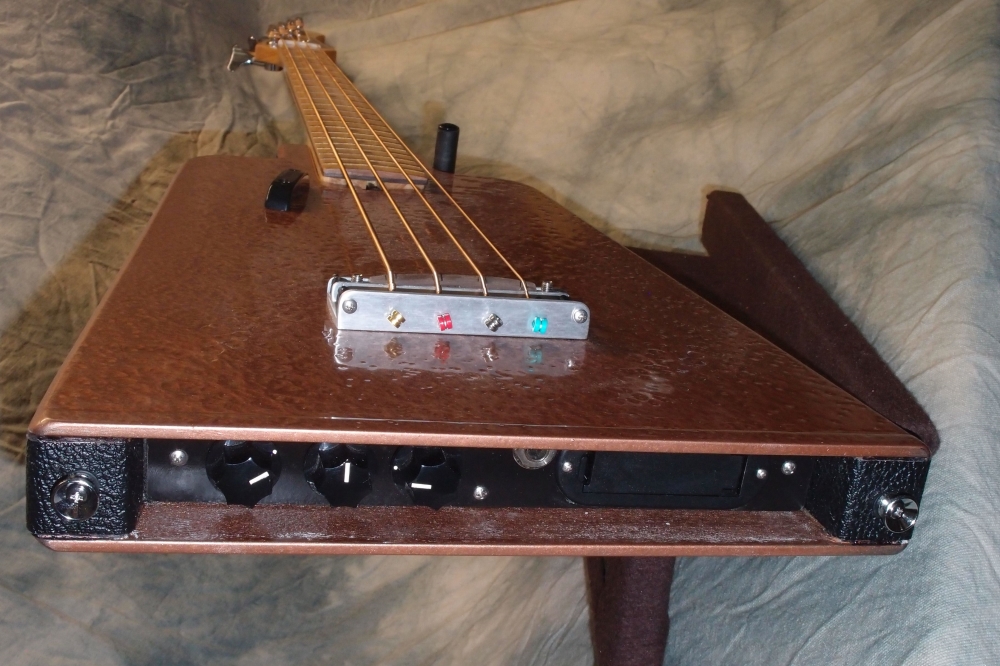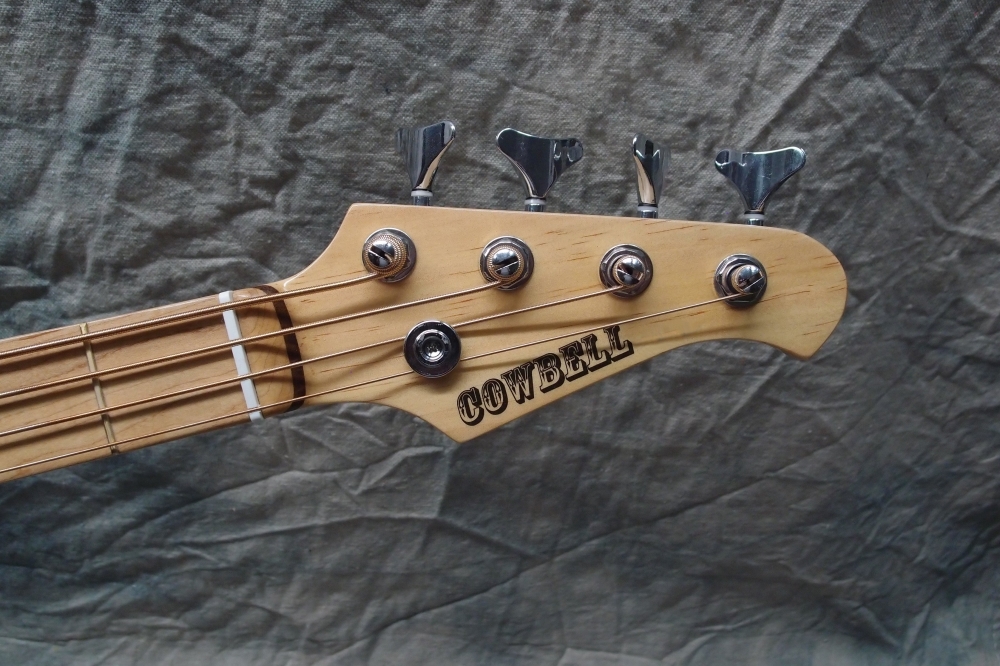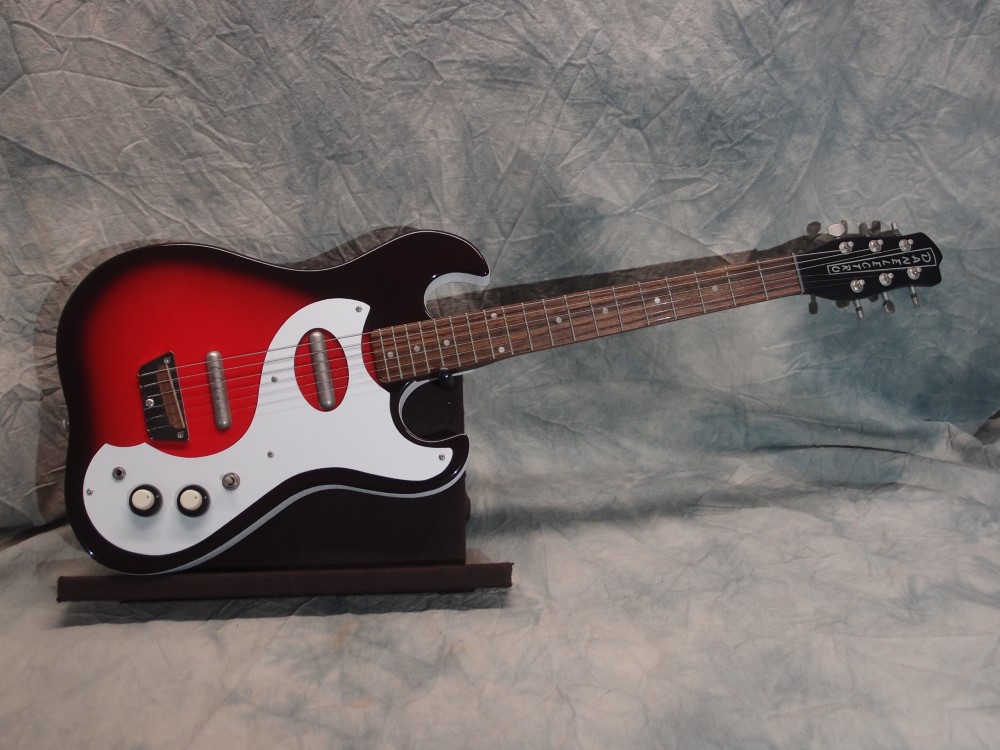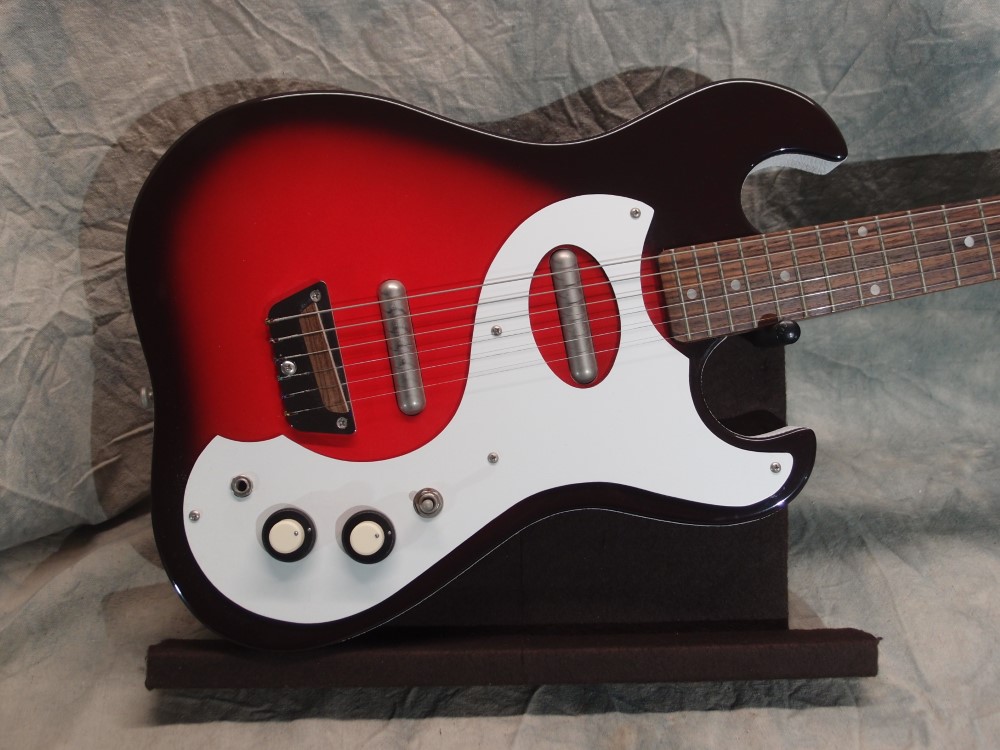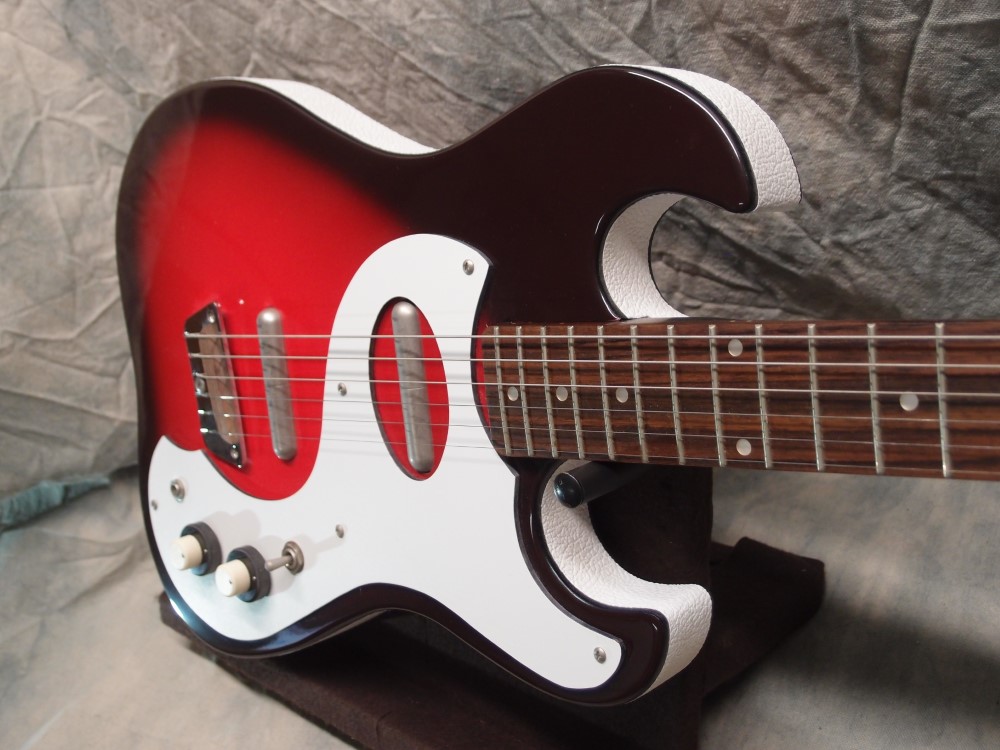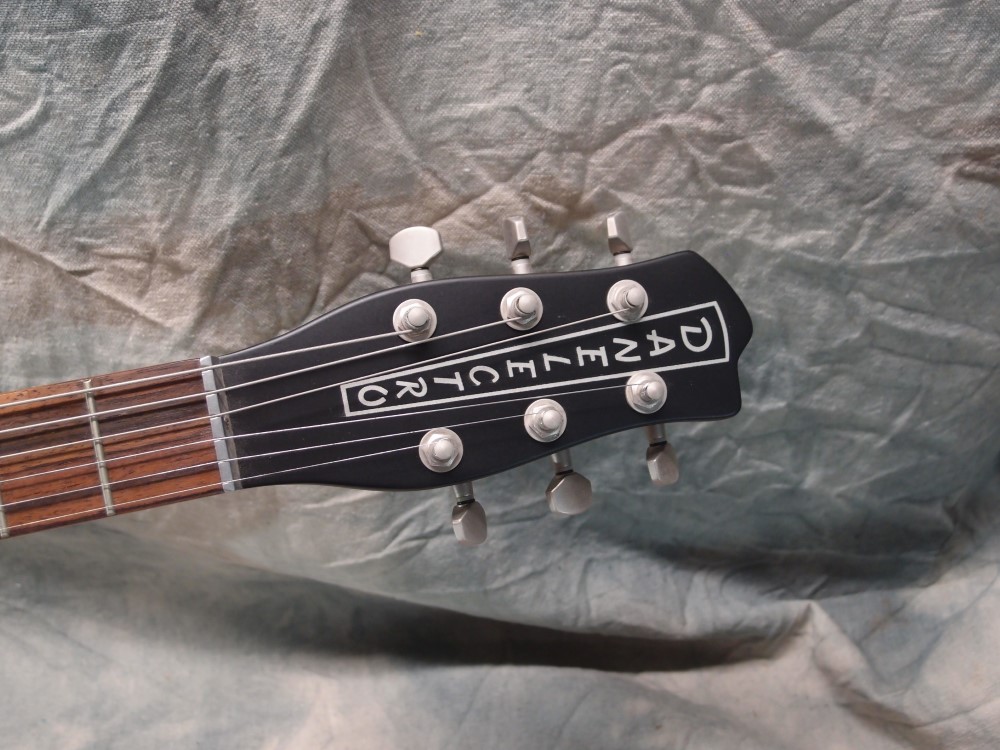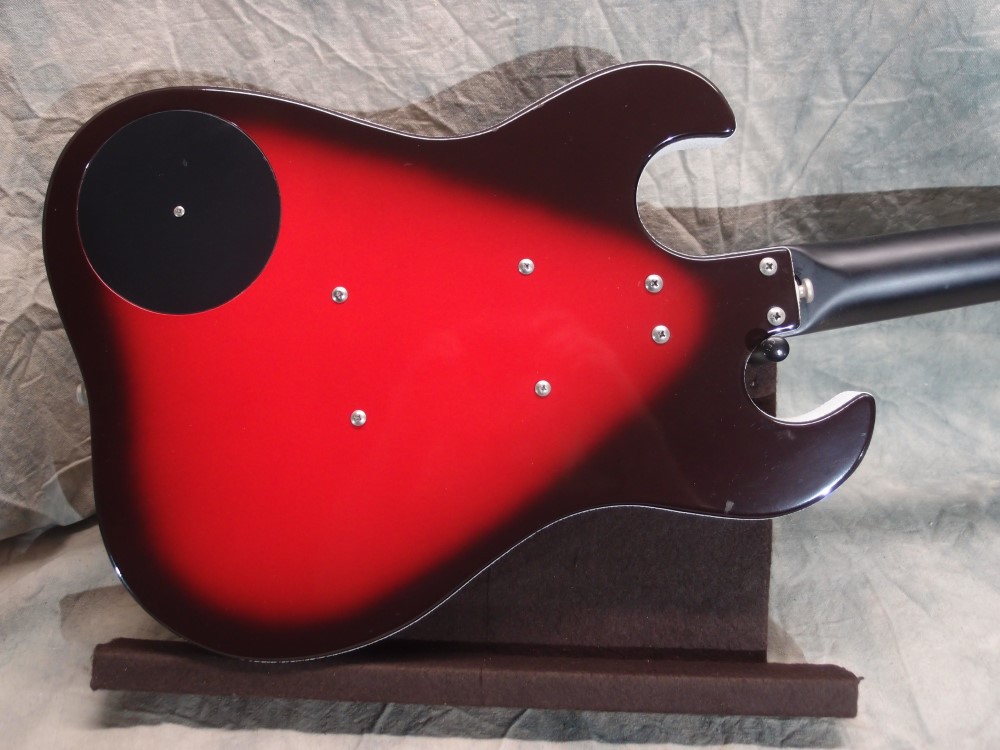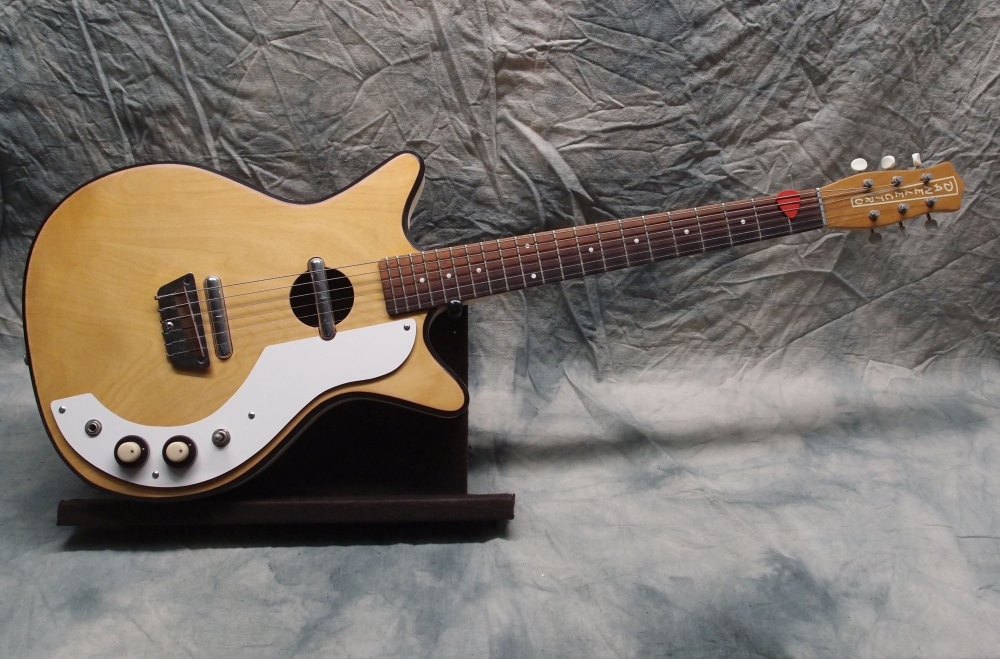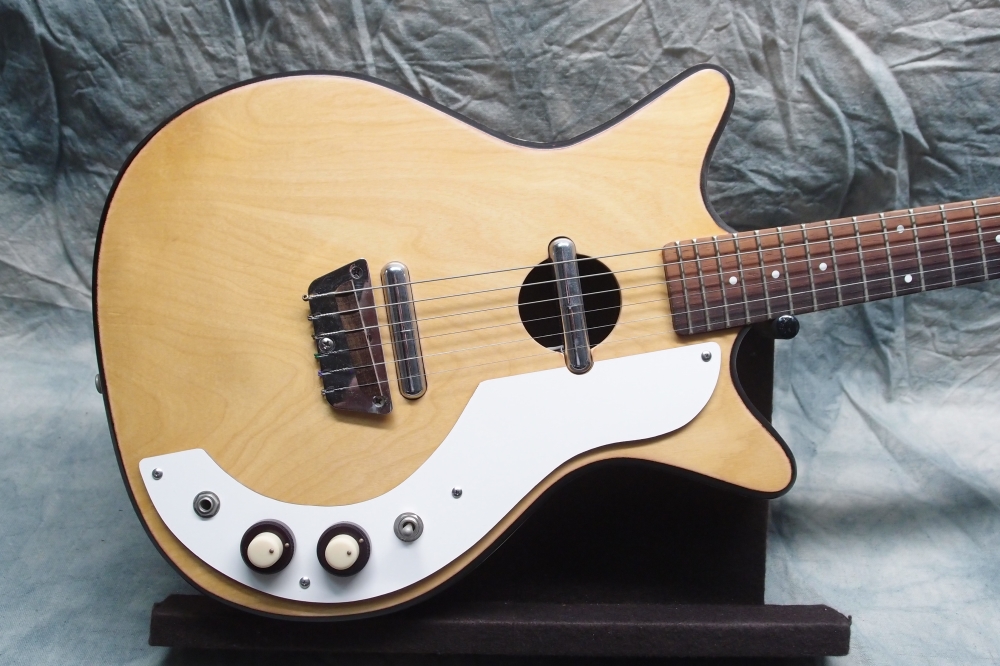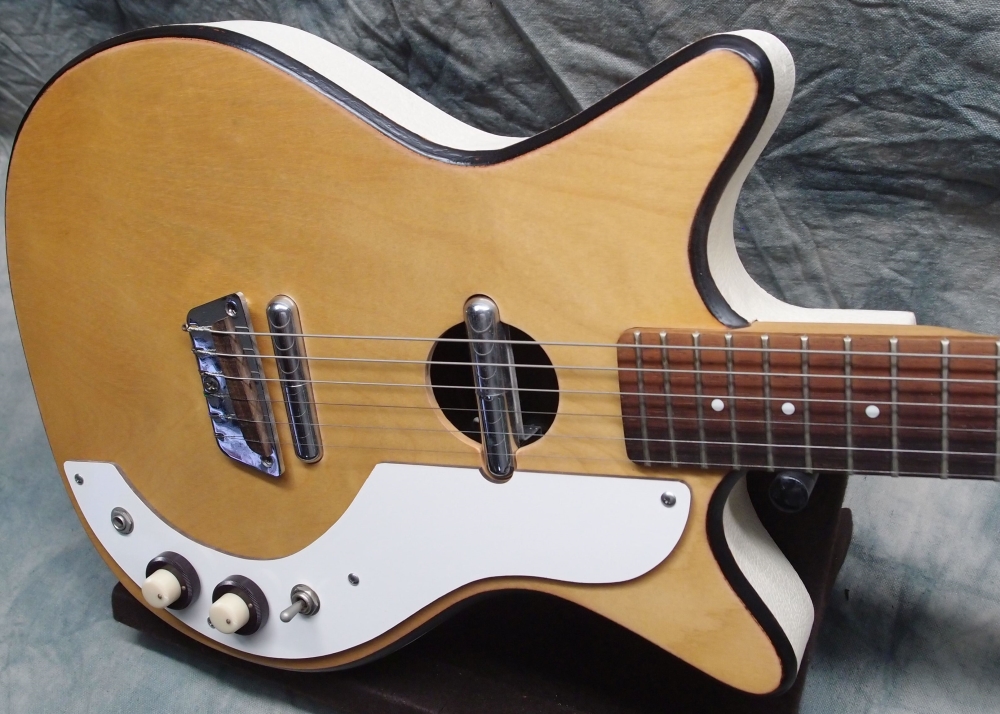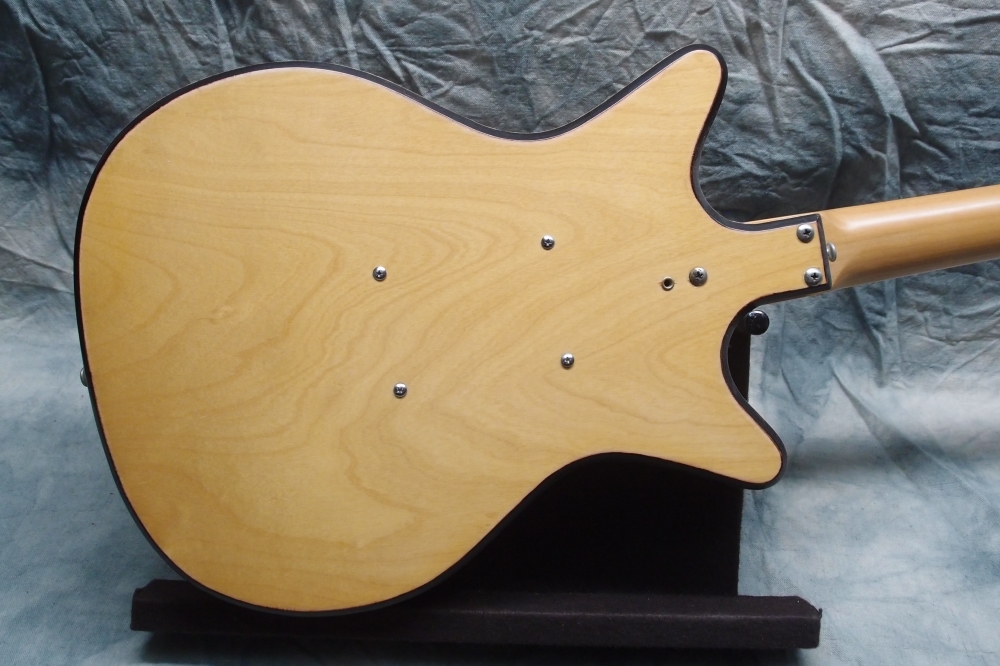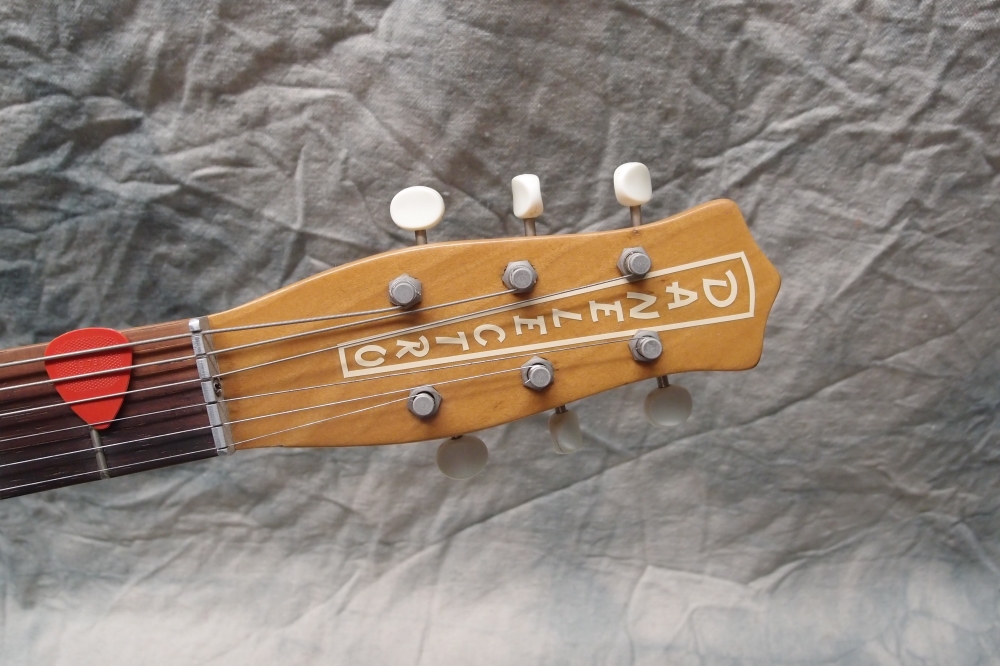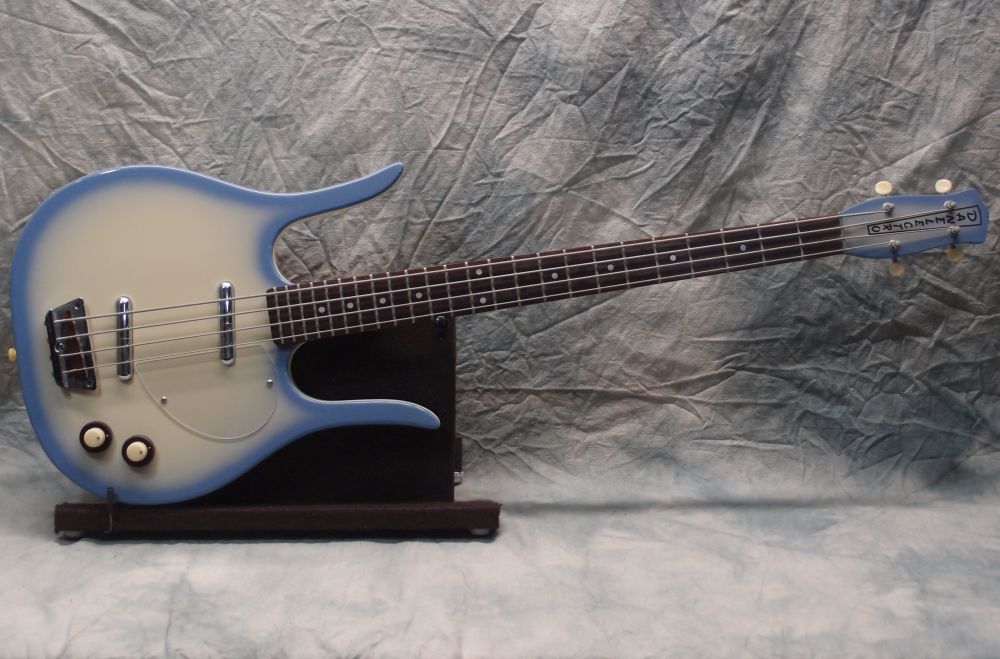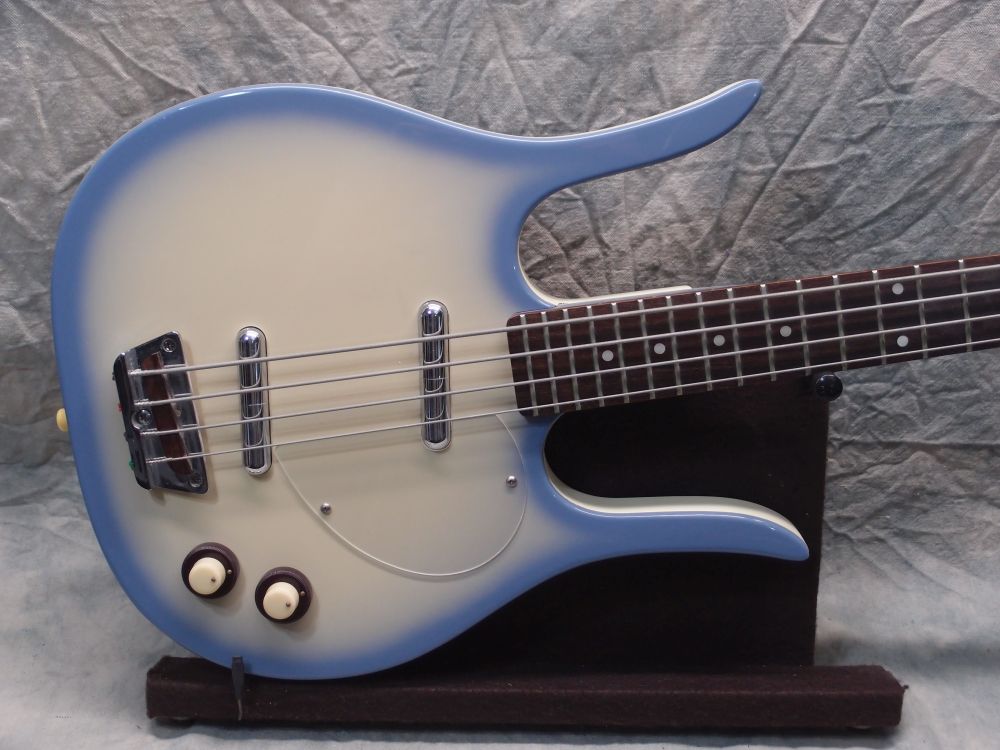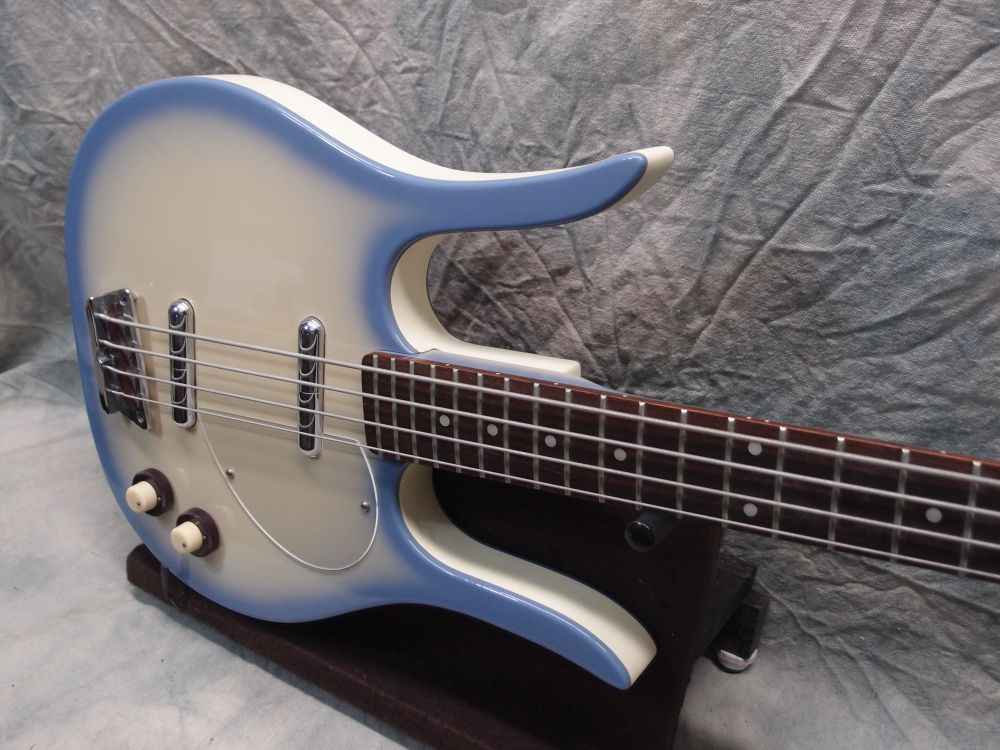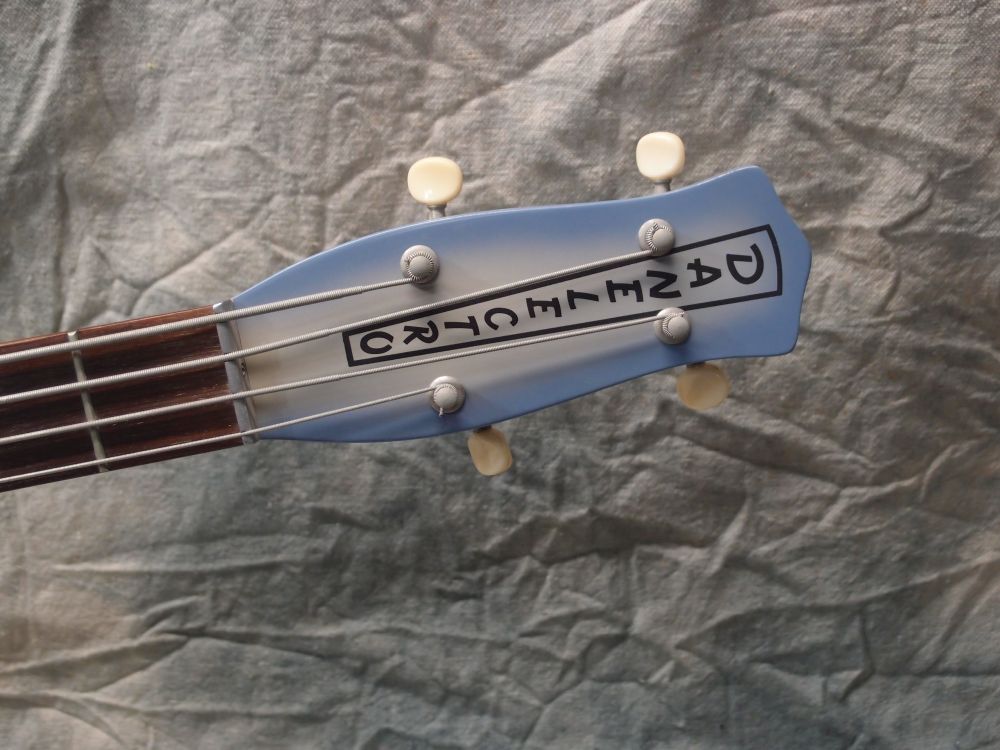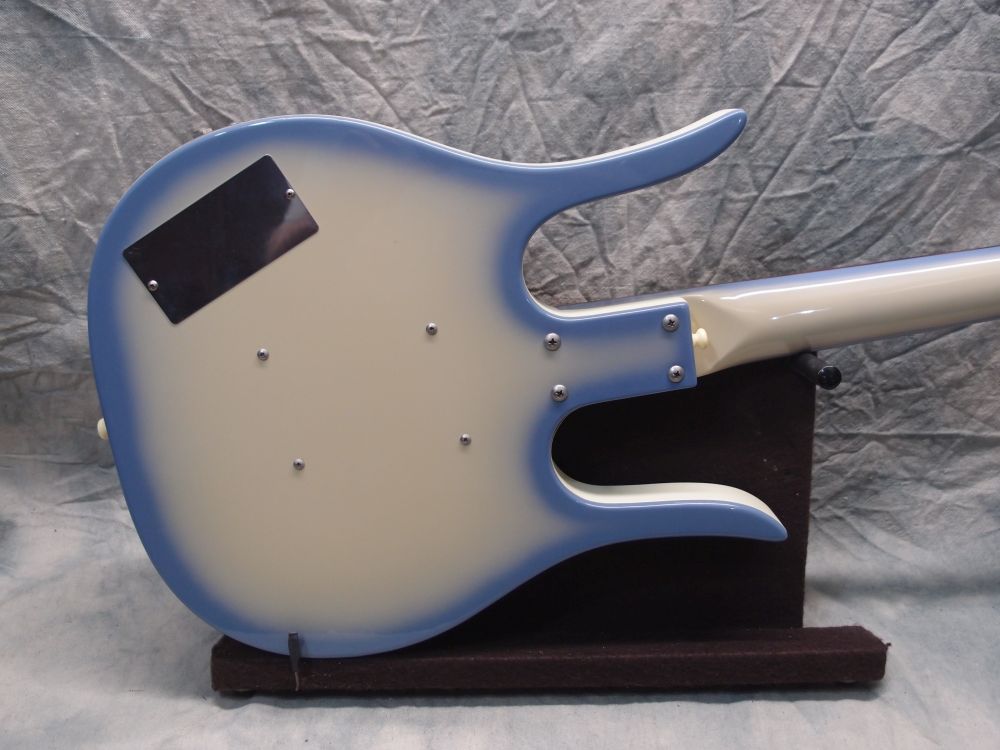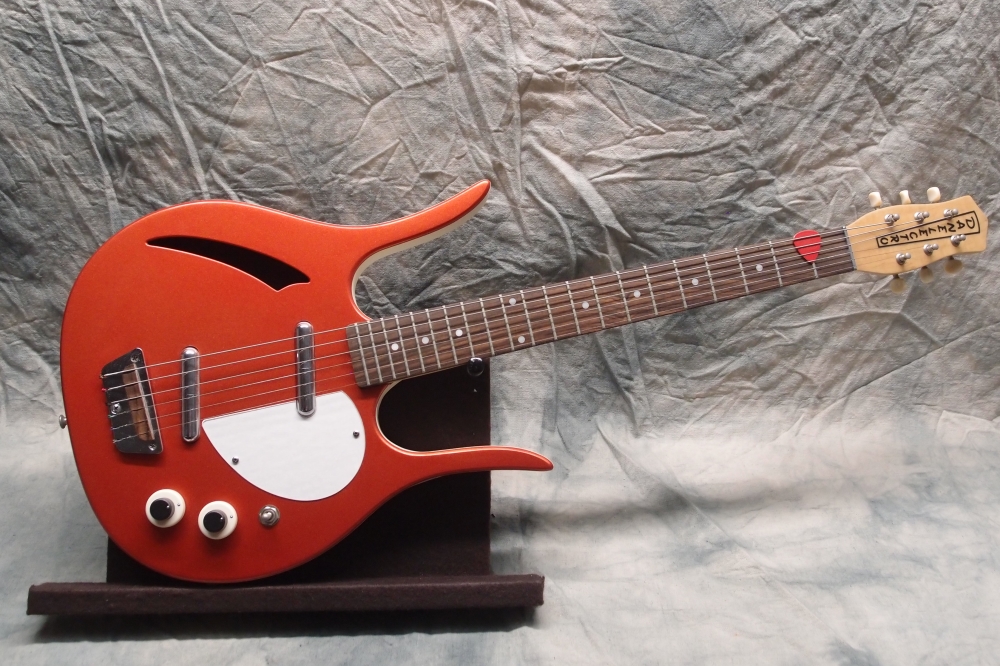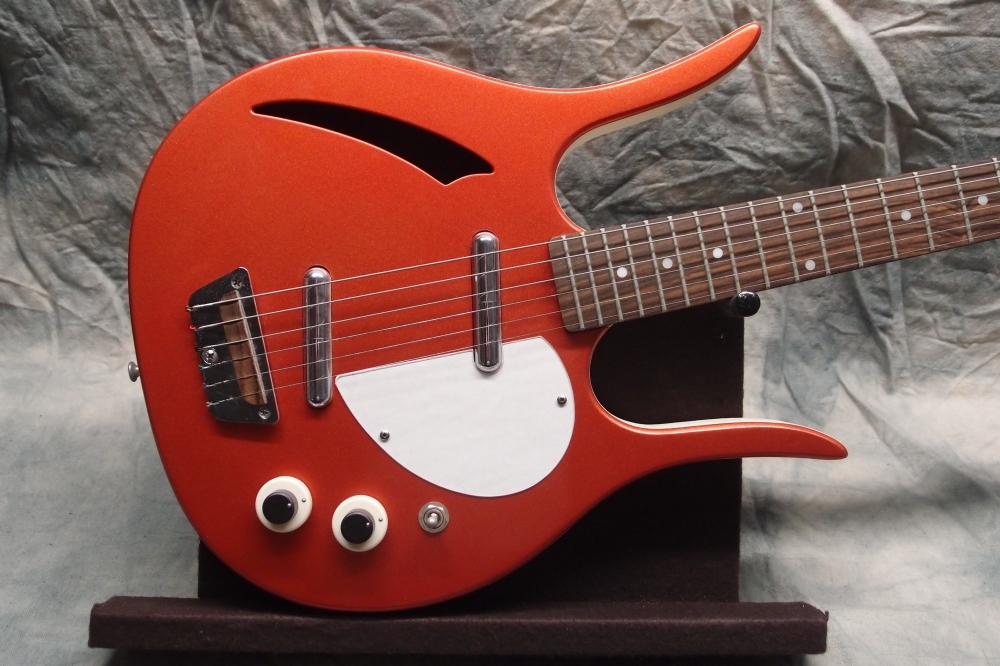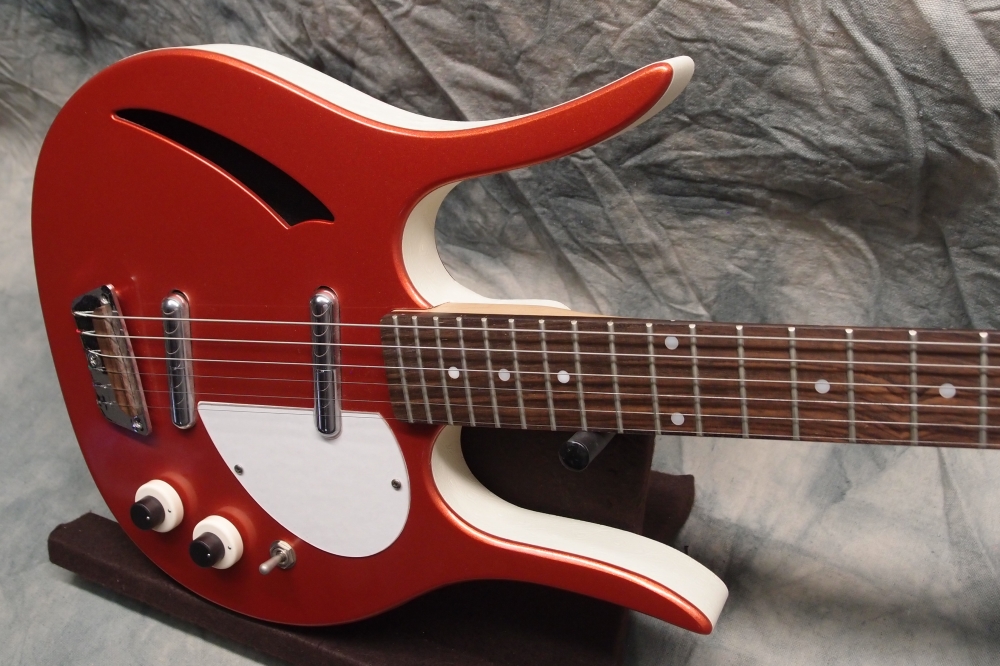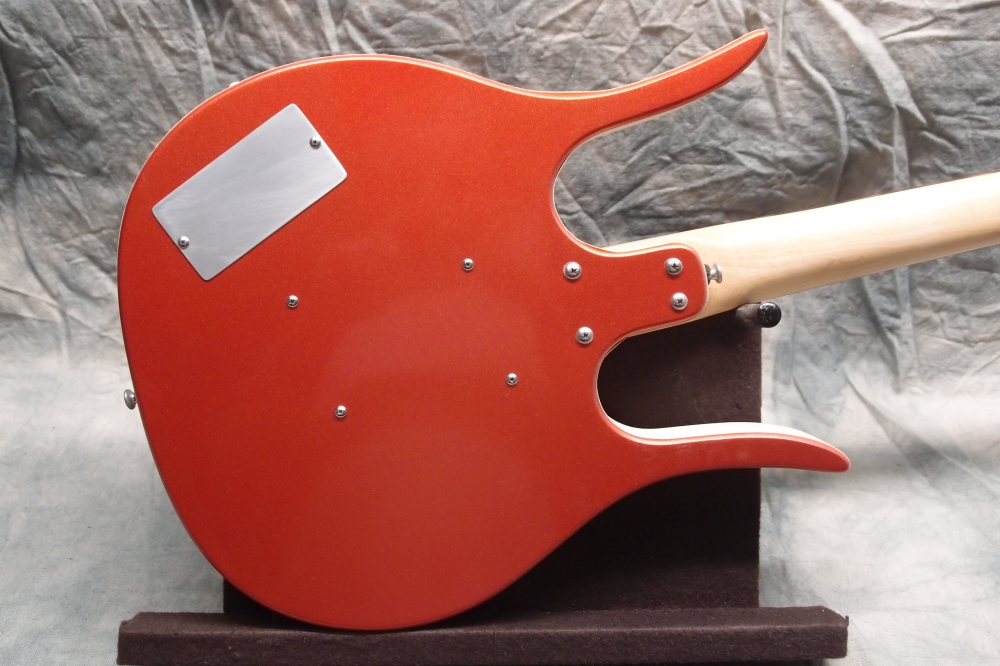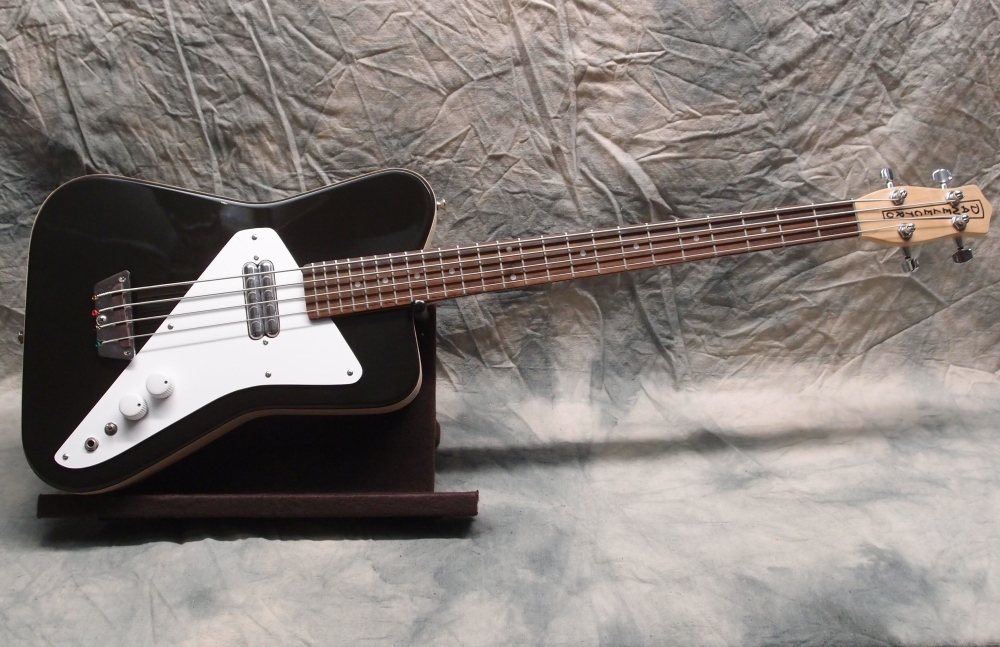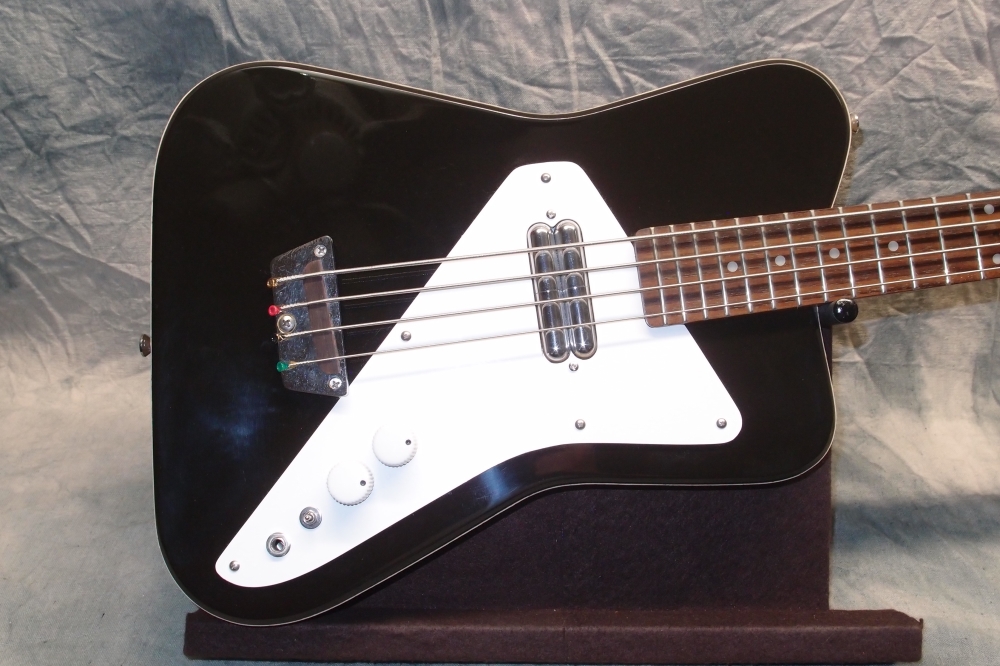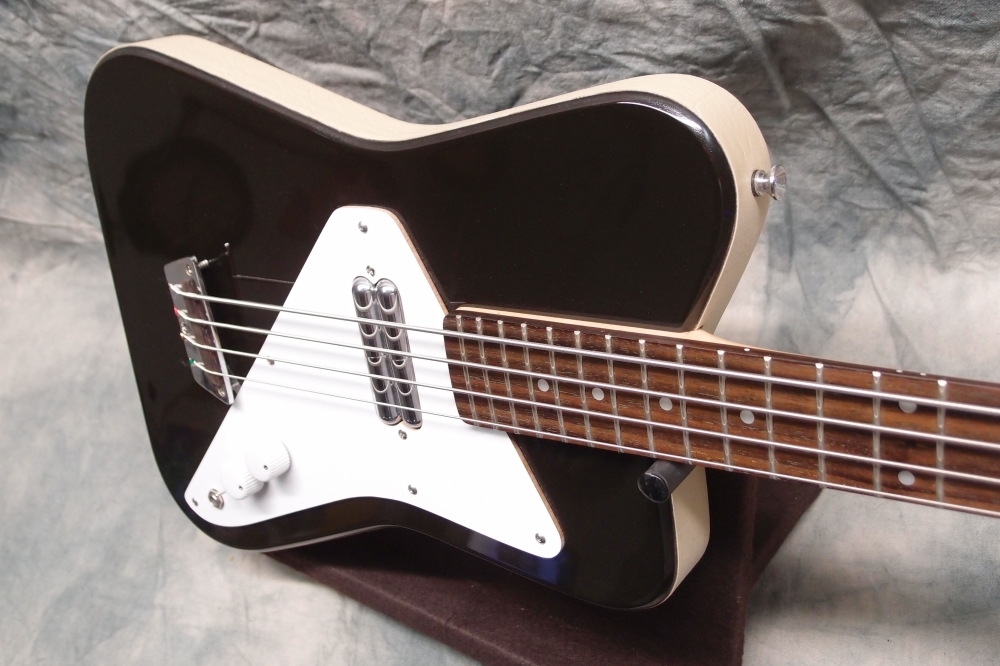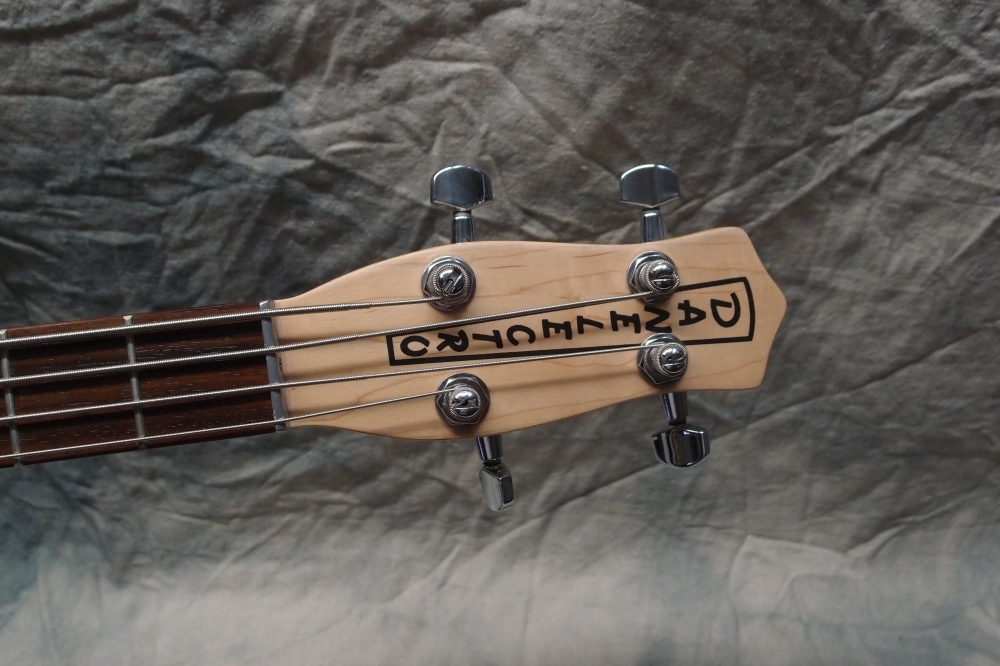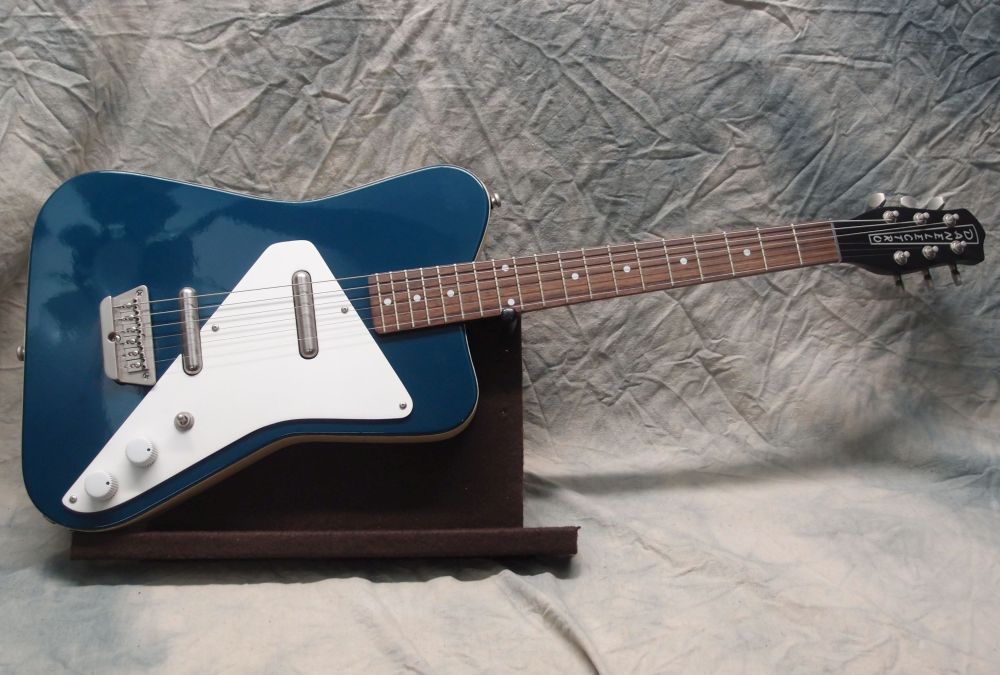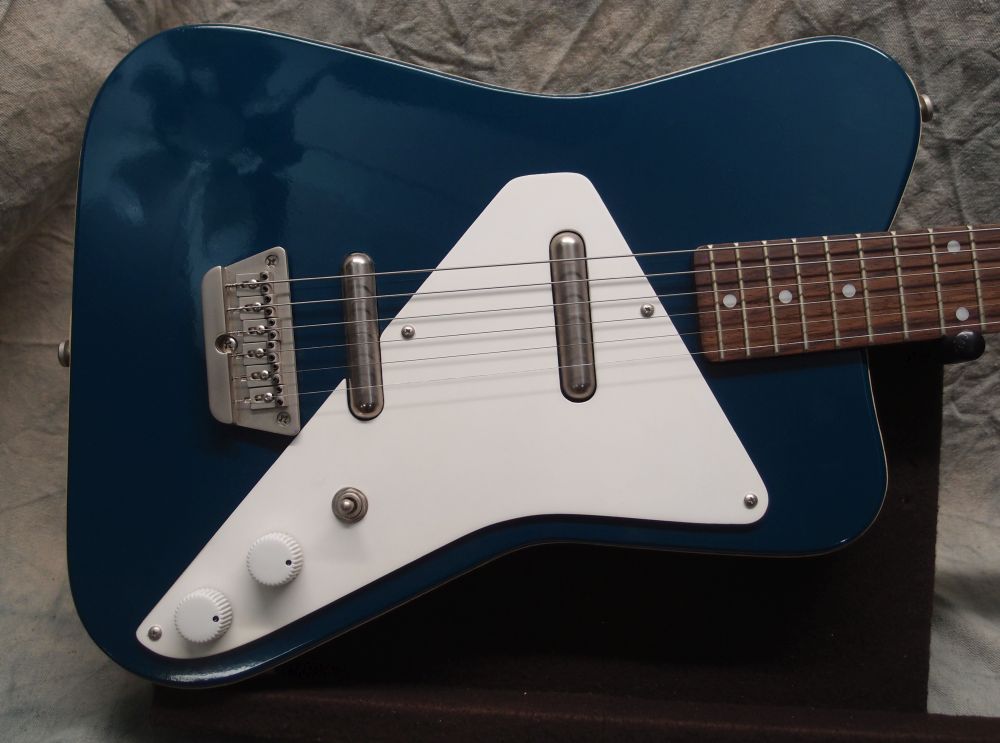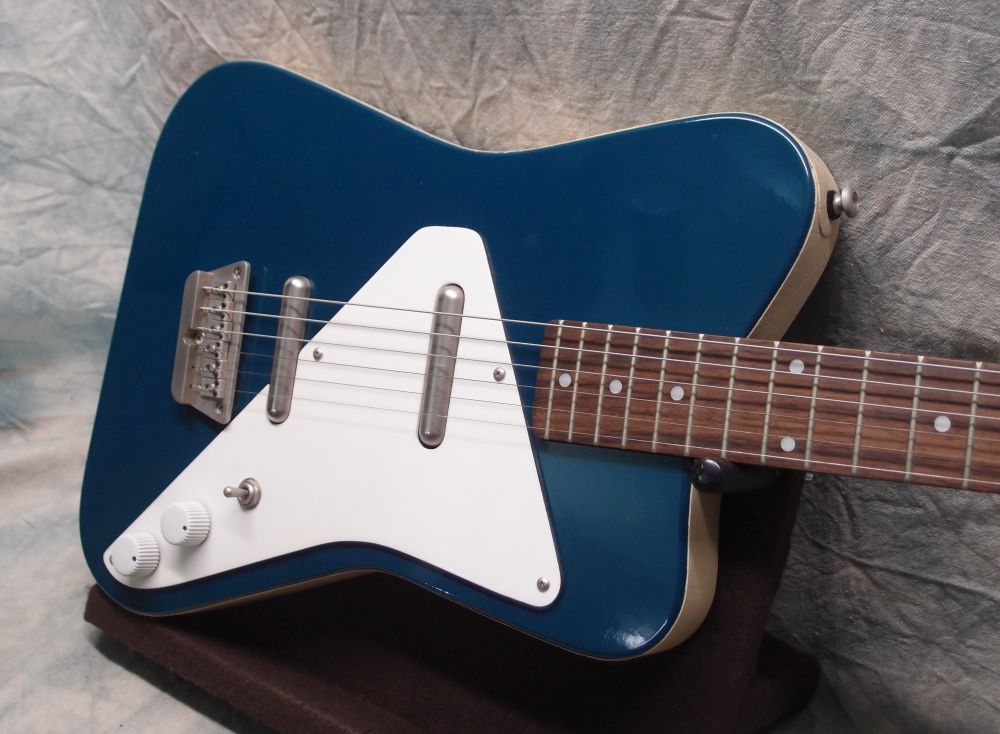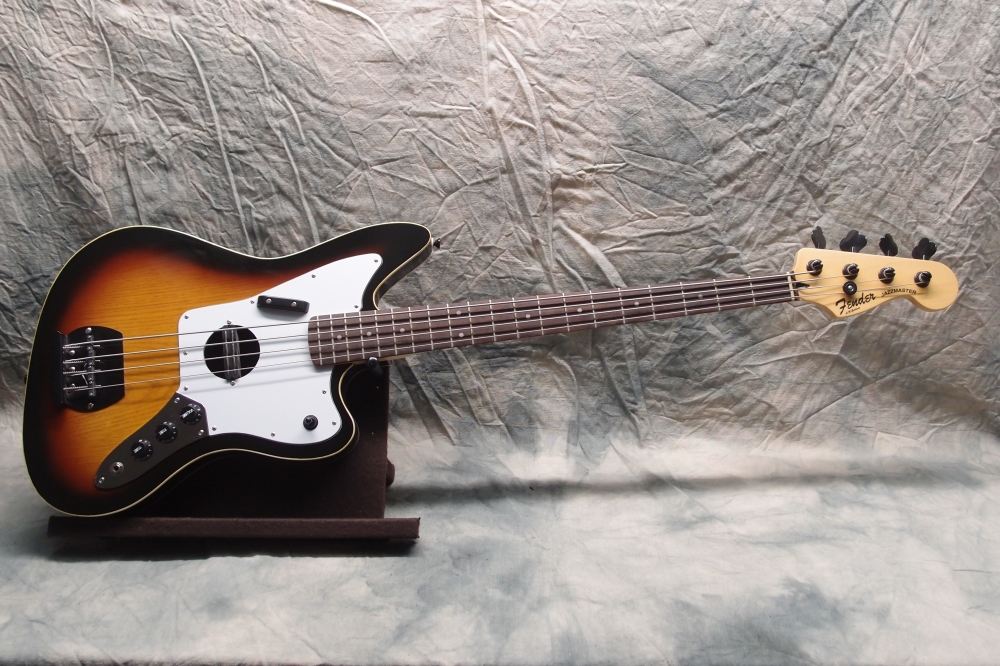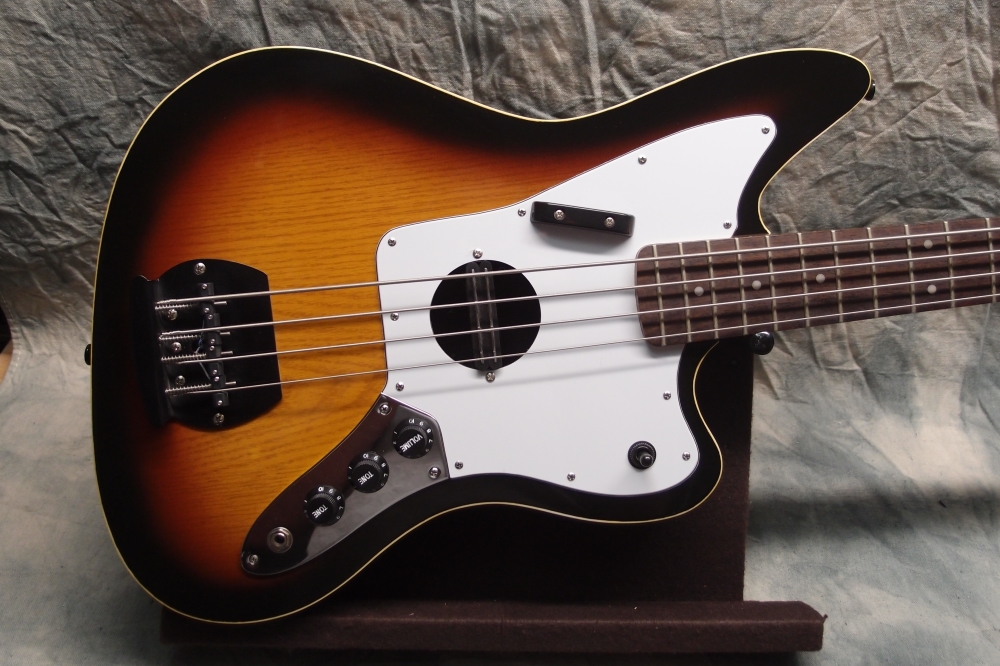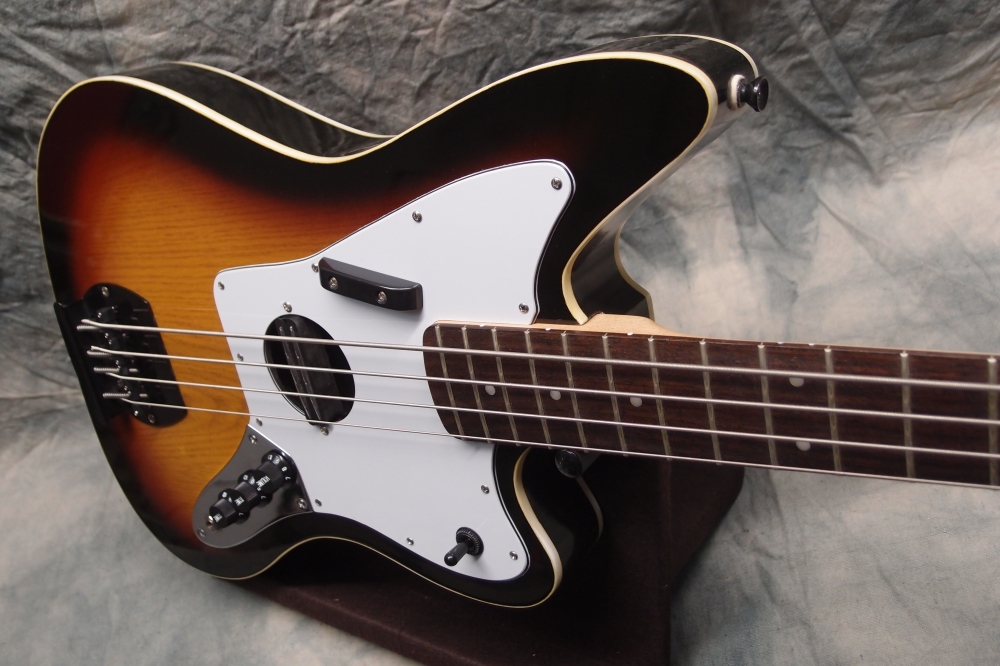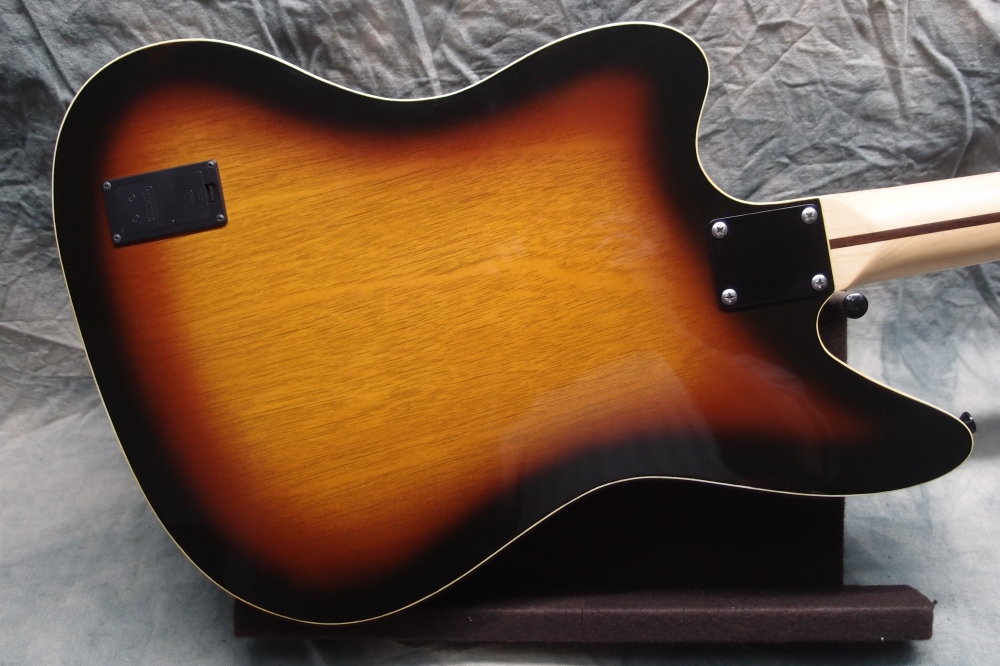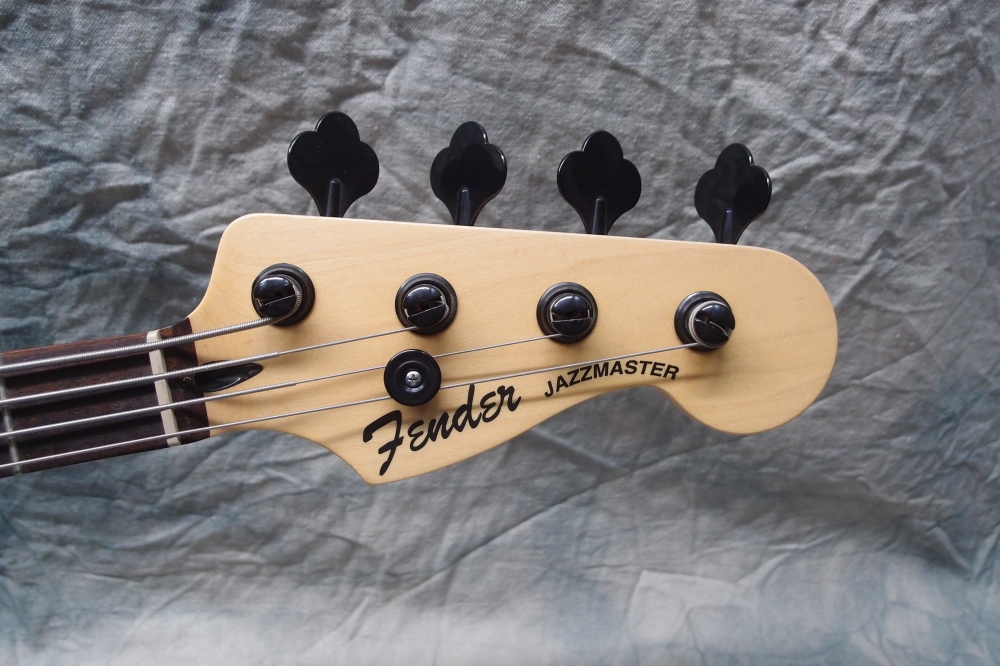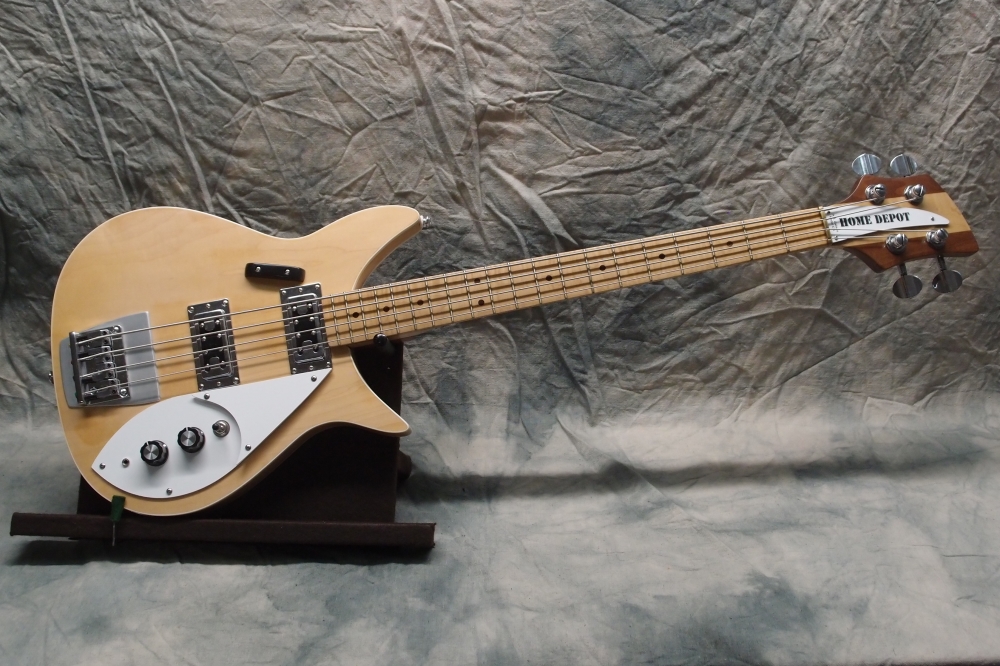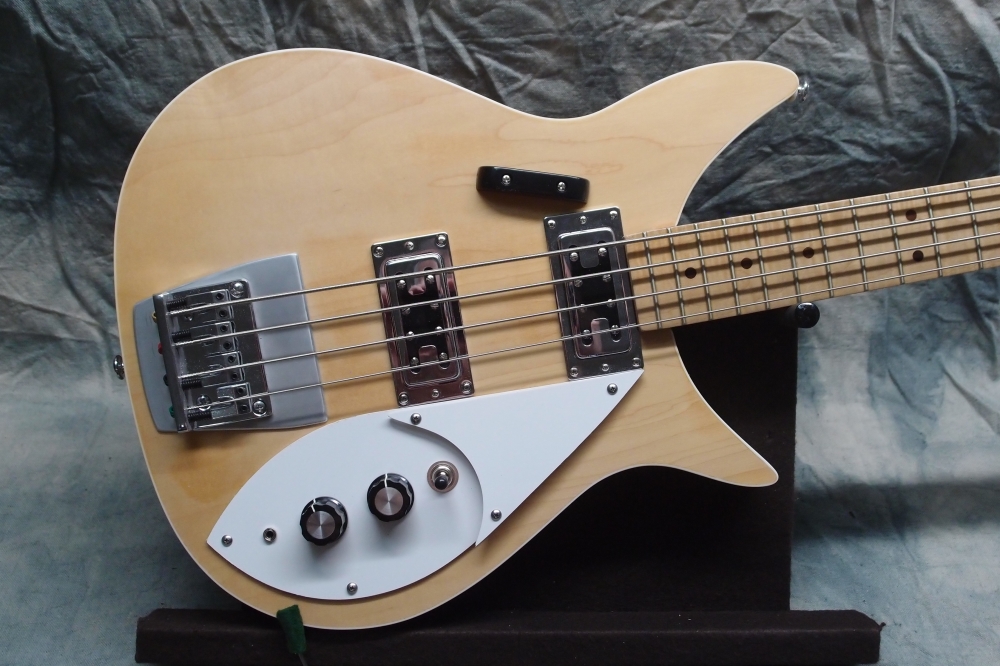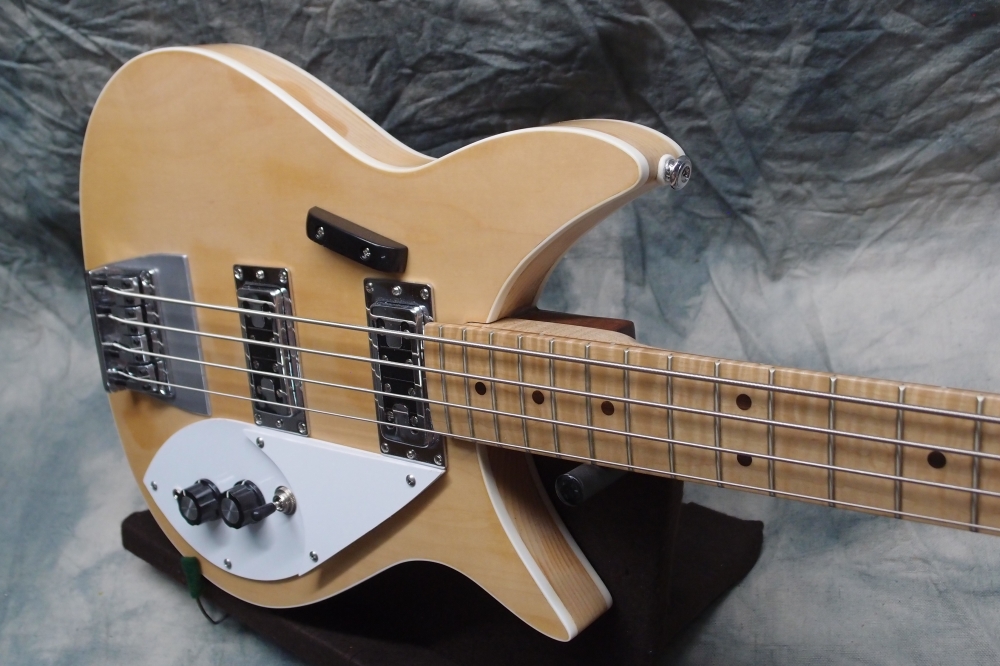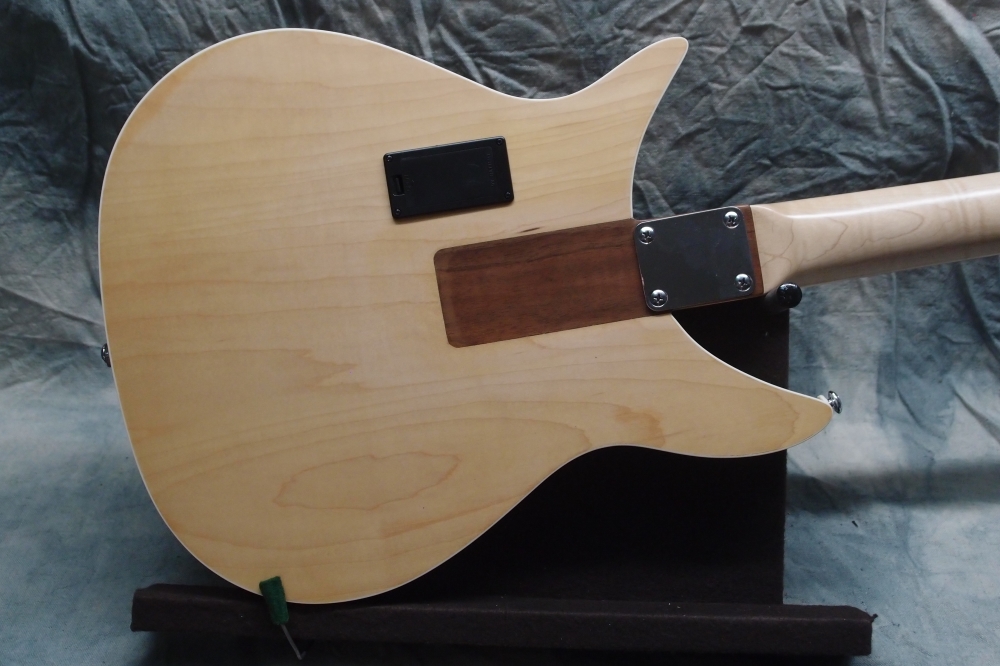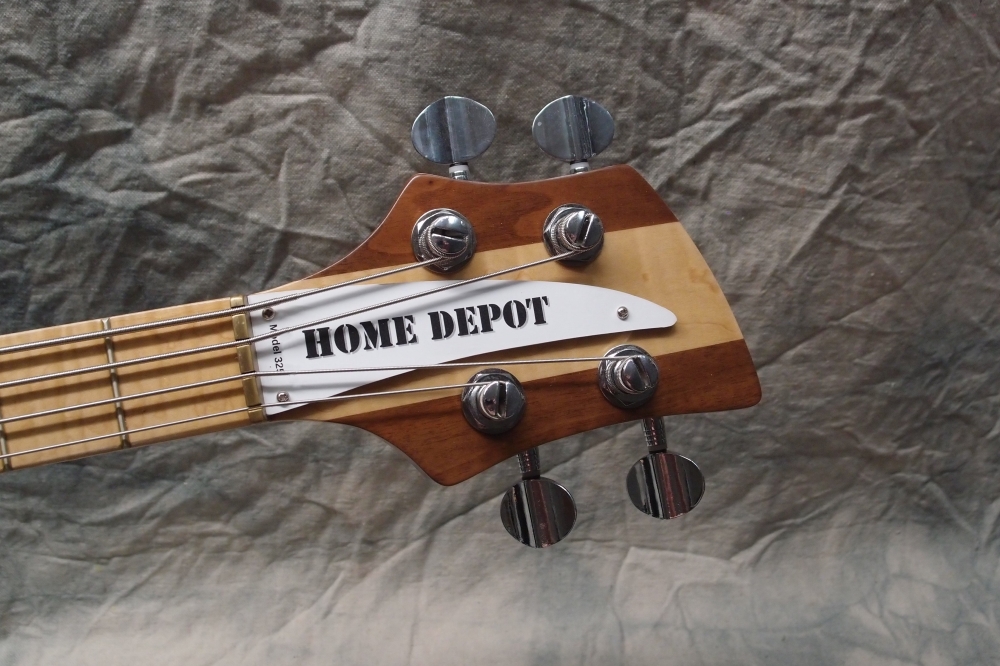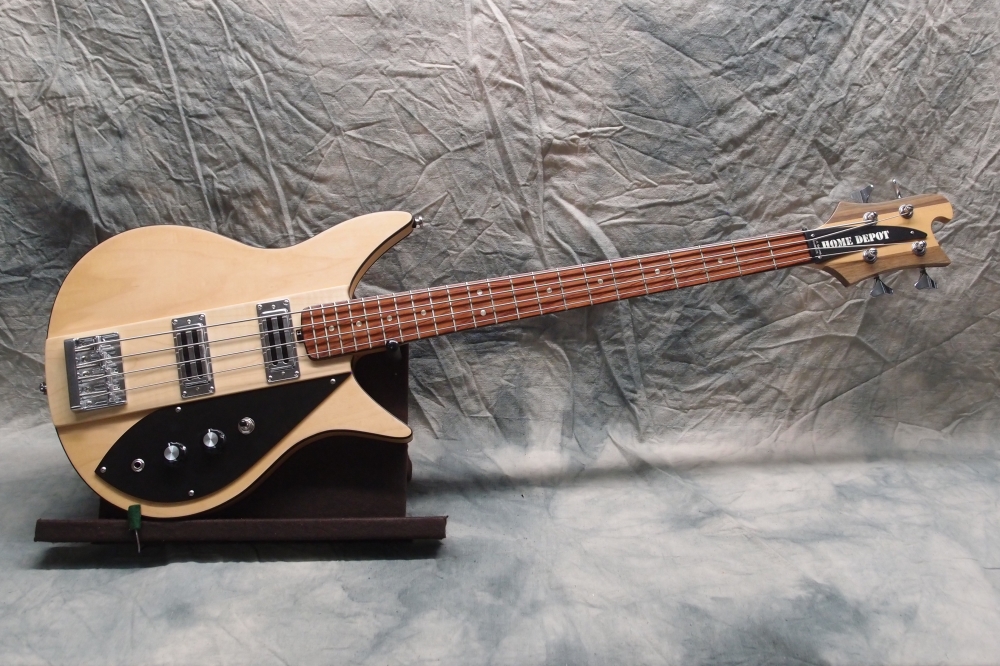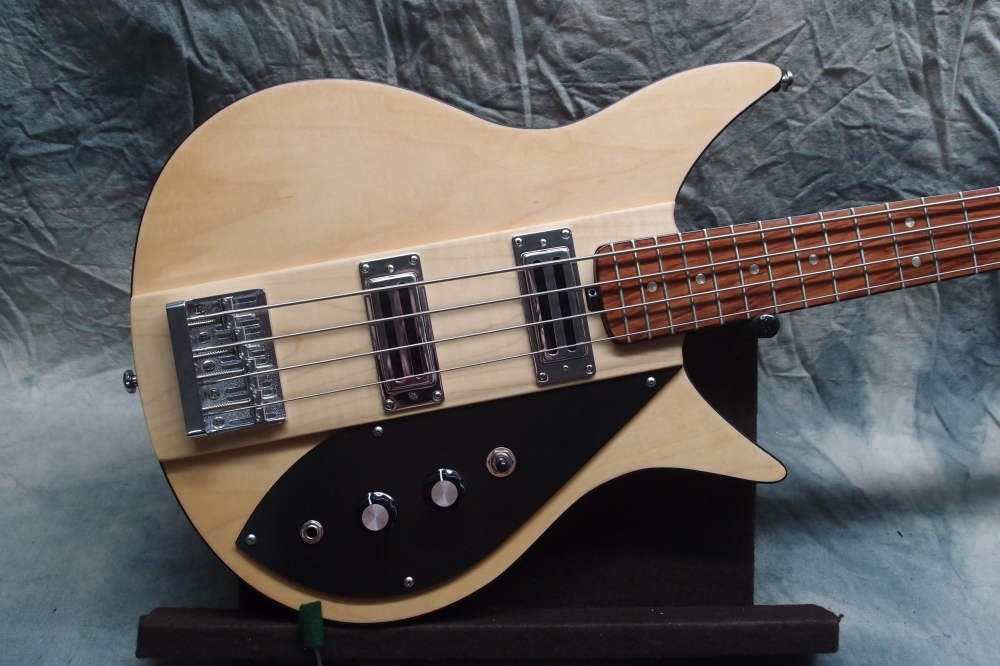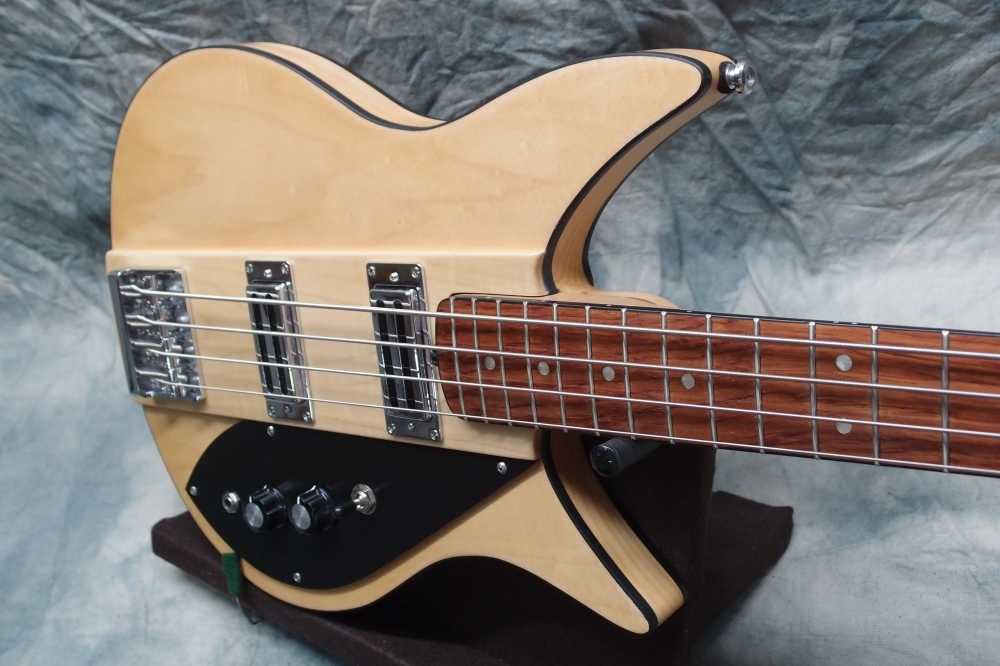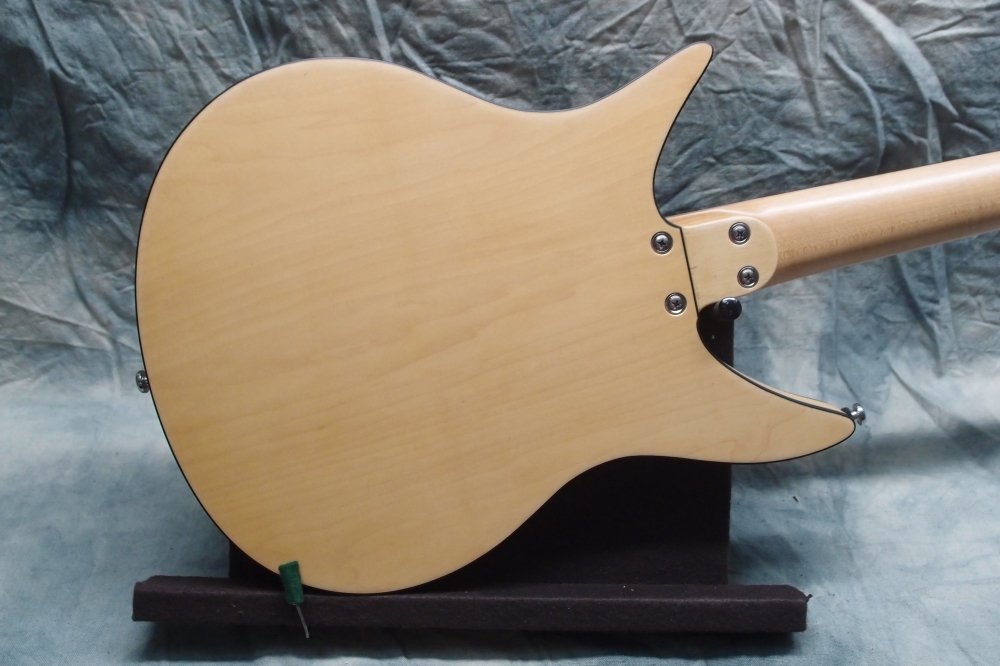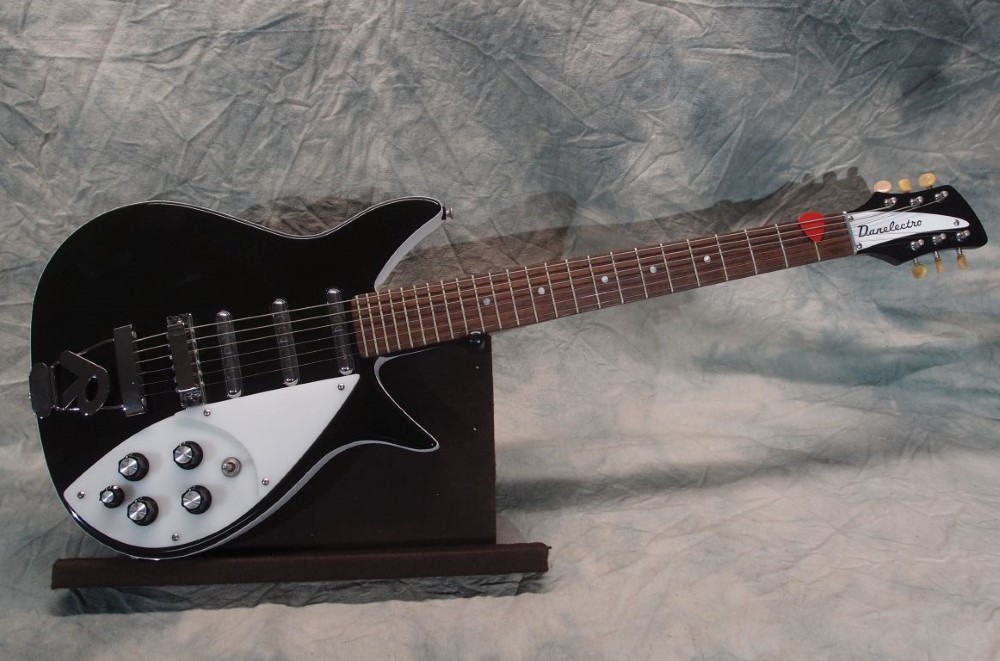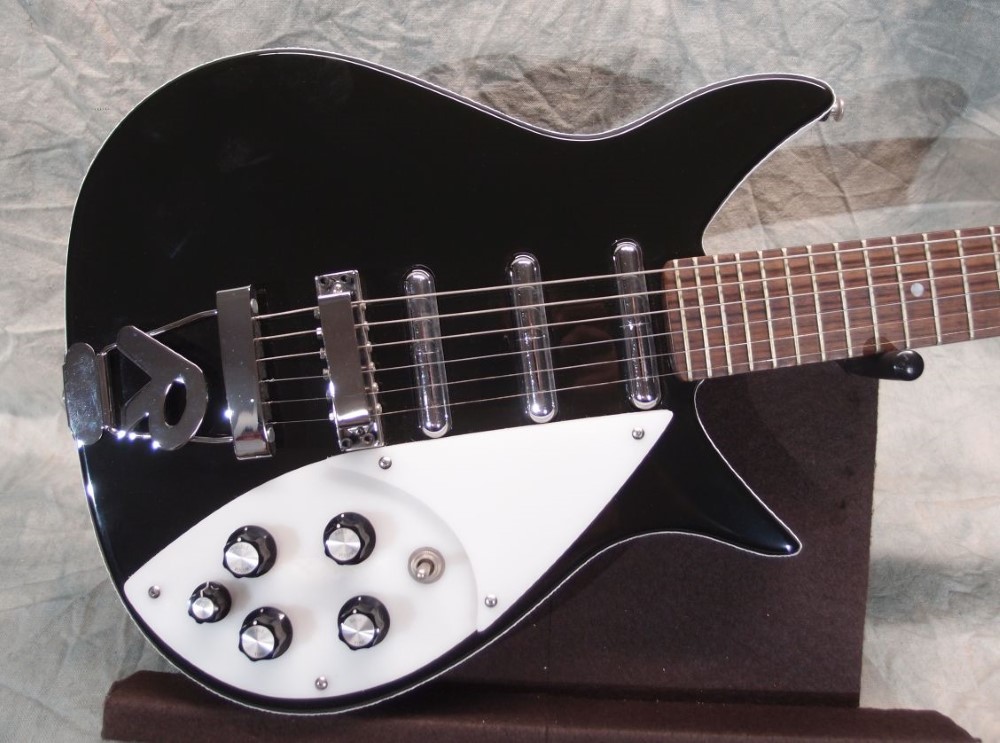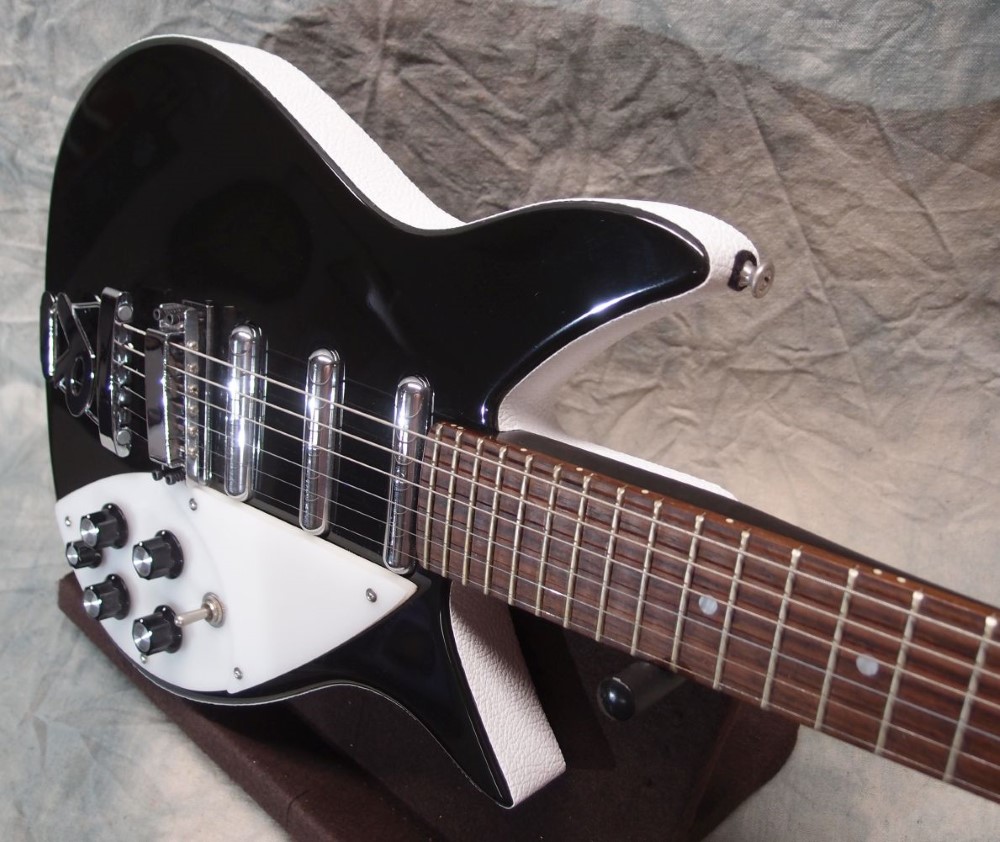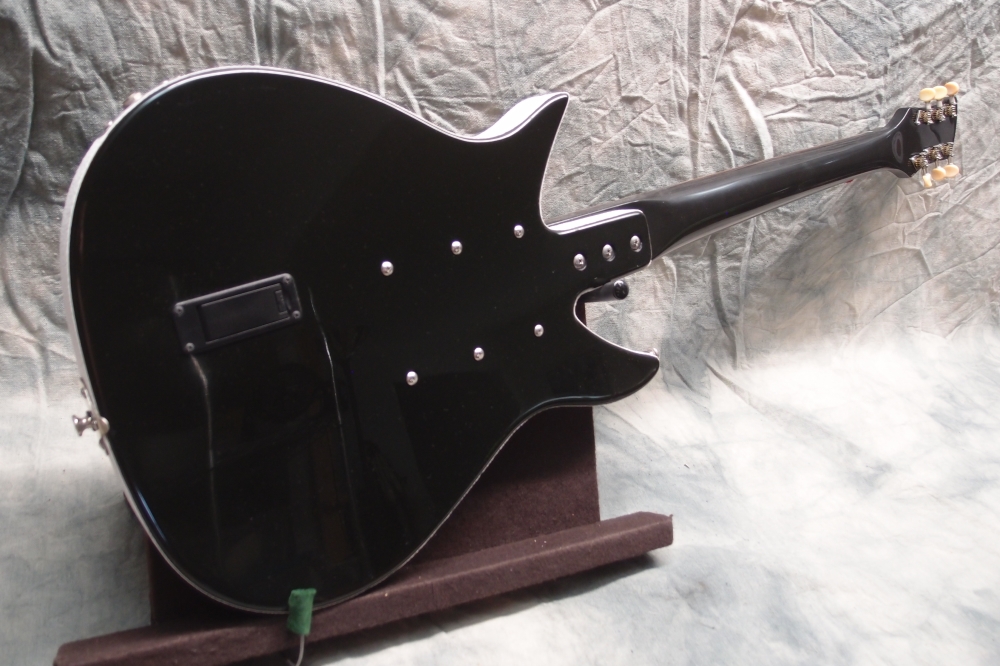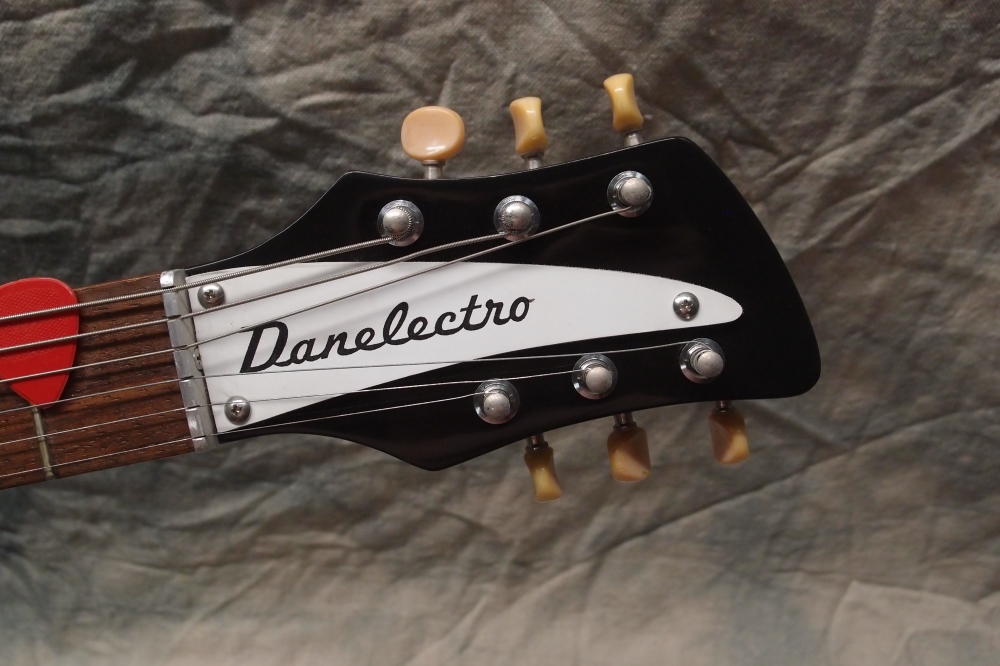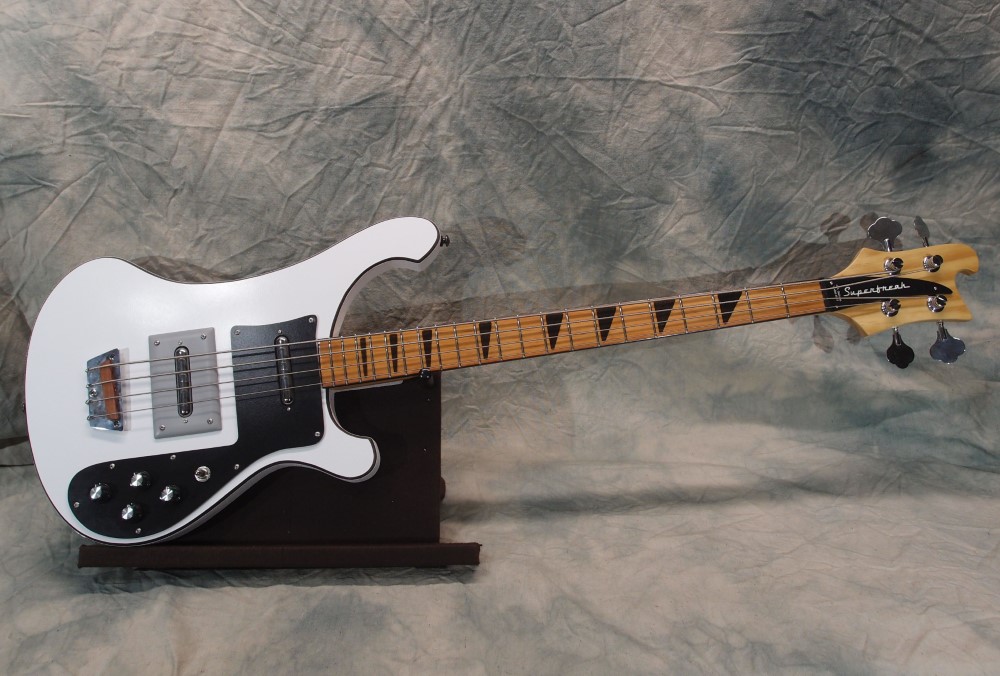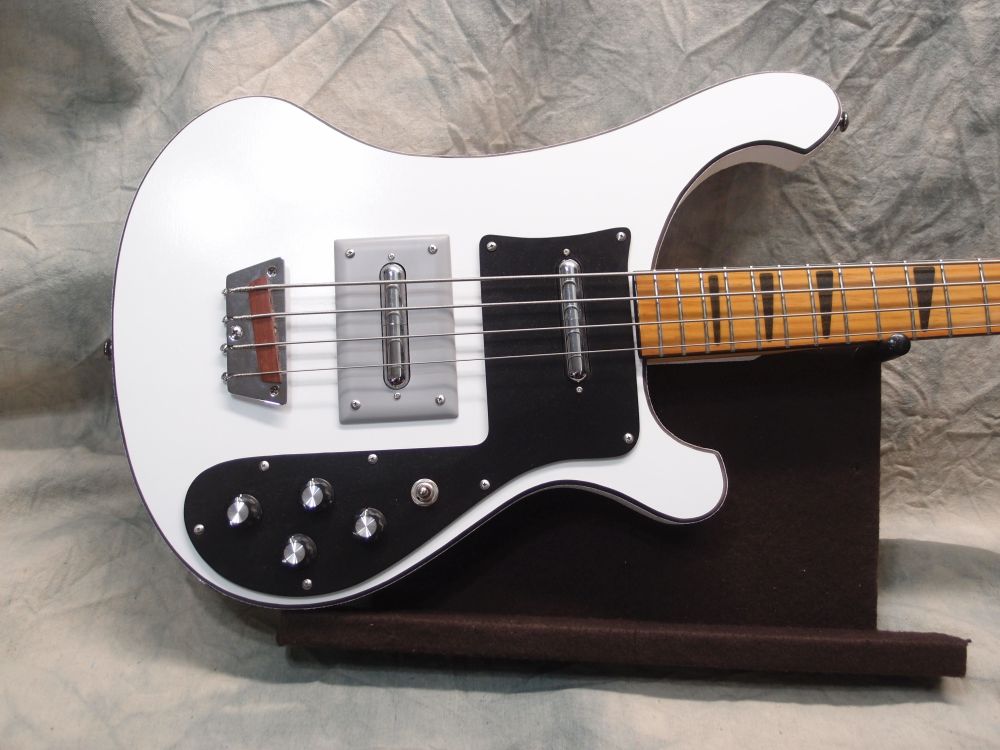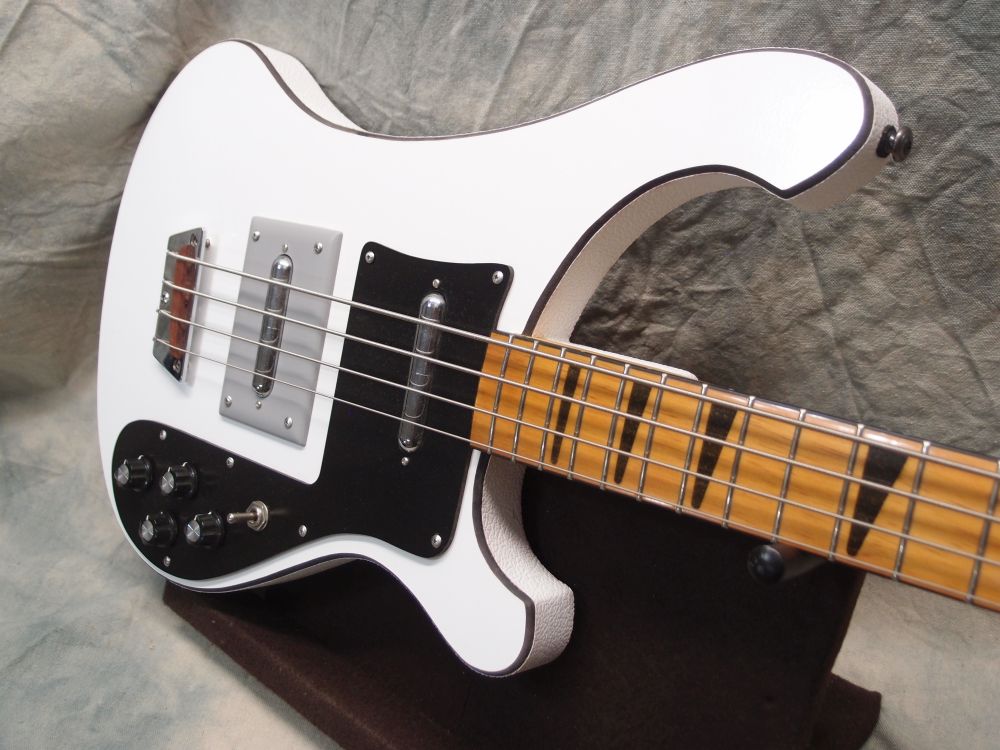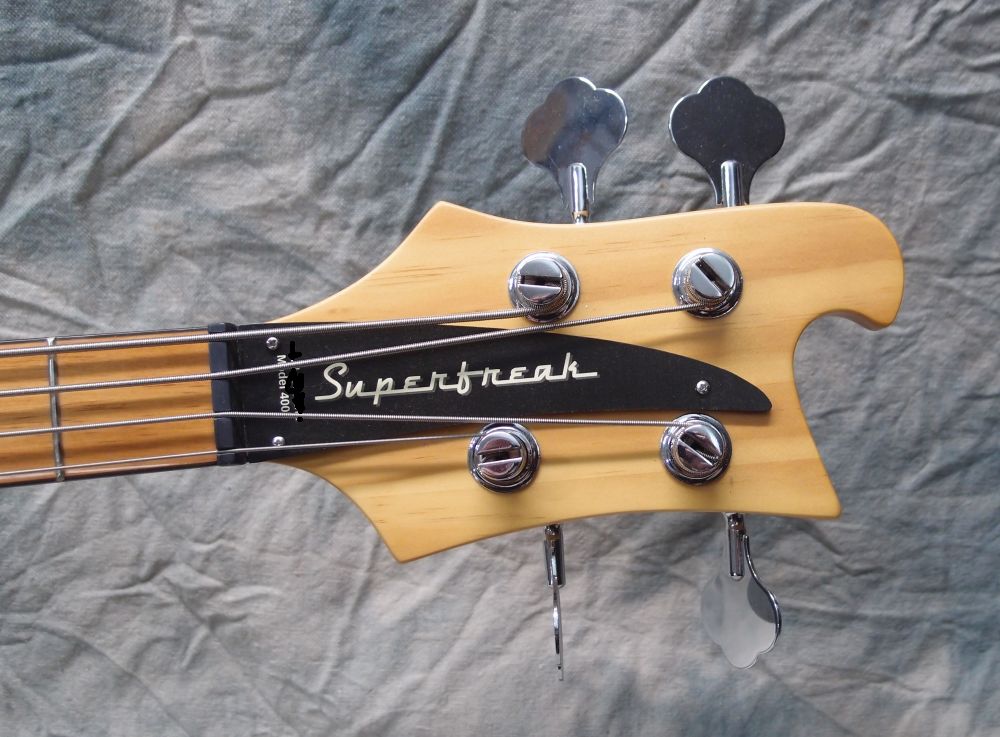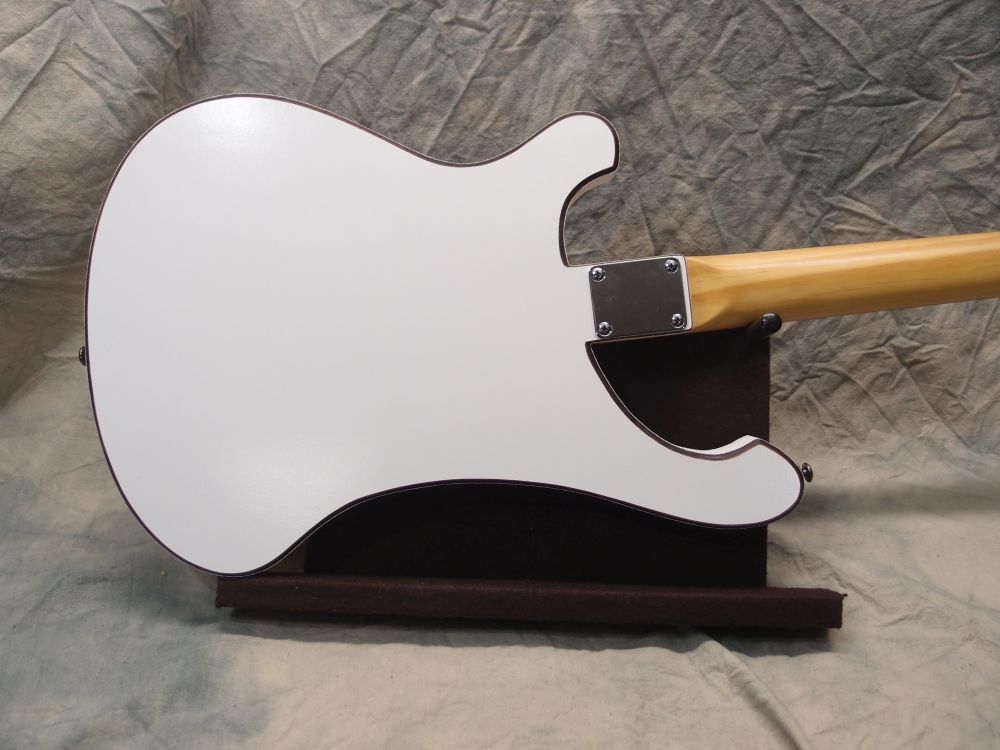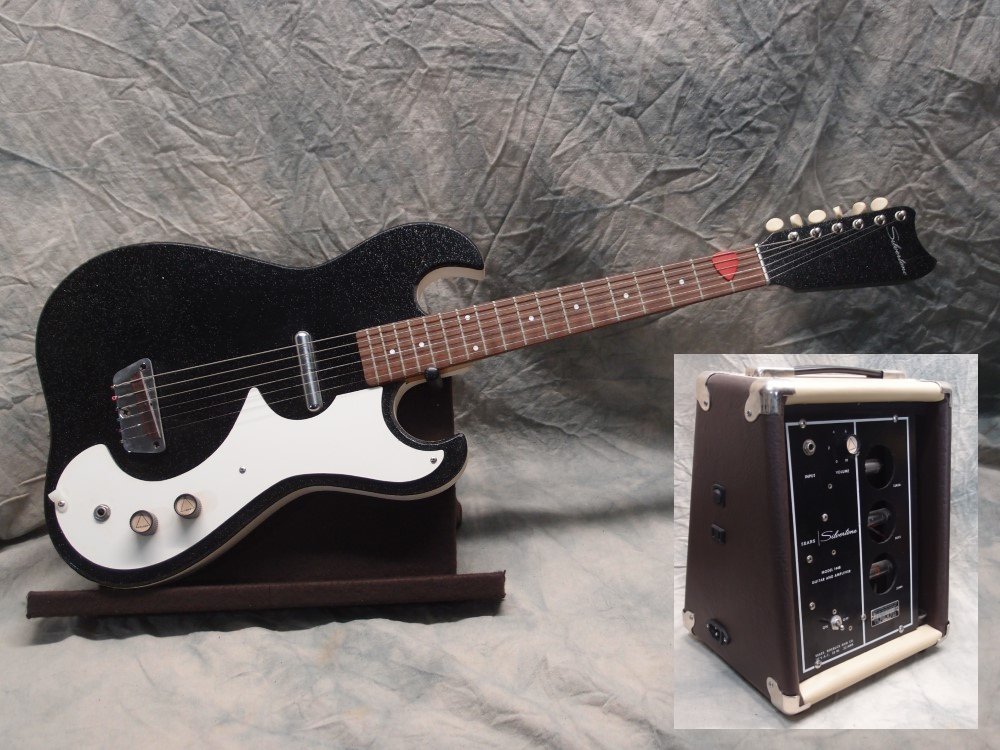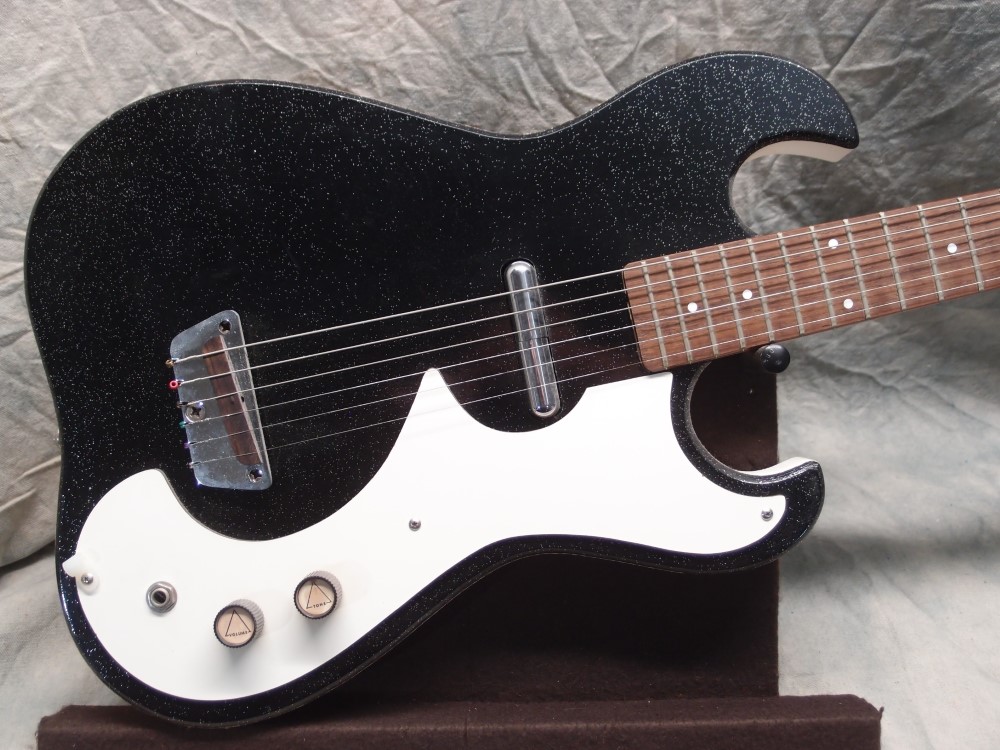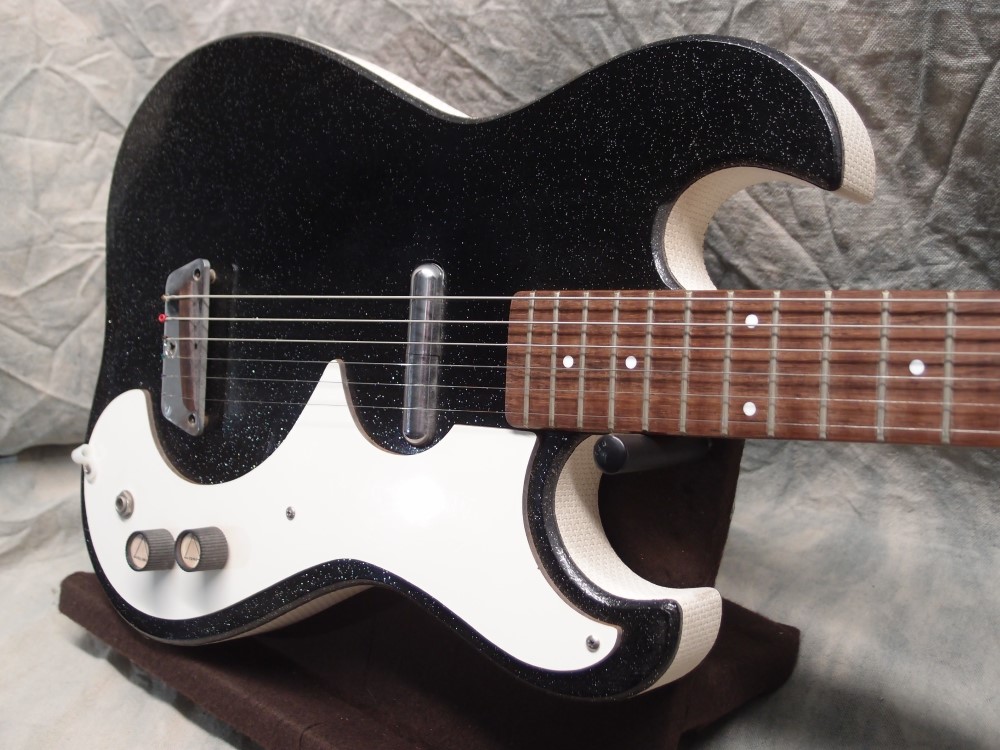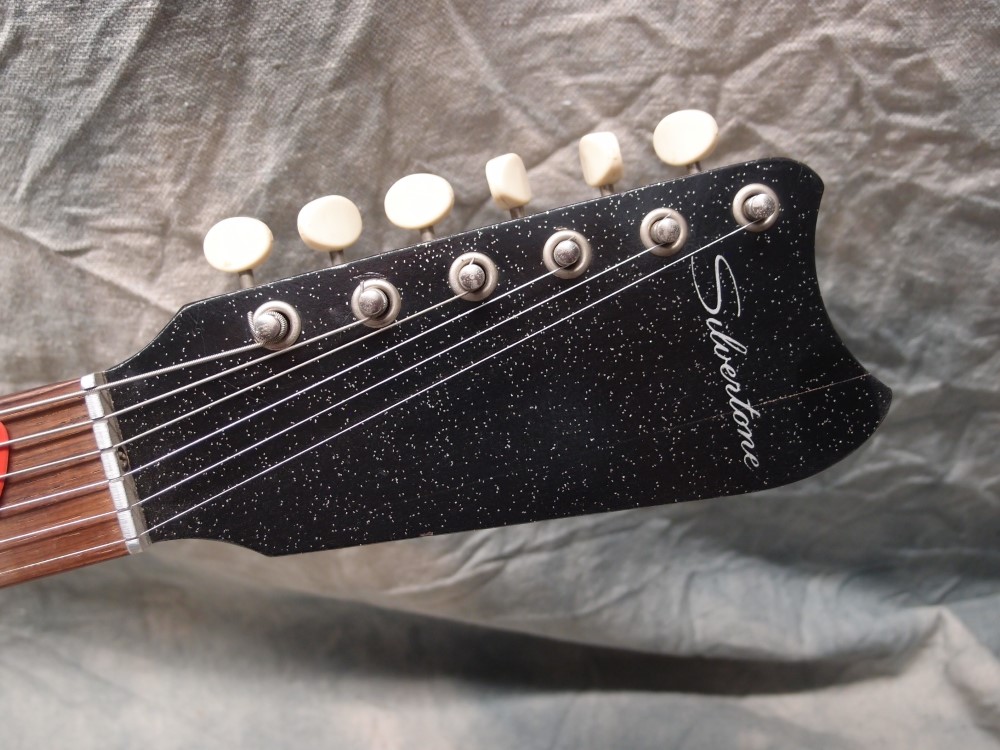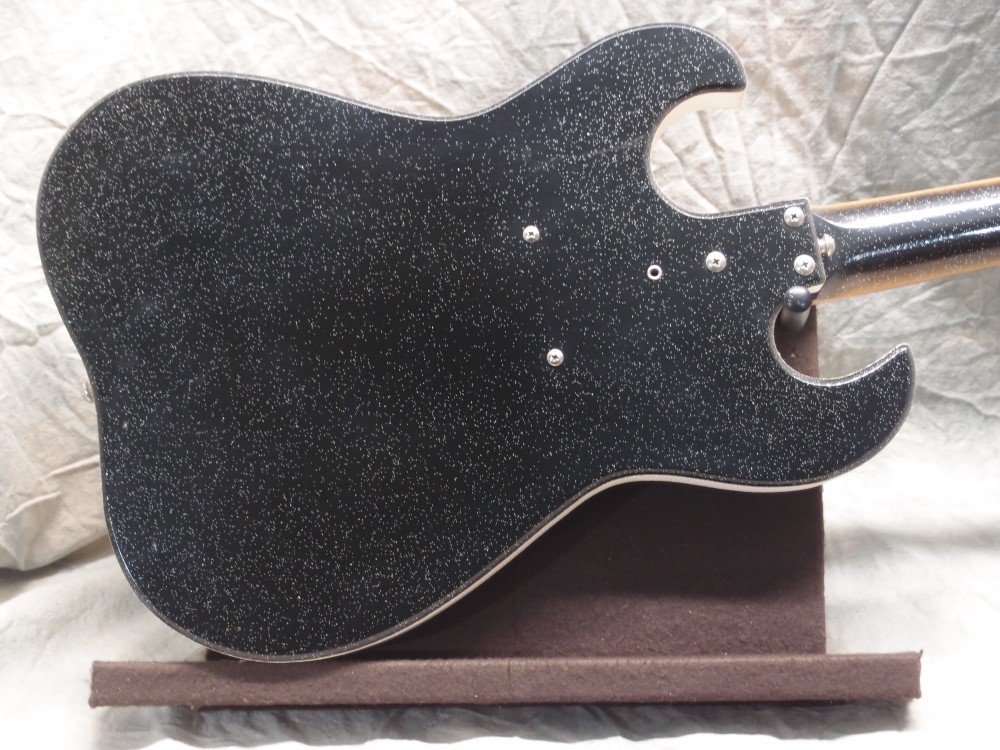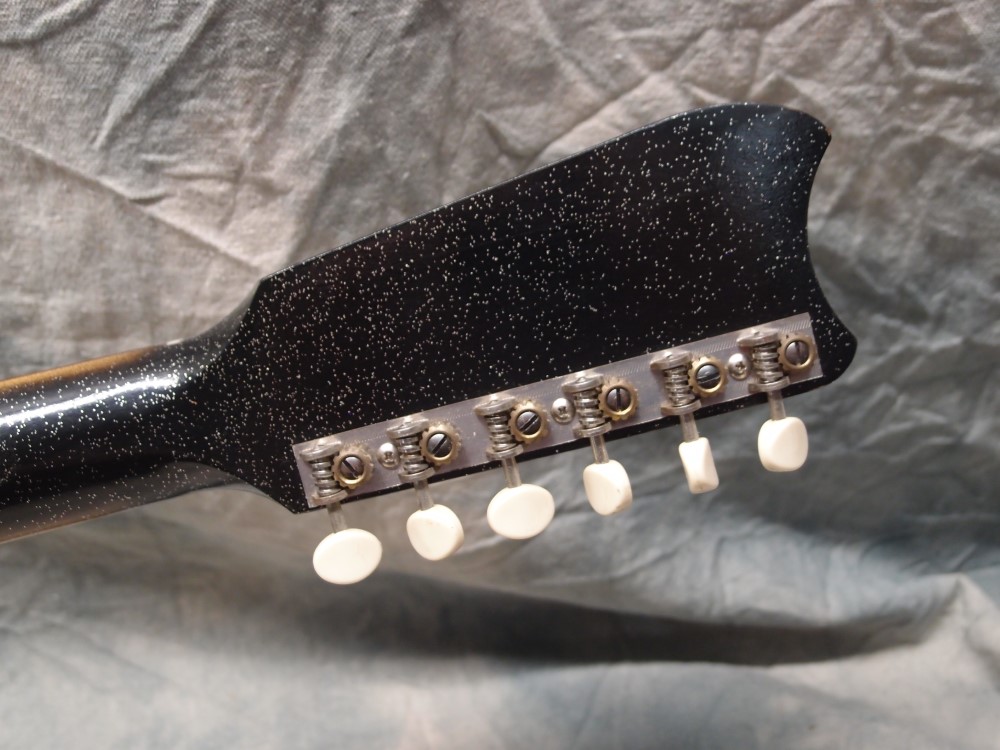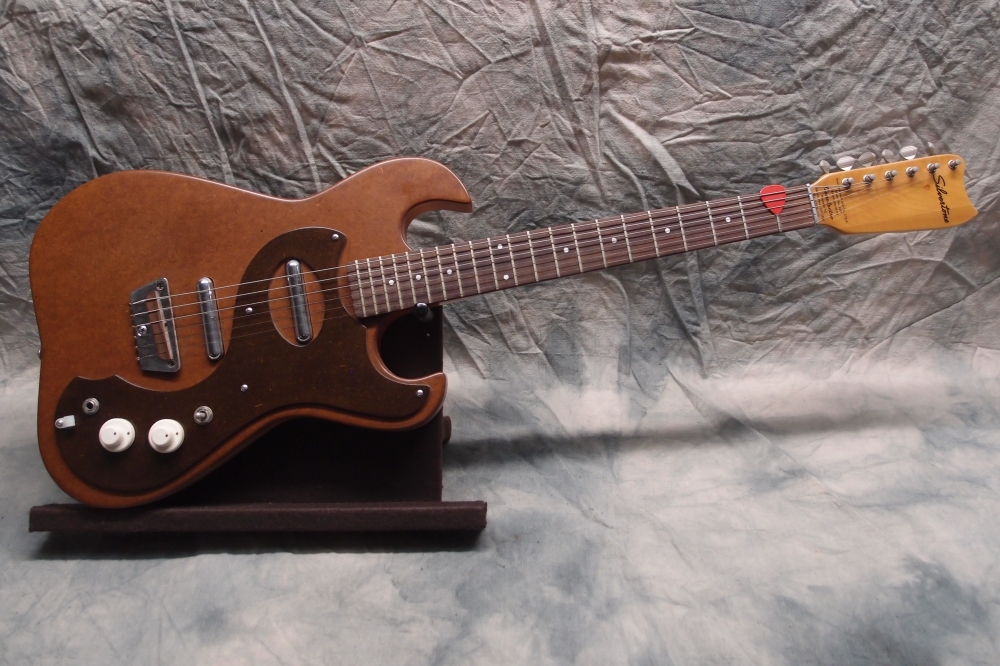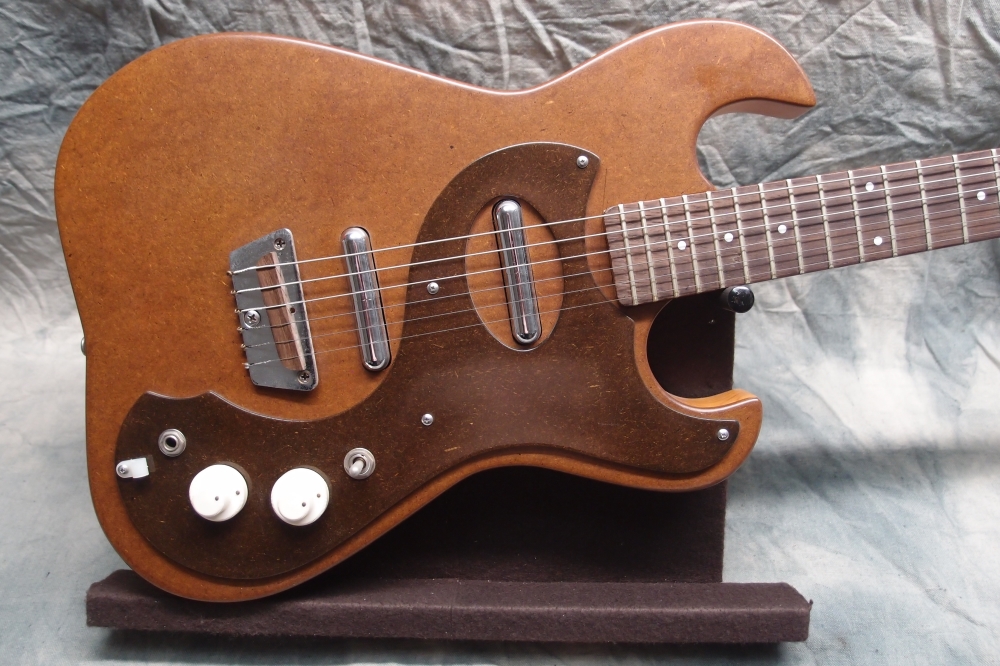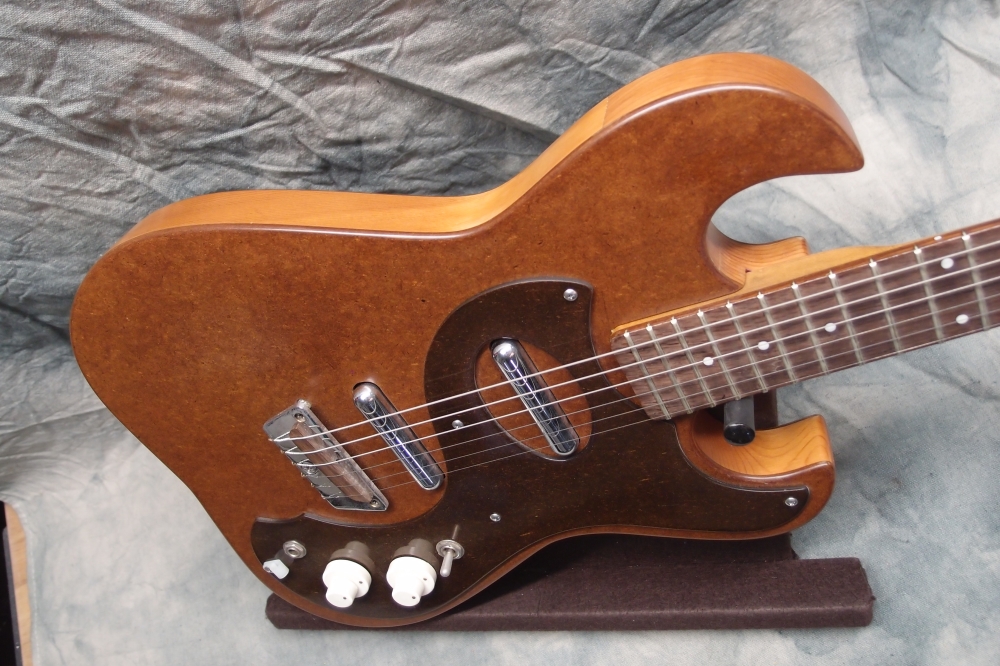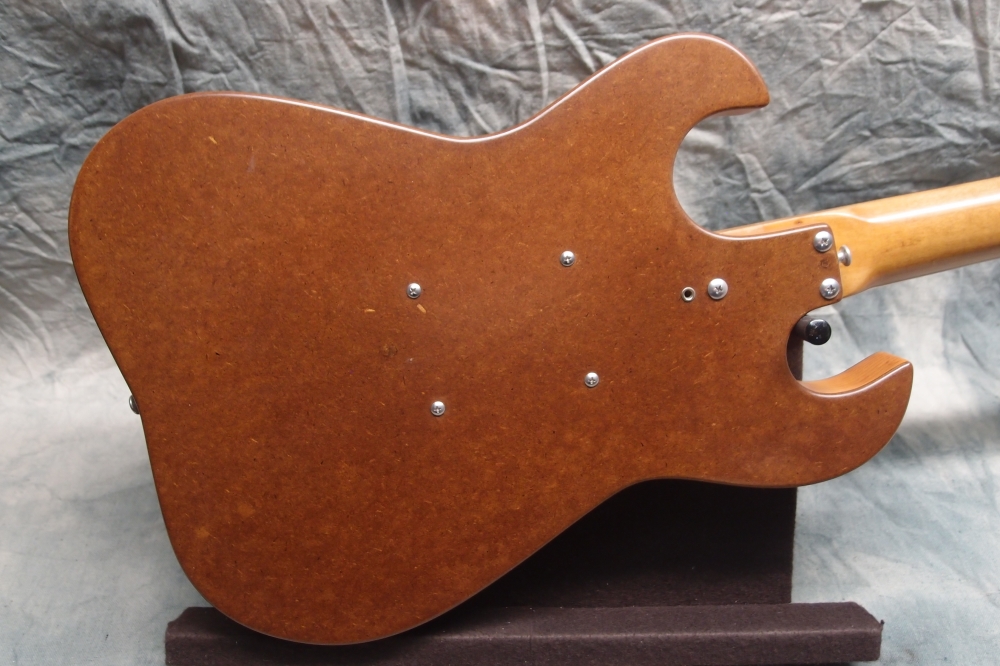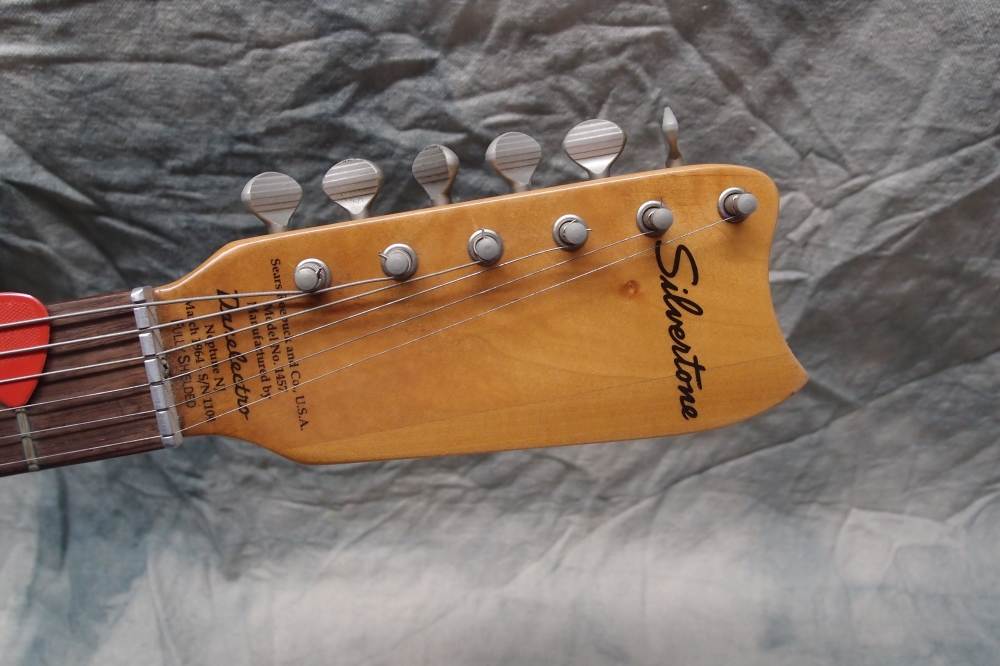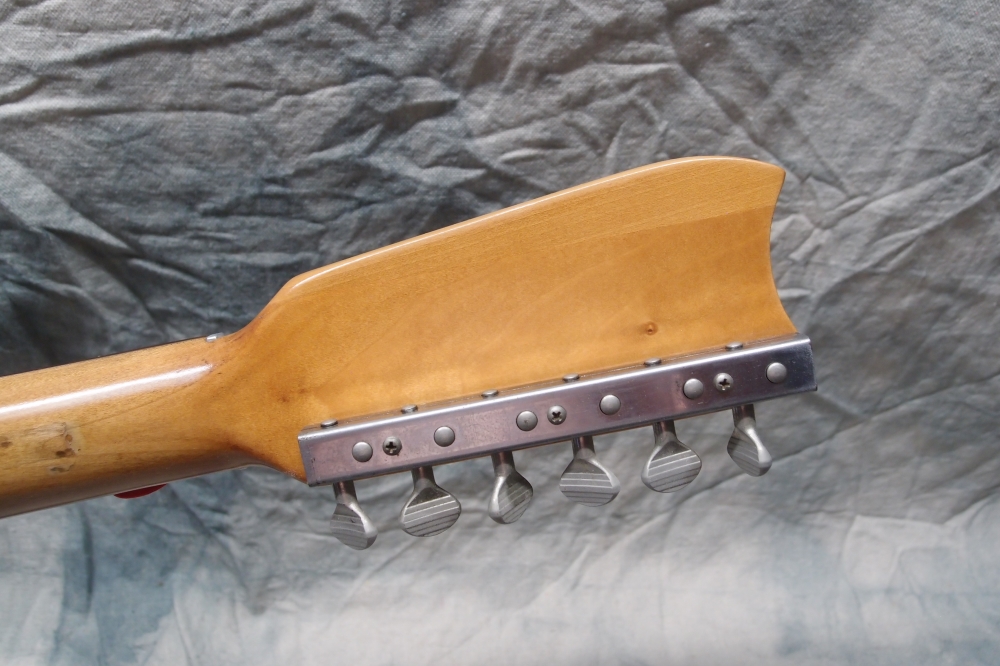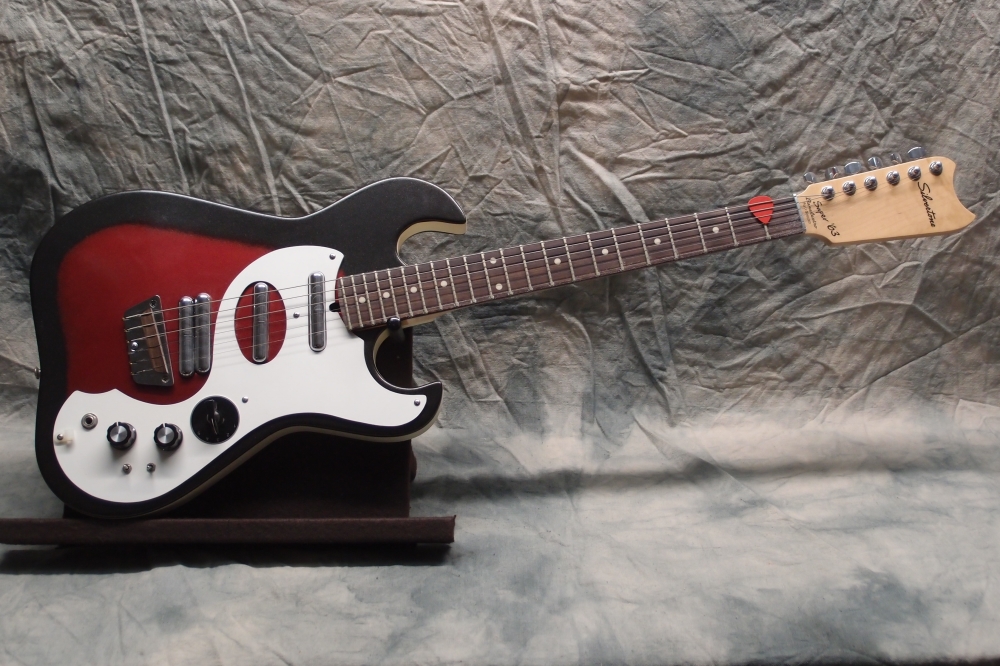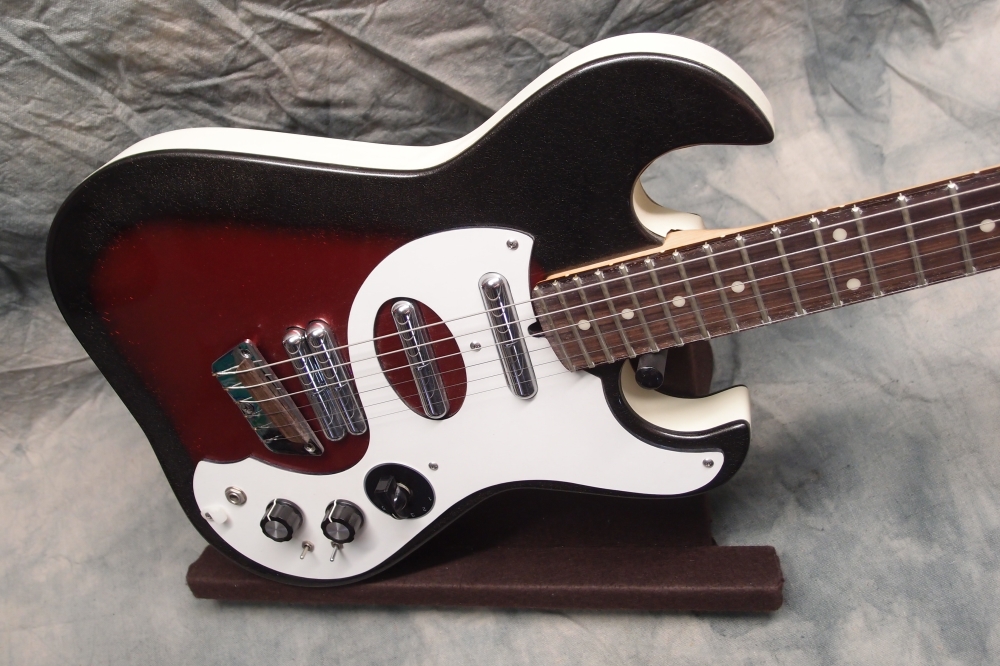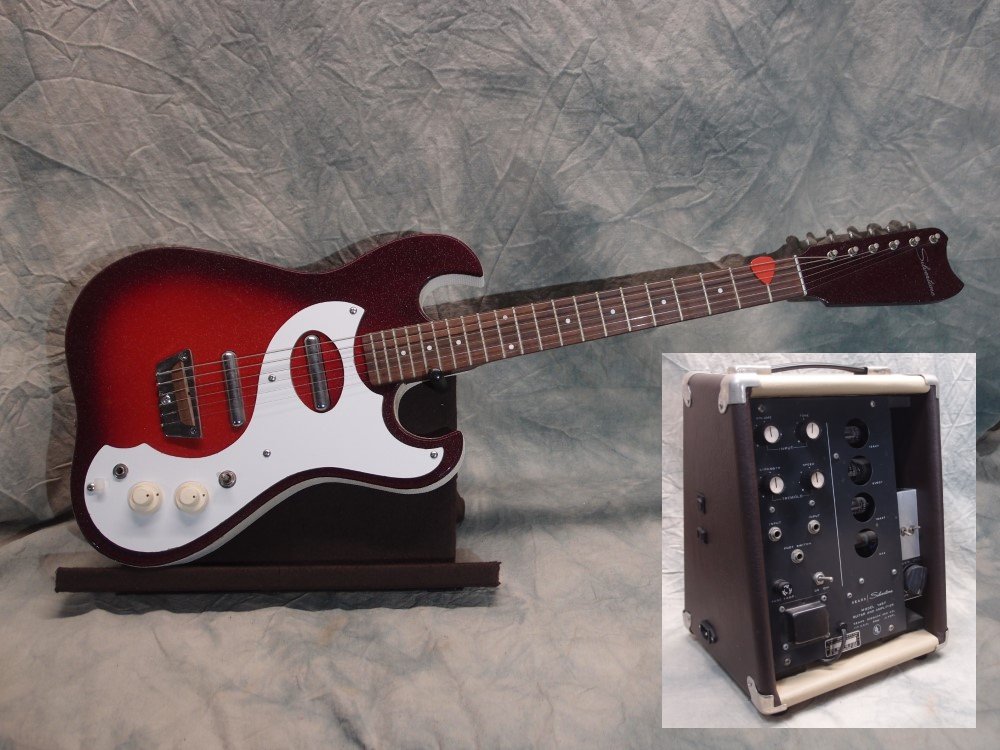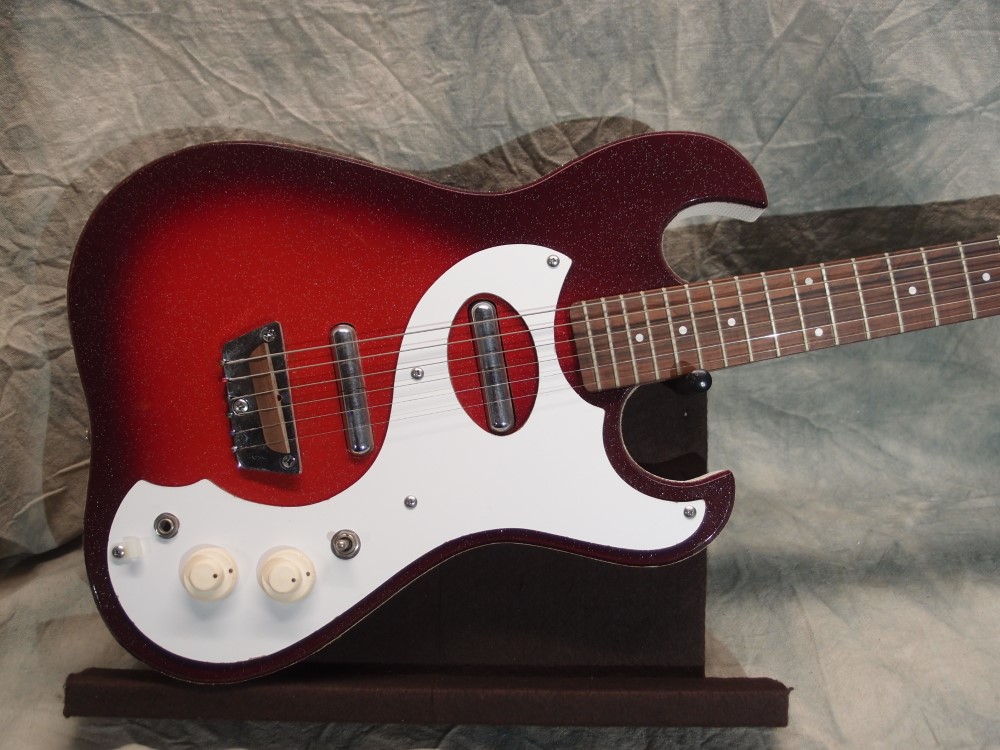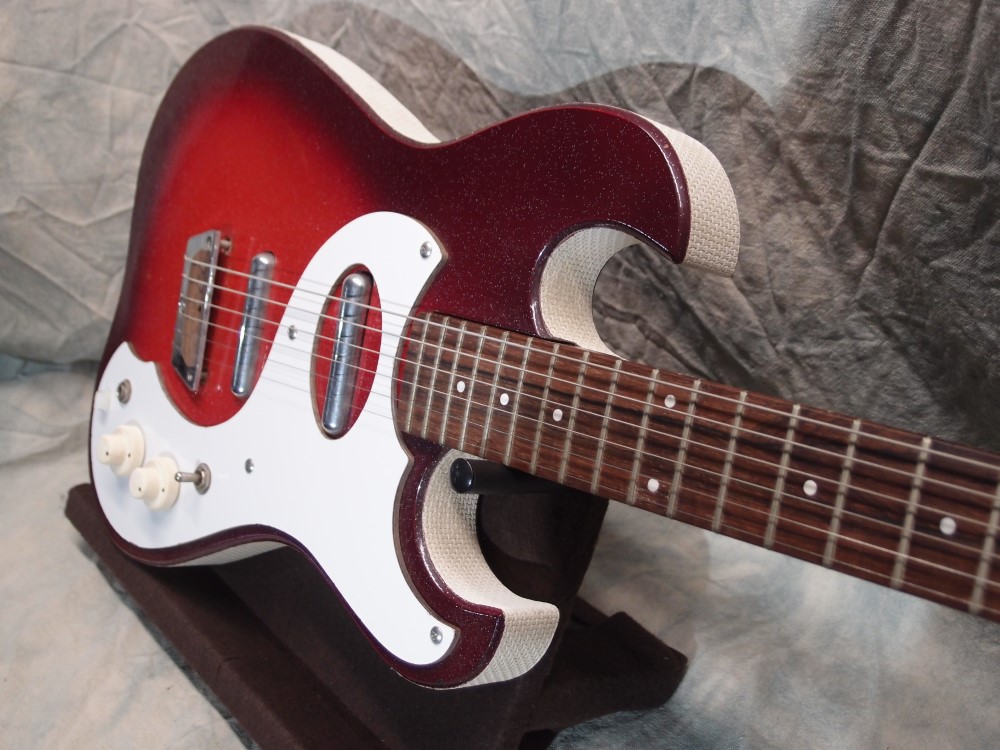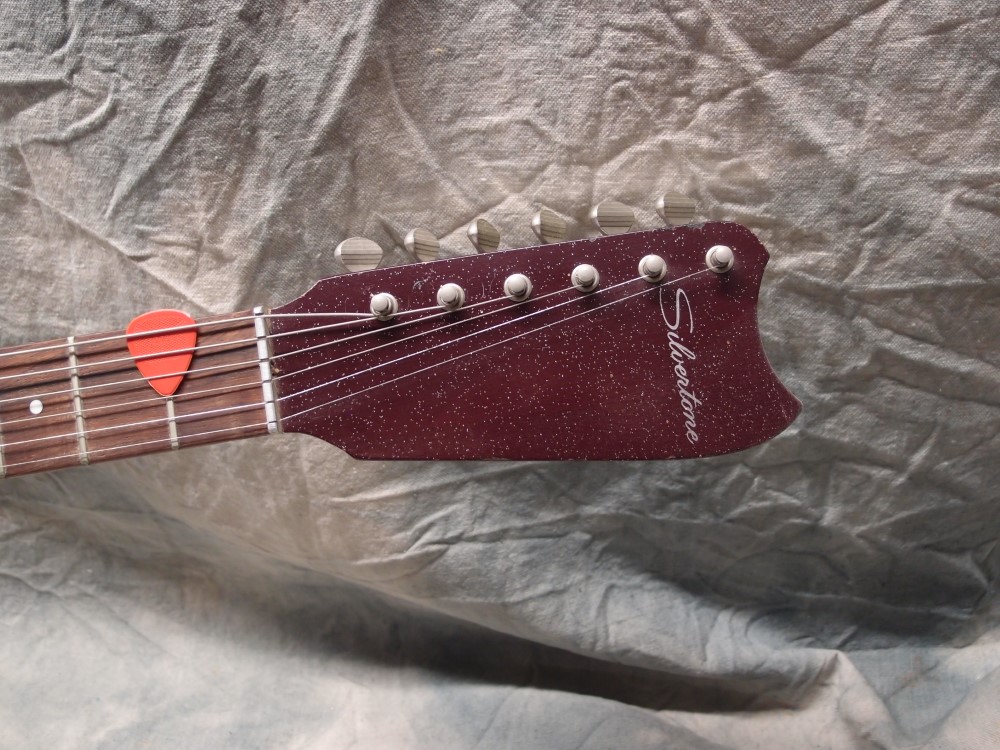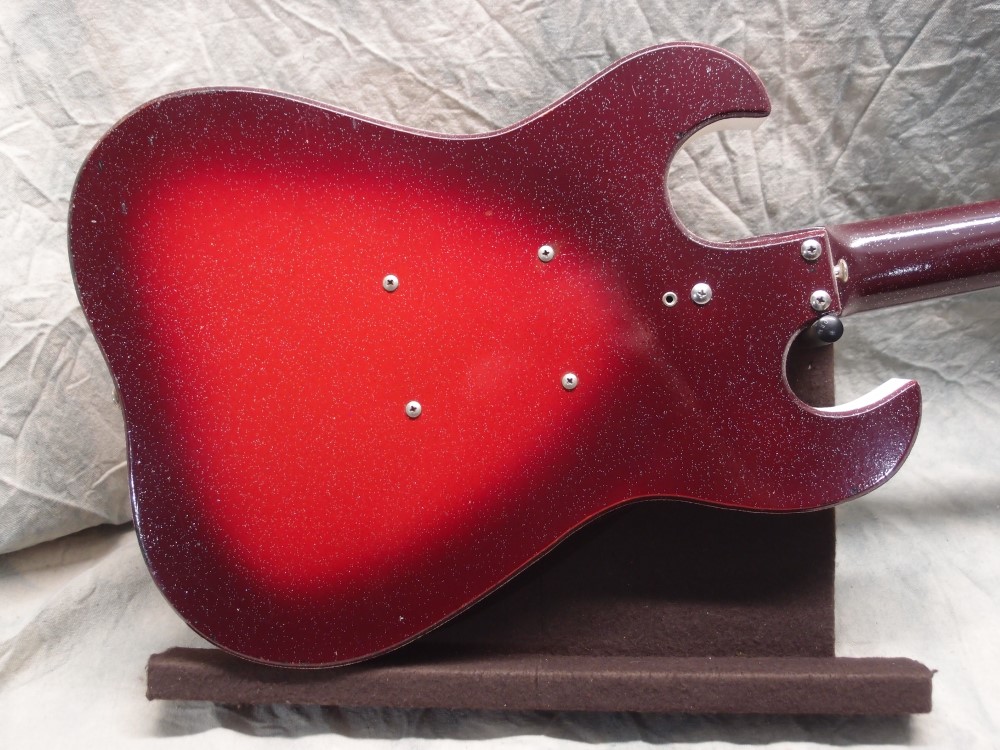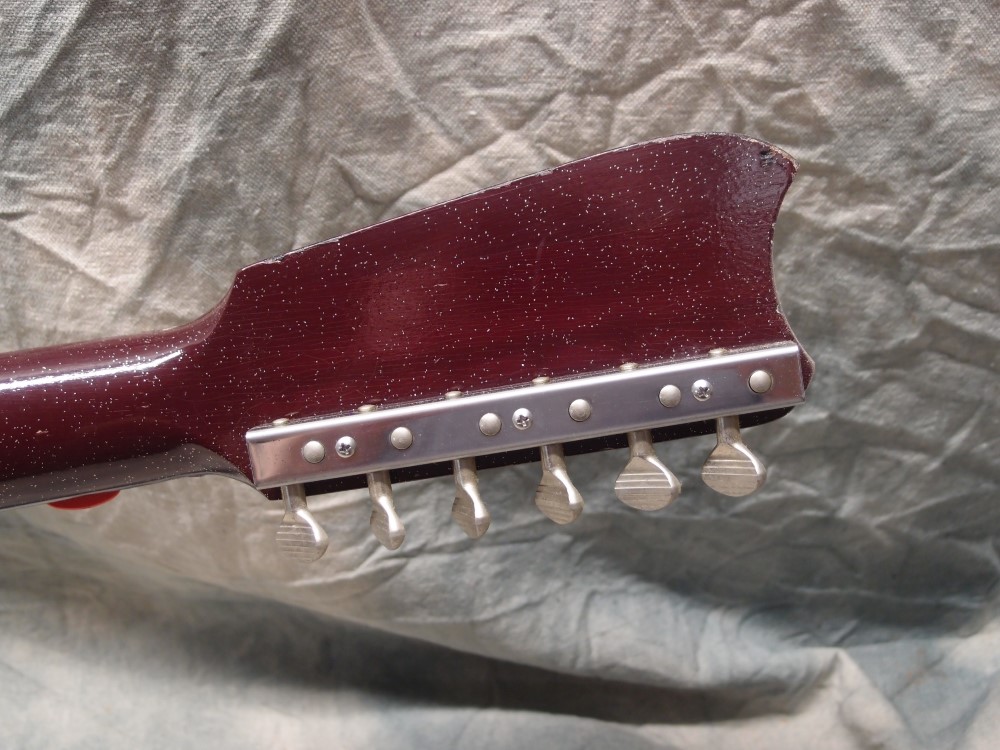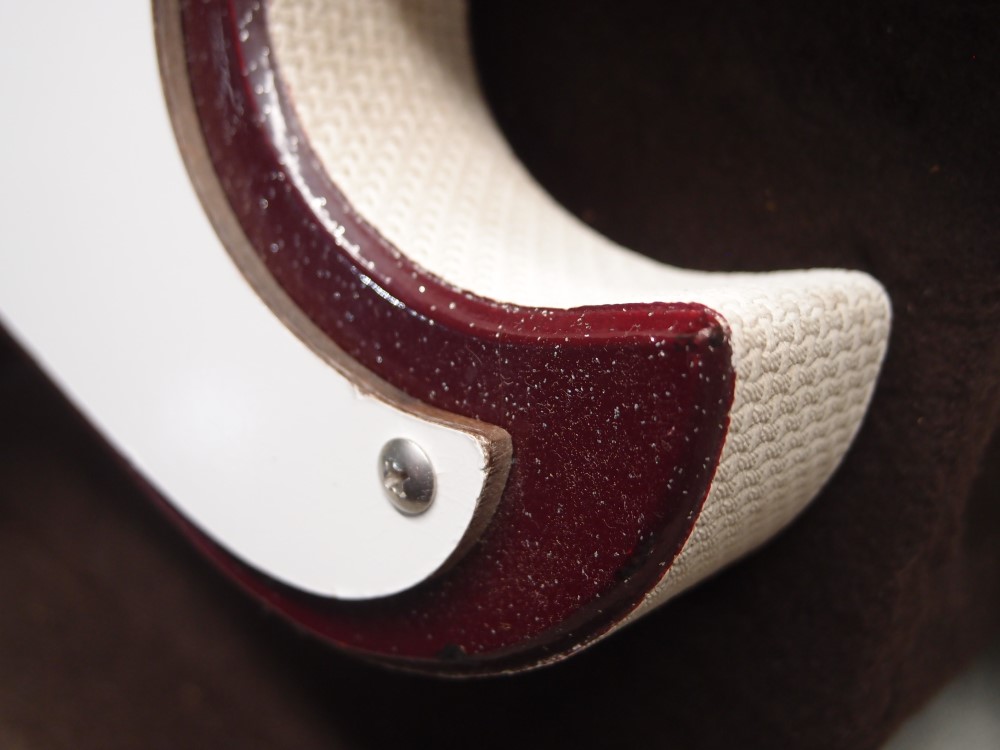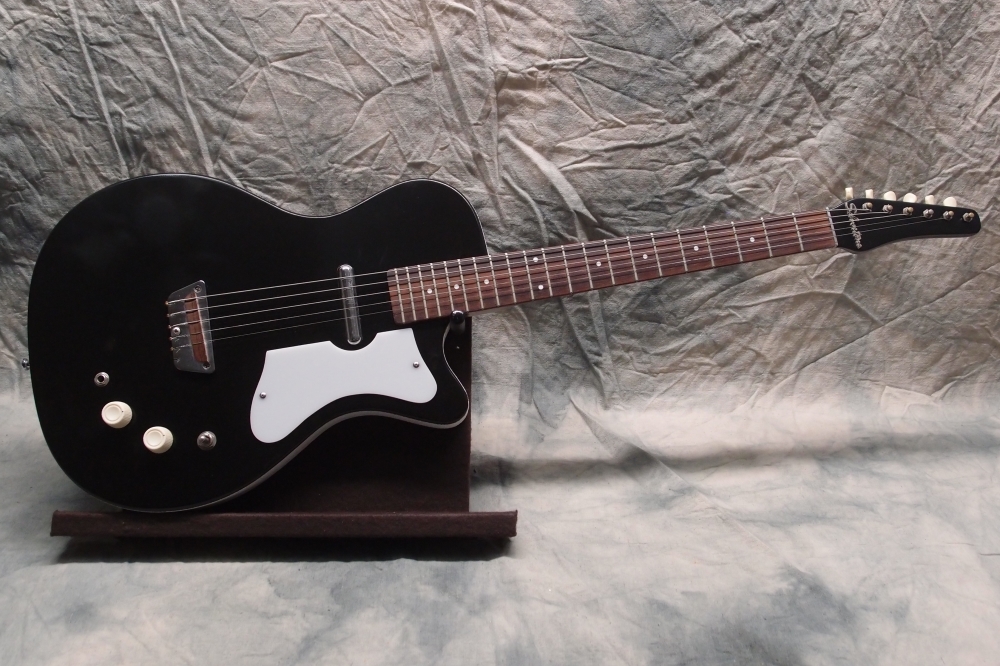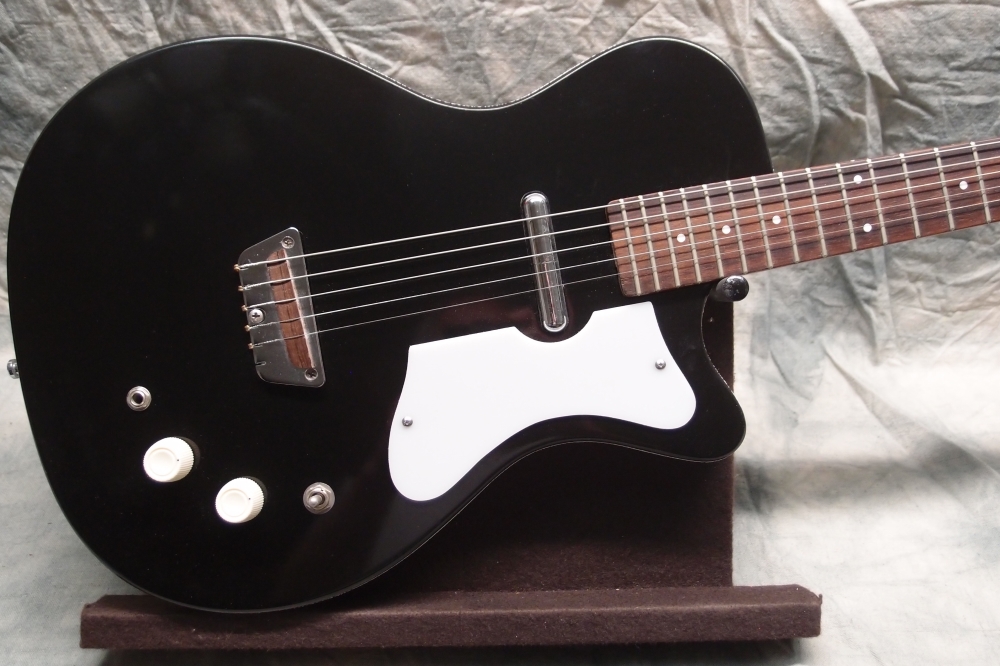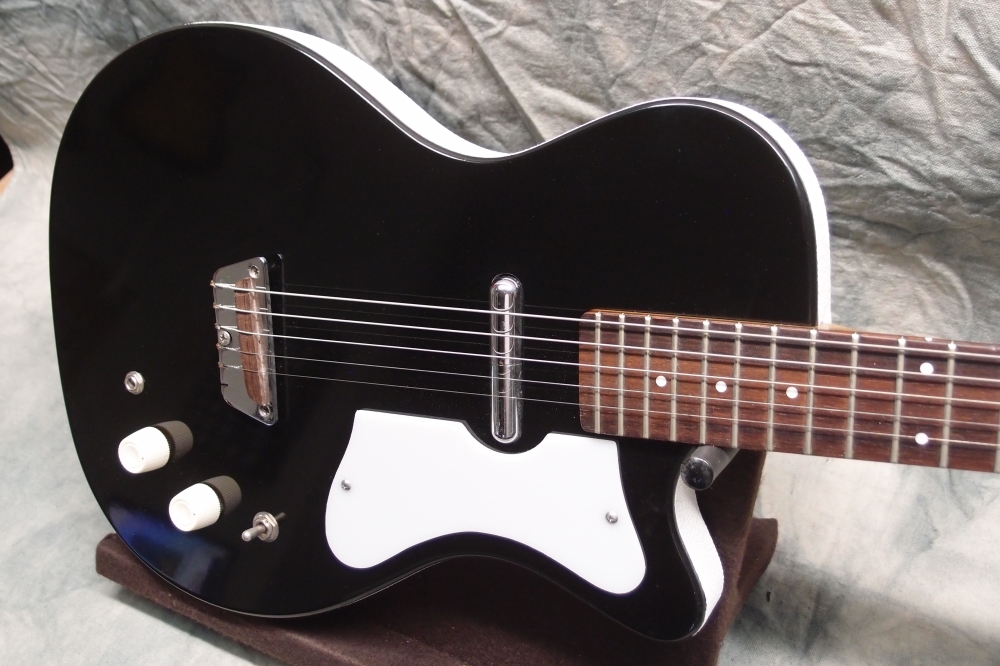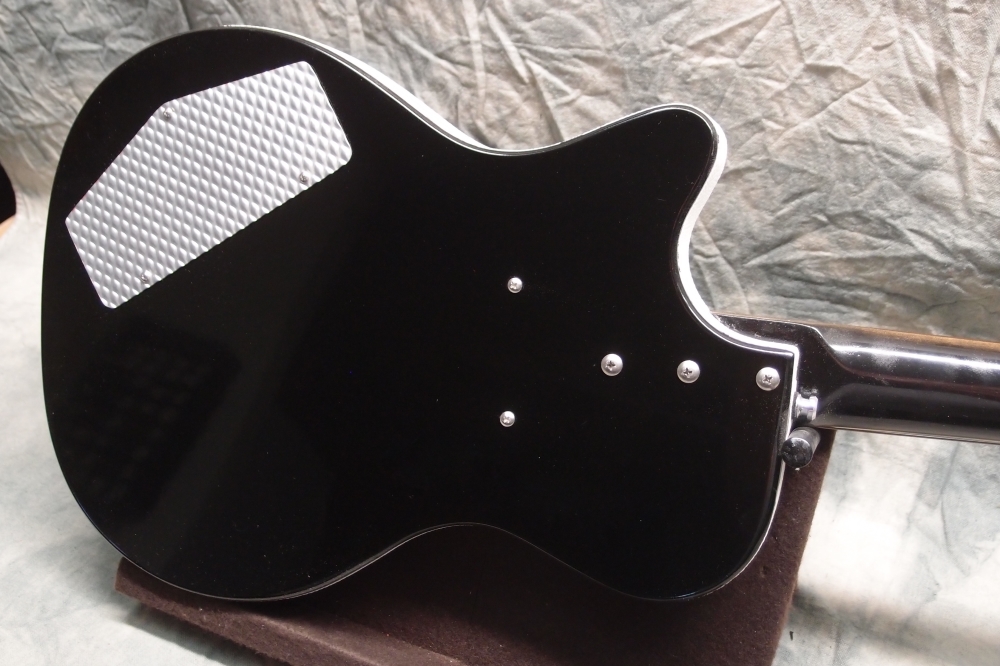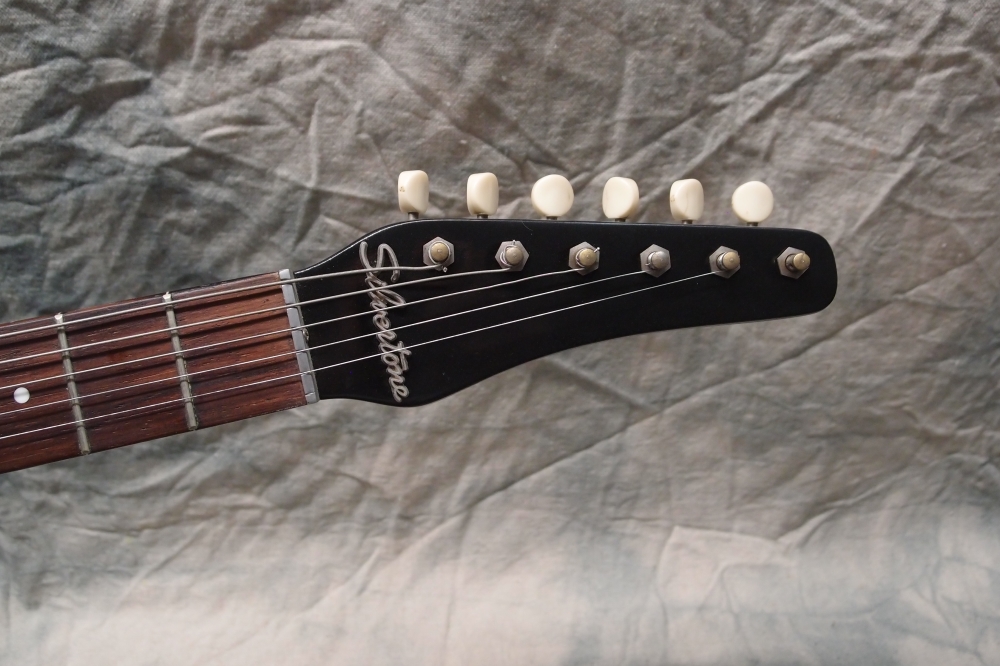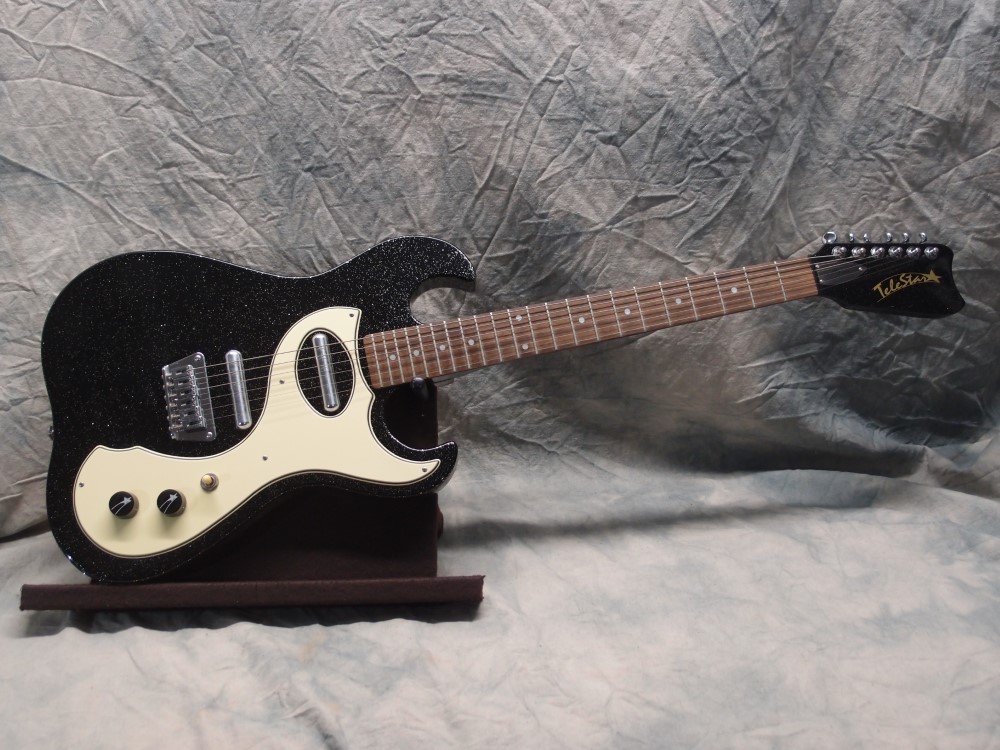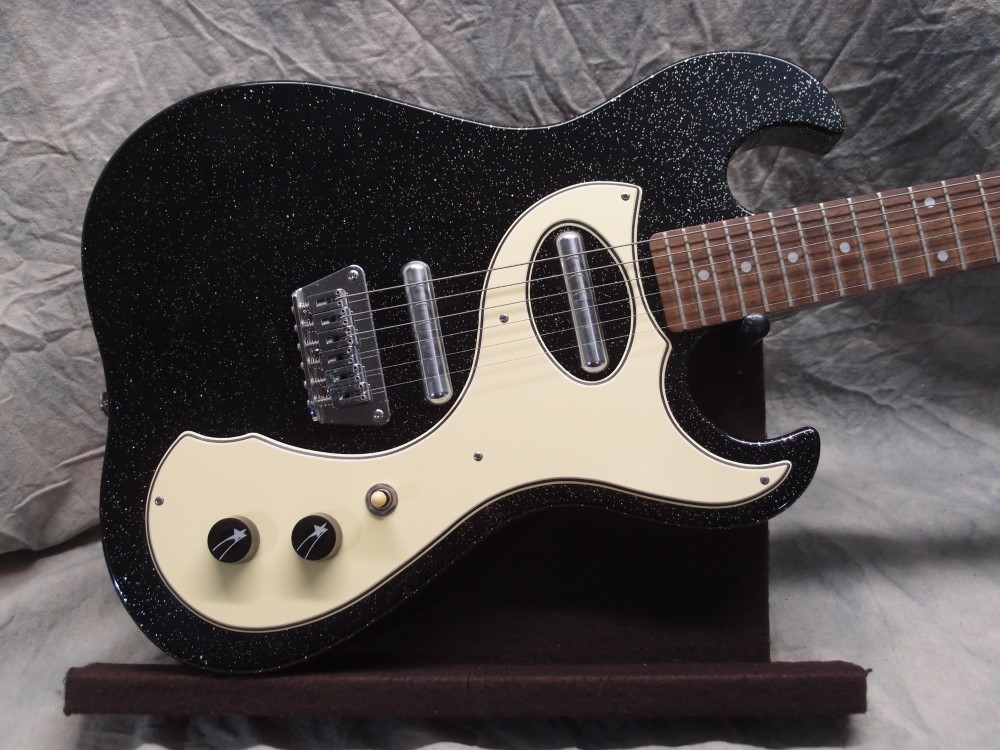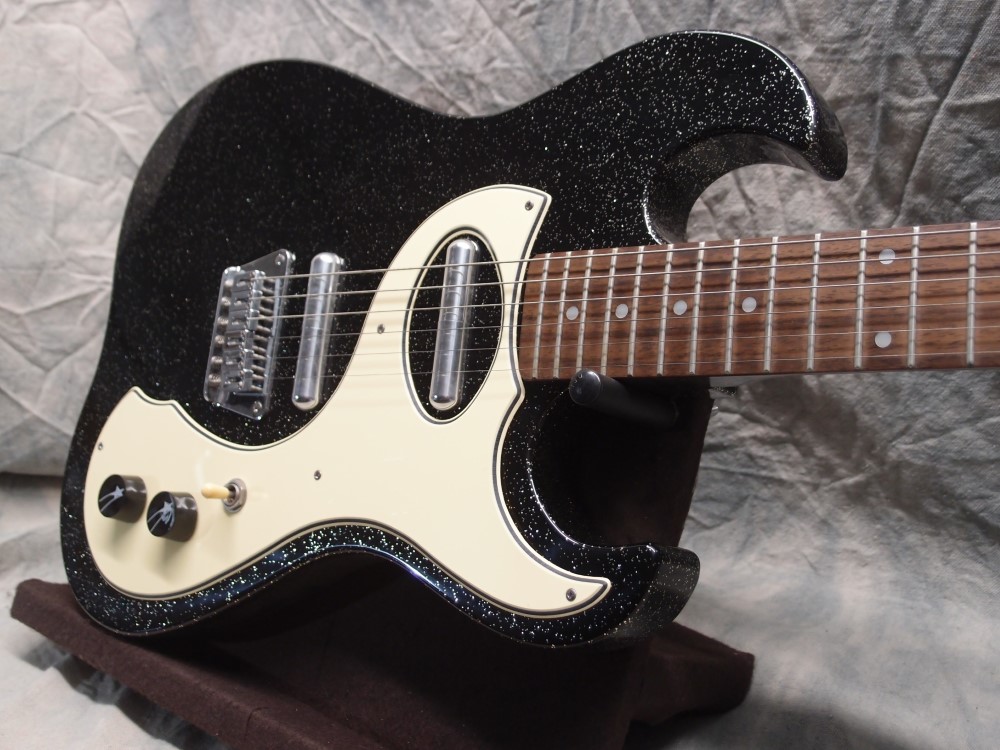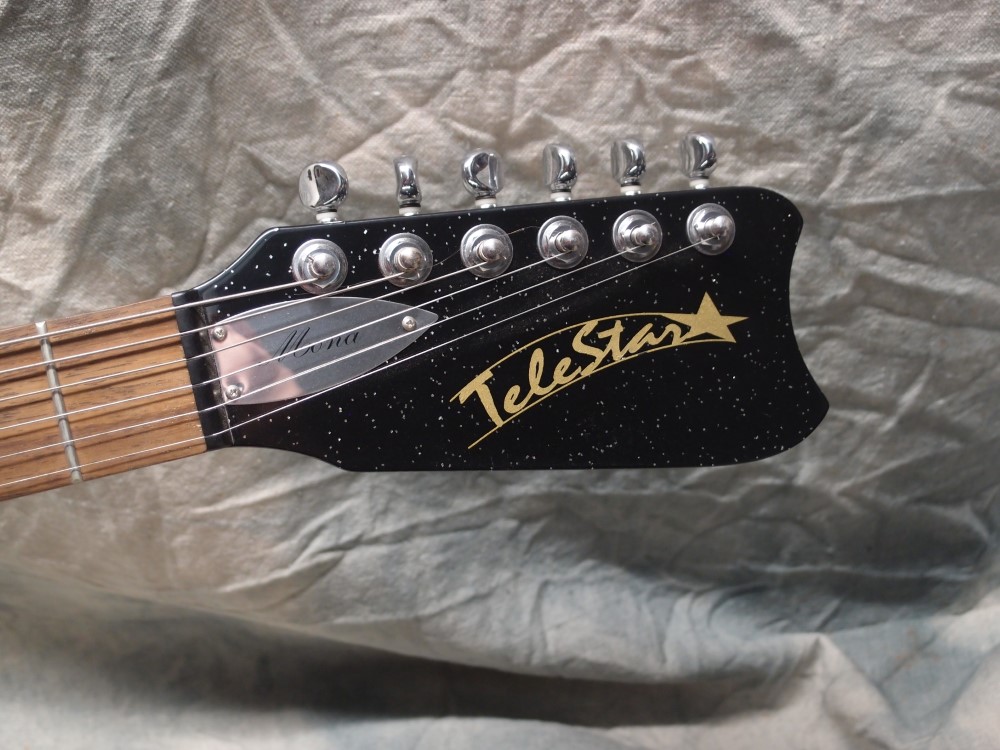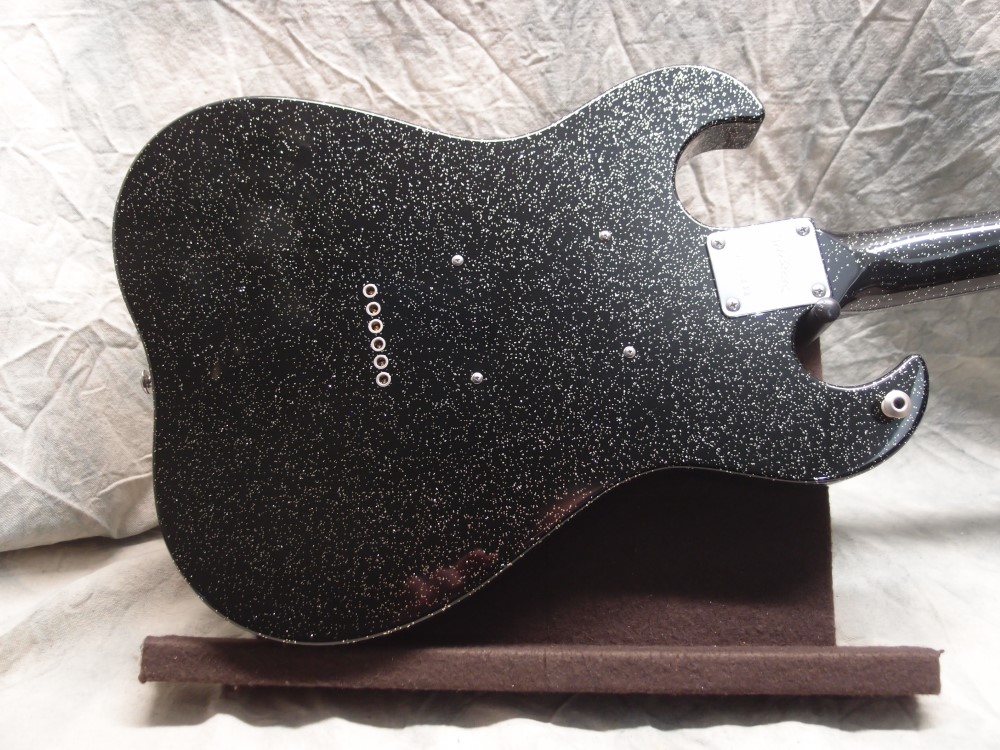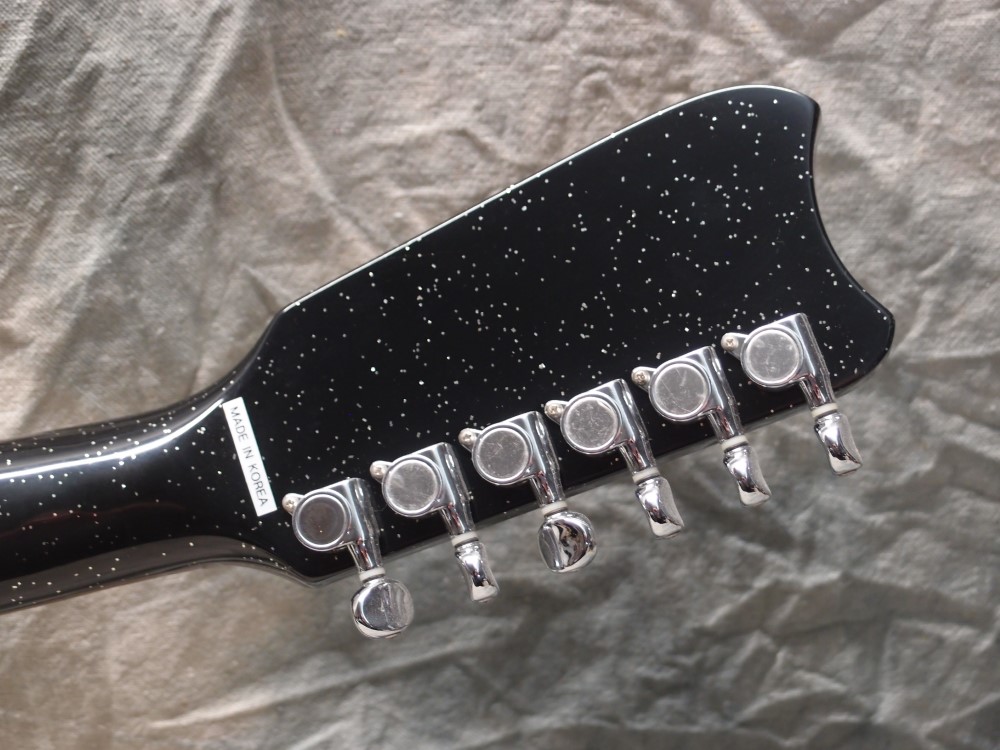Body - Hollow
Instruments with a significant internal air space.
- Audiovox 12-String Guitar
- Audiovox Danelectro-Style Bass
- Audiovox Fretless Bass
- Audiovox Mandolin
- Audiovox Uke Bass
- Brownsville Violin Bass
- Cowbell Bass Guitar
- Danelectro '63 (1457) Guitar
- Danelectro Companion Guitar
- Danelectro Longhorn Bass
- Danelectro Longhorn Guitar
- Danelectro Pro-1 Bass
- Danelectro Pro-1 Guitar
- Jazzmaster Bass 3
- Rickenbacker 325 Bass 1
- Rickenbacker 325 Bass 2
- Rickenbacker 325 Bass 3
- Rickenbacker 325 Guitar
- Rickenbacker 4001 Bass 1
- Silvertone 1448 Guitar & Amp
- Silvertone 1457 "Rescue" Guitar
- Silvertone 1457 "Super 63" Guitar
- Silvertone 1457 Guitar & Amp
- Silvertone U-1 "Dolphin" Guitar
- Telestar Mona




This twelver is a mashup of a number of different models. The body is Danelectro-style masonite over chambered plywood, with Tolex binding. The headstock is interleaved Rickenbacker, the bridge is more like a Gibson, while the overall style is my typical Audiovox.
More: Audiovox 12-String Guitar ...




This one is a body-twin to the 12-string, but with a 30" bass neck. Everything about it is Danelectro - lipstick pickups wired in series, stacked controls, masonite pickguard, Danelectro bridge. The body is masonite over chambered plywood, oil-based poly over pearl paint.
More: Audiovox Danelectro-Style Bass ...




This one is almost identical in construction to the Danelectro-style - masonite over chambered plywood body, masonite pickguard. The neck is purpleheart over maple, with plastic fret lines. The soundhole merely serves as a pickup mount, and the pickup was just insurance against never getting the intended piezo system to work. Eventually, I did get it to work, the piezo is incorporated in a modified bridge, and sounds great. 30" scale.
More: Audiovox Fretless Bass ...




This body is maple plywood over a hollow pine core, double-bound. It came out very lightweight, too light to balance even a guitar neck. This was originally going to be the 12-string, but I realized that it would never balance. So I shuffled parts and bodies between some other projects - a planned six-string got canceled and became the twelver. That left this body free. I thought about it a while and decided it would make a good mandolin.
More: Audiovox Mandolin ...




This bass is a 21" scale, with a piezo saddle mounted in an adjustable bridge. The soundhole is just for looks. The strings are metal-wound Kalas. The fretboard is cut out of the ugliest piece of wood I ever received. For such a small neck, I managed to cut around most of the ugly, and the result isn't half bad.
More: Audiovox Uke Bass ...




This is probably the cheapest violin bass on earth, and I got a discount on top of that because it had a persistent buzz that turned out to be a bad string. "Brownsville" is a house brand for Sam Ash, where I bought it on a whim. The scale is about 30.5". It's a beauty, isn't it?
More: Brownsville Violin Bass ...




This body style was originally reissued in a range of models - guitar, bass ( long and short scale ) and baritone. I only have the guitar. These were part of Danelectro's Chinese production, and while not bad, are not as nice as the prior or later Korean models. A second reissue in 2015 restored the gloss sparkly finish of the vintage original. None of the reissues use the original headstock shape, though.
More: Danelectro '63 (1457) Guitar ...




This was a box of junk I got on eBay, originally a vintage Convertible. I replaced the front and back with cabinet-grade birch plywood, as the original mother-of-countertop material is no longer available. I rebuilt it as something like a Companion, which is a very rare model. The neck and sides are vintage, the rest is modern.
More: Danelectro Companion Guitar ...




This is an Evets '90s-vintage original reissue, made in Korea. These reissues are actually much better instruments than the originals from the 1960s. While a copper-burst would be more authentic, I like the sky blue better. The newer reissues are even more true to the originals.
More: Danelectro Longhorn Bass ...




Another early build for me - 2010, a reissue Danelectro neck on a built body. The finish is pearl automotive acrylic lacquer. The pickguard is actually clear with a piece of paper under it.
More: Danelectro Longhorn Guitar ...




The body was traced directly off the guitar, finished in very dark brown poly with tan Tolex. The neck is a reissue that has lain around for years. The bridge was originally left-handed, a few minutes with a file and it was right-handed. The double lipstick is switchable series/parallel/single-coil, for some variety. This is my first dry-erase pickguard.
More: Danelectro Pro-1 Bass ...




This is a factory guitar, but I have modified it enough that I guess I can call it a project. This is a reissue produced by Evets around 2007. This was not a high point for Evets quality, they had shifted production from Korea to China, and it showed. The reissues from the '90s are Korean-made, and quite nice, and this guitar is not in the same class. That said, it's not terrible either, but there's quite a bit to go into. Evets eventually shifted production back to Korea, and the quality went back up.
More: Danelectro Pro-1 Guitar ...




Hollow plywood body with Mighty Mite 34" neck. Graphtech Ghost piezo saddles with a backup soundhole-mounted magnetic pickup, active electronics.
More: Jazzmaster Bass 3 ...




These were my first two tries at a 325 bass. Both are plywood over pine hollow-bodies. The one on the left - #1 - used an experimental neck mounting that I didn't like. The one on the right - #2 - suffered a router mishap. I took all the good parts and built the solid-body, and both of these spent years on the scrap heap.
More: Rickenbacker 325 Bass 1 ...




These were my first two tries at a 325 bass. Both are plywood over pine hollow-bodies. The one on the left - #1 - used an experimental neck mounting that I didn't like. The one on the right - #2 - suffered a router mishap. I took all the good parts and built the solid-body, and both of these bodies spent years on the scrap heap.
More: Rickenbacker 325 Bass 2 ...




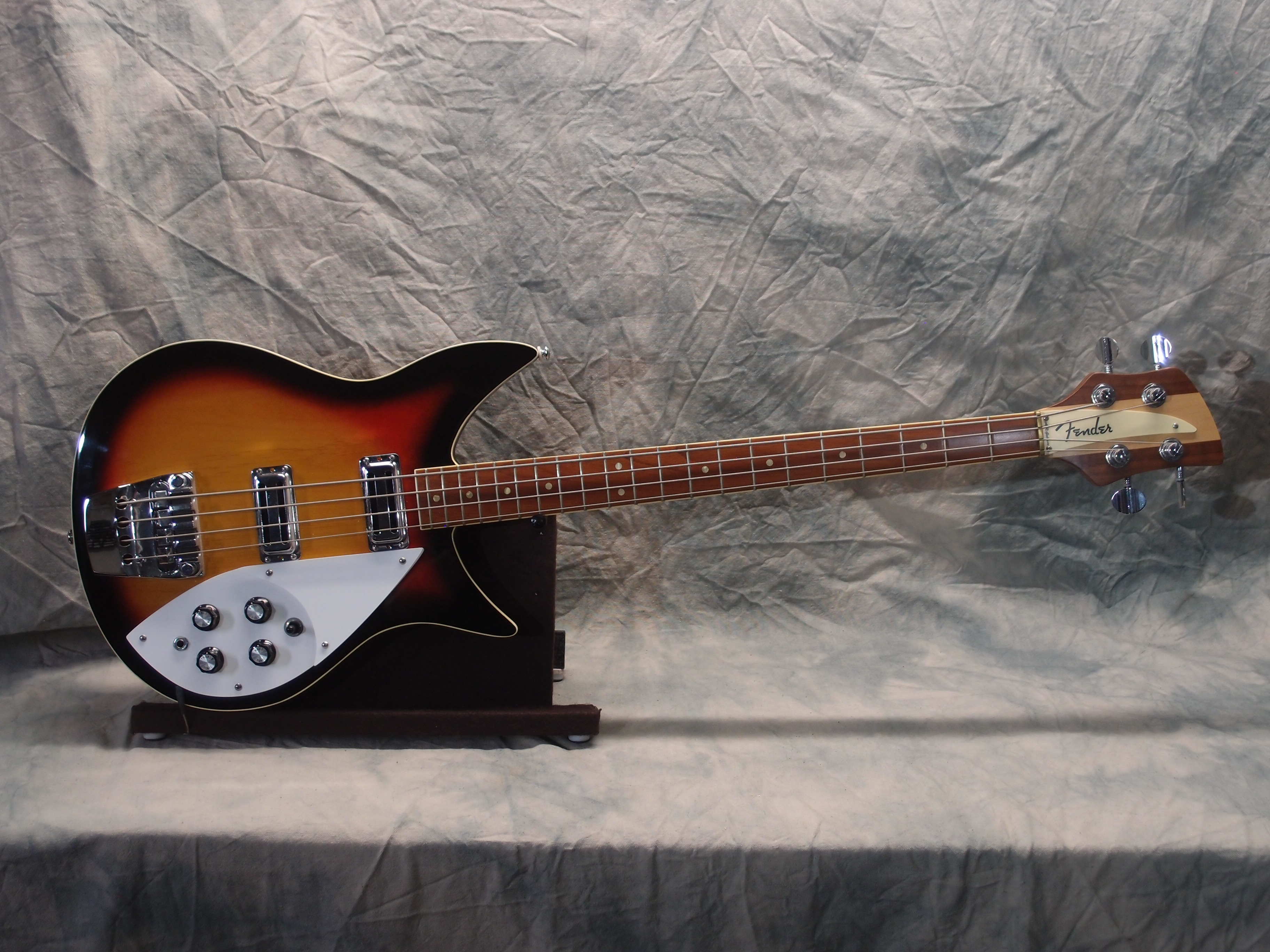
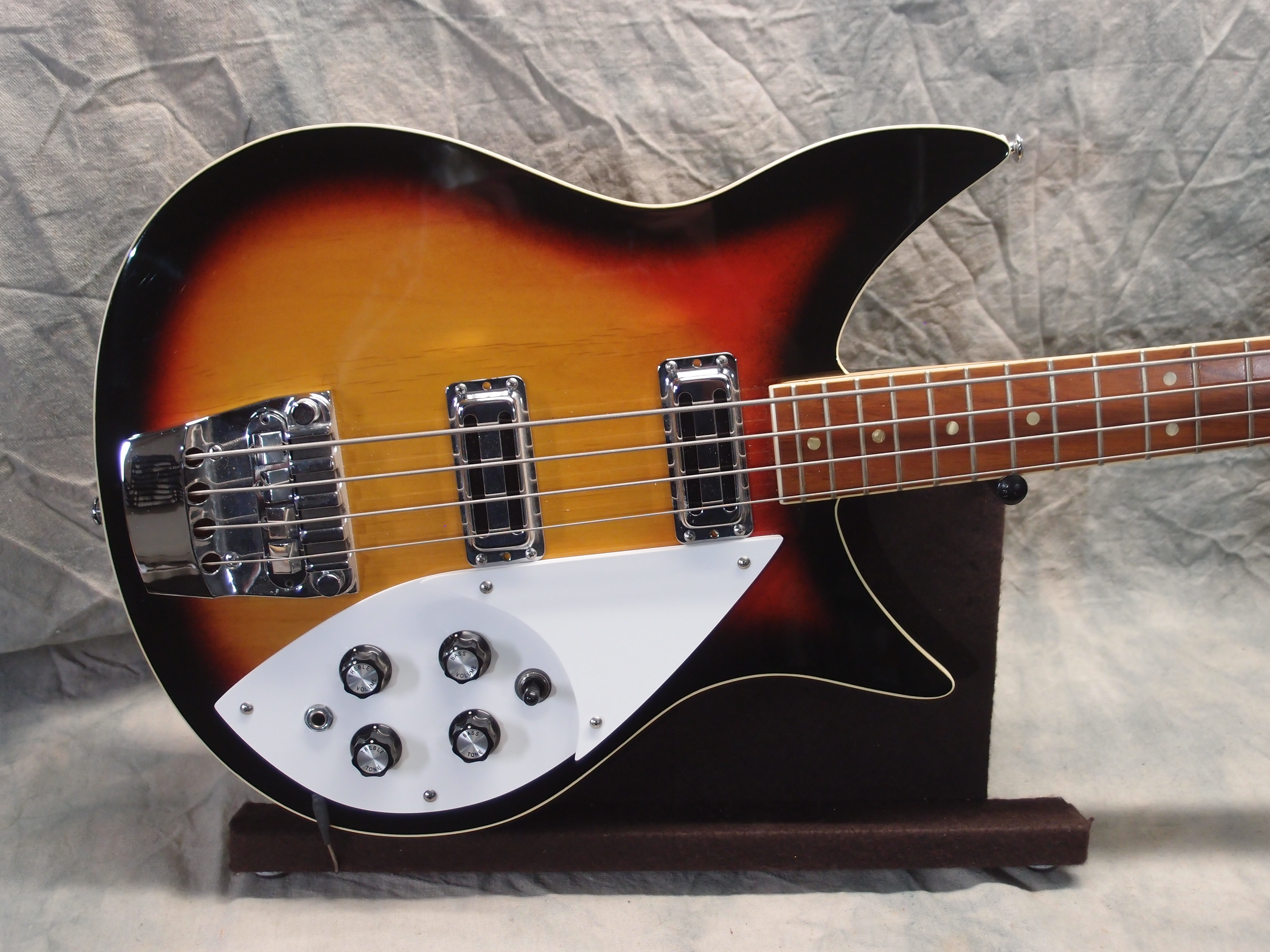
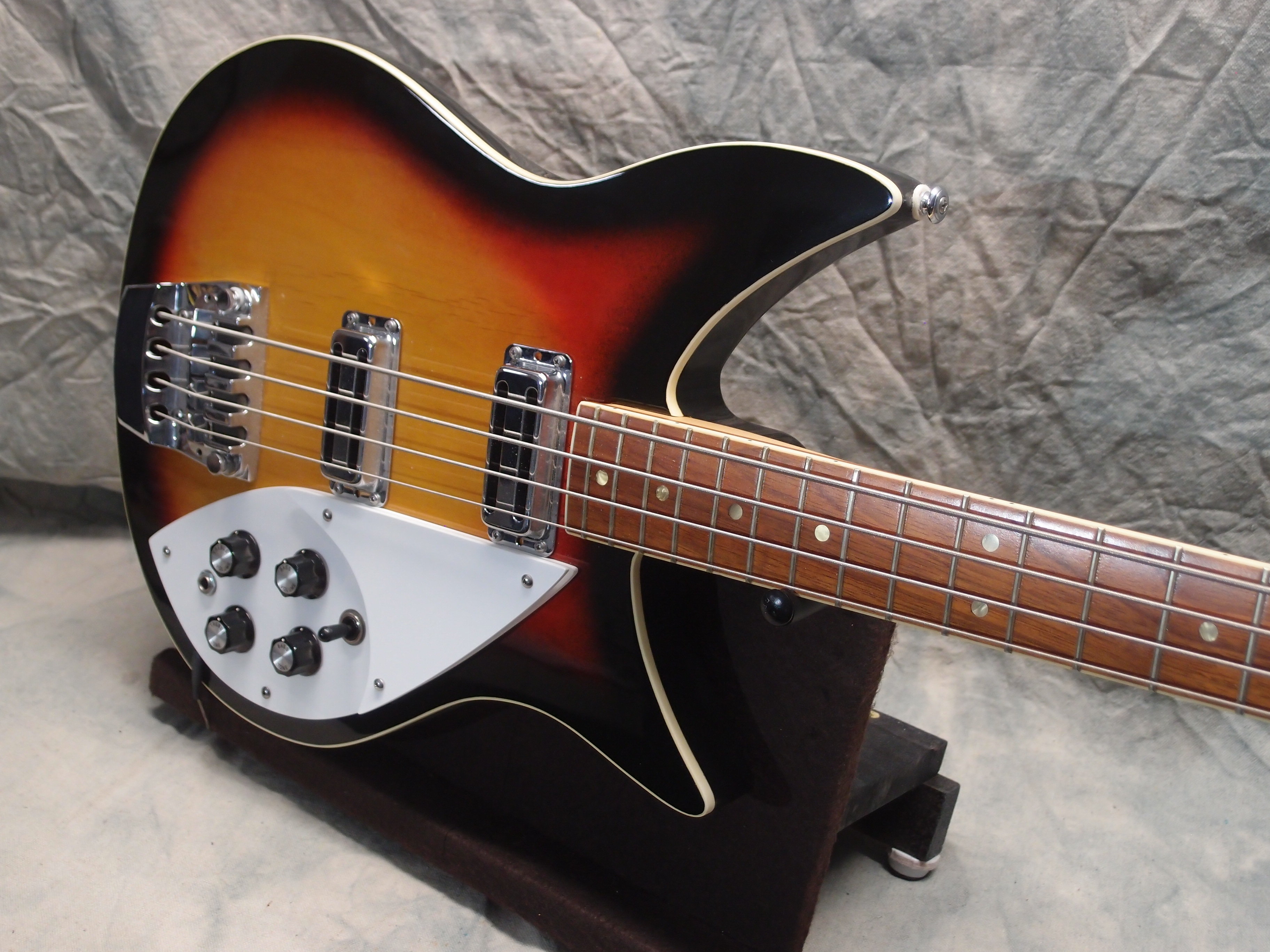
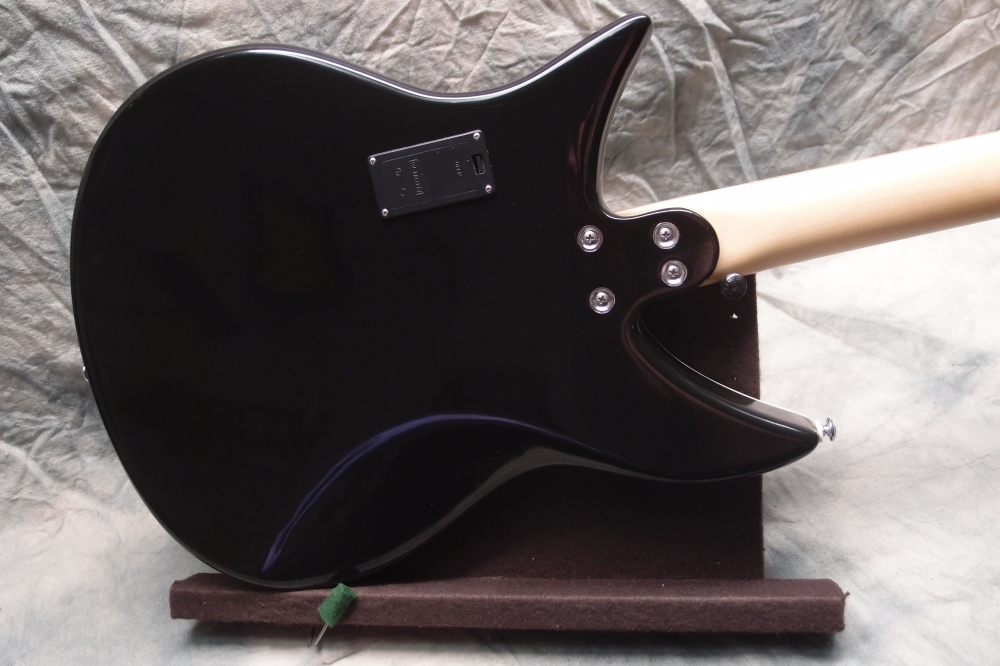

This was my third go at a 325 bass. The first one was unbalanced with this long neck, and the second suffered a router mishap. Eventually, I salvaged both of those, but first I took all the good parts and did this. Fender-type alder body with 3-tone sunburst, single binding. Surface-mounted pickups, active electronics. Finished entirely in polyurethane.
More: Rickenbacker 325 Bass 3 ...




A faithful reproduction of John Lennon's Rickenbacker, but built as a Danelectro. Masonite over hollow plywood body. Poplar neck. Passive electronics with active distortion on the fifth knob.
More: Rickenbacker 325 Guitar ...




This one is kind of a joke and an experiment in just how cheap you can build a guitar. The body is dry-erase board over plywood - no finish - with Tolex side binding. Dry-erase board is Masonite covered with Melamine. The neck is 100% Radiata pine, even the fretboard. The "inlays" are glitter and CA glue. The pickguard is the other side of the dry-erase board - 'chalkboard'. The pickup mount is a 57 cent switch plate.
More: Rickenbacker 4001 Bass 1 ...




This is another factory guitar, vintage 1960s, made by Danelectro and sold exclusively through Sears. The 1448 was one of the cheapest electric guitars in the Sears catalog, but it came with something special - it's own amplifier built into the hardshell case. There is almost no wear on this guitar, I don't think it was played much.
More: Silvertone 1448 Guitar & Amp ...




This is a real Danelectro Silvertone 1452 from the 1960s. When I got it, it was a sad box of parts. Some hillbilly had stripped it, by rubbing it on the sidewalk, I think. The fretboard had delaminated, and the old repair had simply made the problem permanent. I repaired the neck and fixed all the other issues, replaced the lipstick tubes, which had split, and clear-coated the whole thing in modern poly. I was not able to fully repair the neck, there's just not enough wood left, so I don't keep it under tension. The pickguard is stained dark for contrast. I cleaned tarnish off the old metal bits with oven cleaner, and replaced all the corroded fasteners with shiny new stainless ones.
More: Silvertone 1457 "Rescue" Guitar ...




This is the very first guitar I ever built, a hot-rodded version of the old Silvertone 1457. This guitar uses every passive wiring trick in the book. Four - count 'em - four lipstick pickups, wired in series. Six-way pickup selector, and two phase switches. The neck is from AllParts, I paid way too much for it. The finish is glittery acrylic lacquer from the auto parts store. The knobs are from Radio Shack - remember them?
More: Silvertone 1457 "Super 63" Guitar ...




This is the big brother to the Silvertone 1448, vintage 1964-67. Construction is basically the same, but with a full-scale neck, two pickups, and a much better amp. For a lot of details, see the 1448 page. This guitar is in excellent condition for being almost sixty years old, and apart from cleaning and re-stringing, it needed nothing.
More: Silvertone 1457 Guitar & Amp ...




This started as a vintage neck that I got on eBay. I built a reproduction body and hunted-down old-style parts to rebuild this as authentically as possible. The finish is black nitro, which is accumulating nitro damage just from existing. Someday I should strip that garbage off and re-shoot it in polyurethane.
More: Silvertone U-1 "Dolphin" Guitar ...




Around the time that Evets was putting out their first round of Danelectro reissues in the late '90s, several disaffected Gibson employees started their own company, and put out two models - 'Mona' and 'Lisa'. The Mona is a copy of the Danelectro 1457 from the 1960s. It is a mix of old and new. The body is classic masonite over a hollow core, but lacks the Tolex edge binding of the original. While it has the speckles of the original, the finish is modern polyurethane. The pickups are true lipsticks, wired in series, but the pickguard is bevel-edged plastic, and the bridge is basically a Fender. The headstock is the right shape, but bent down to lessen the awkward string angles.
More: Telestar Mona ...
